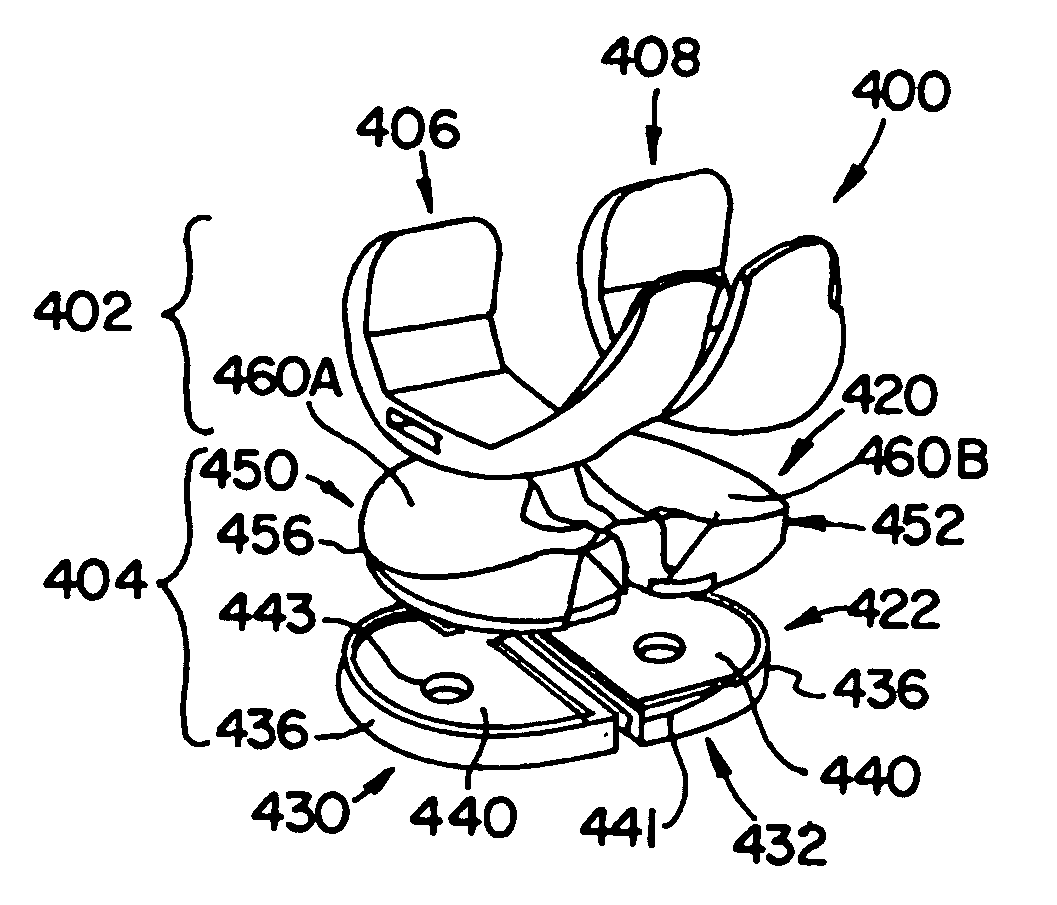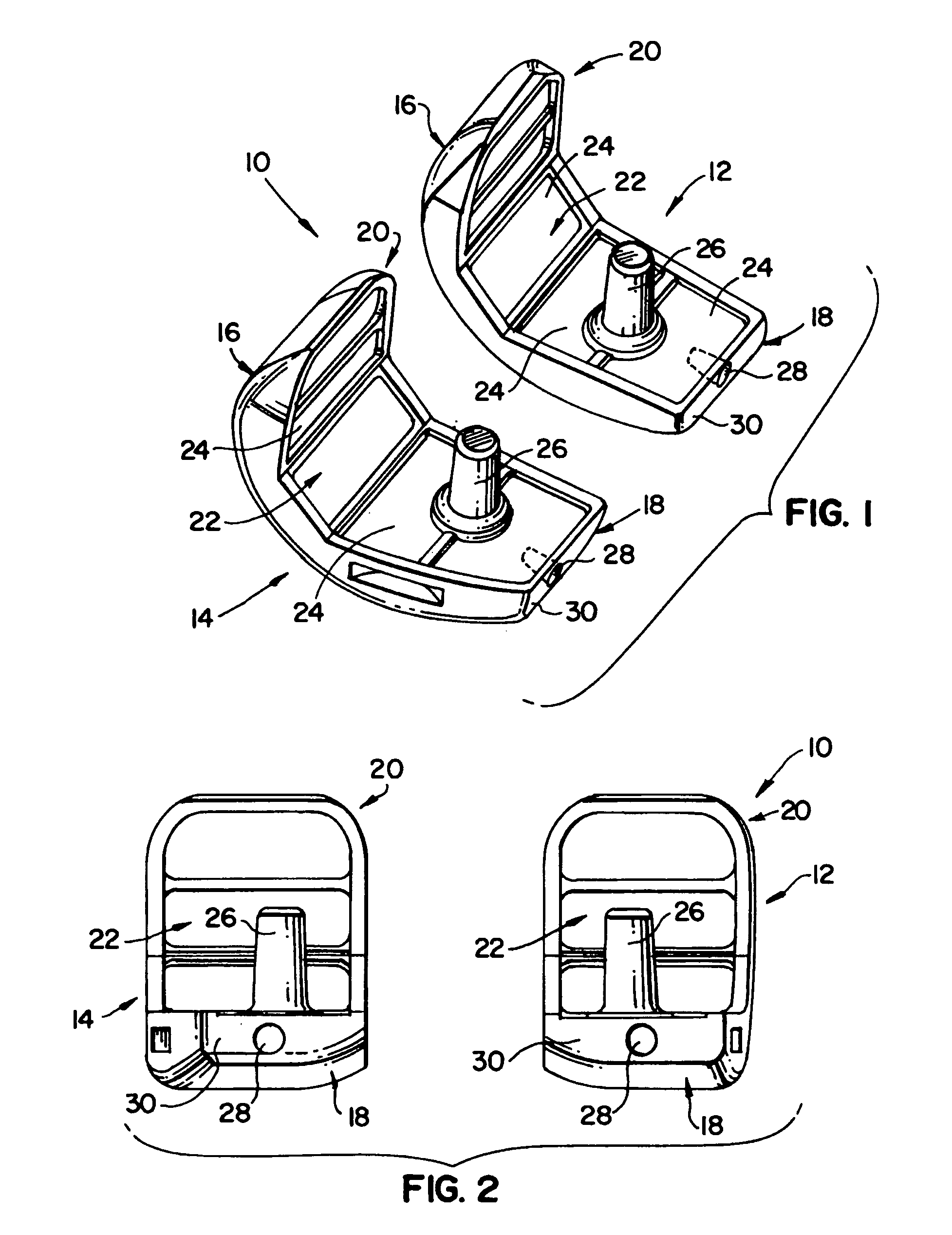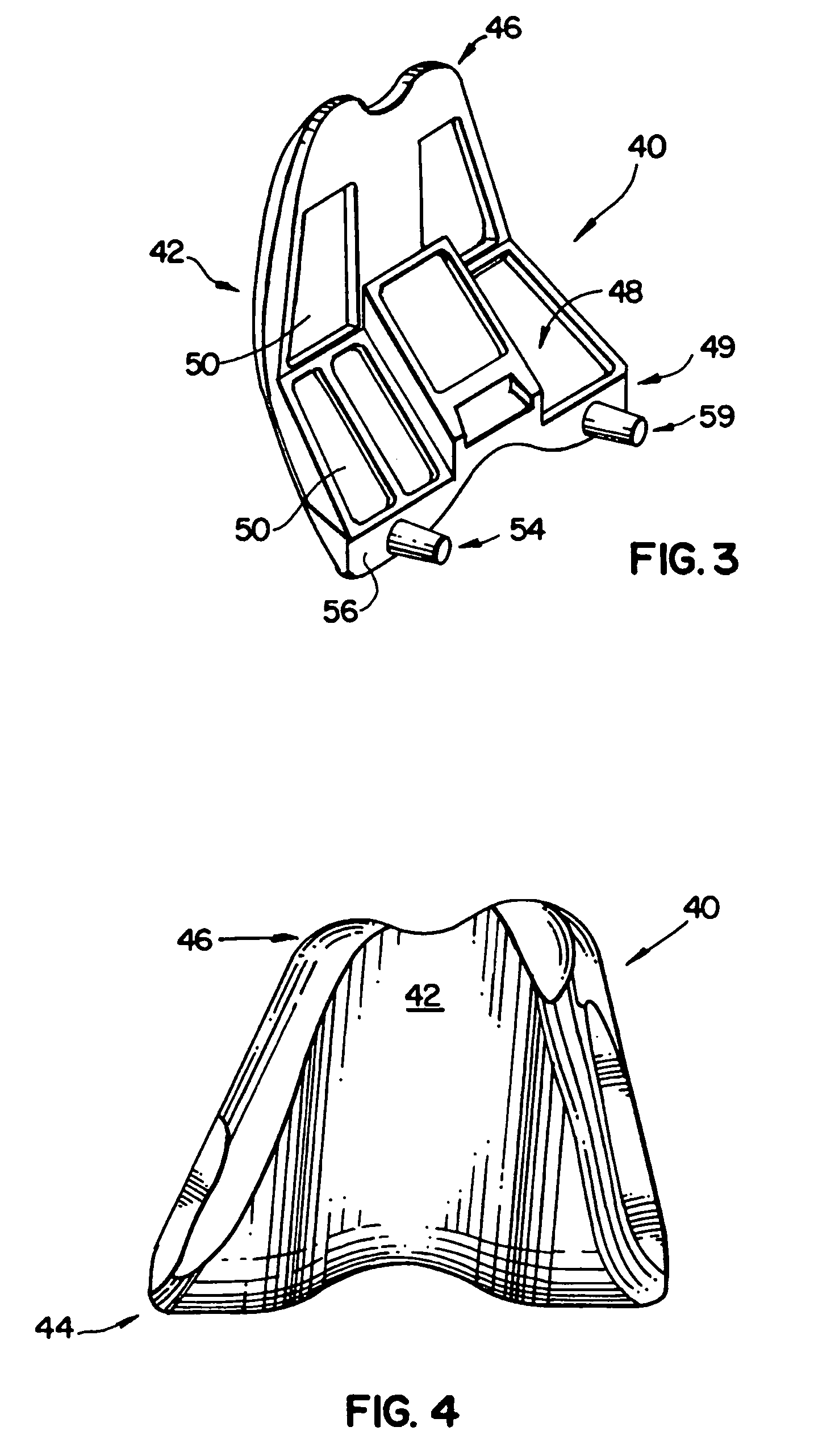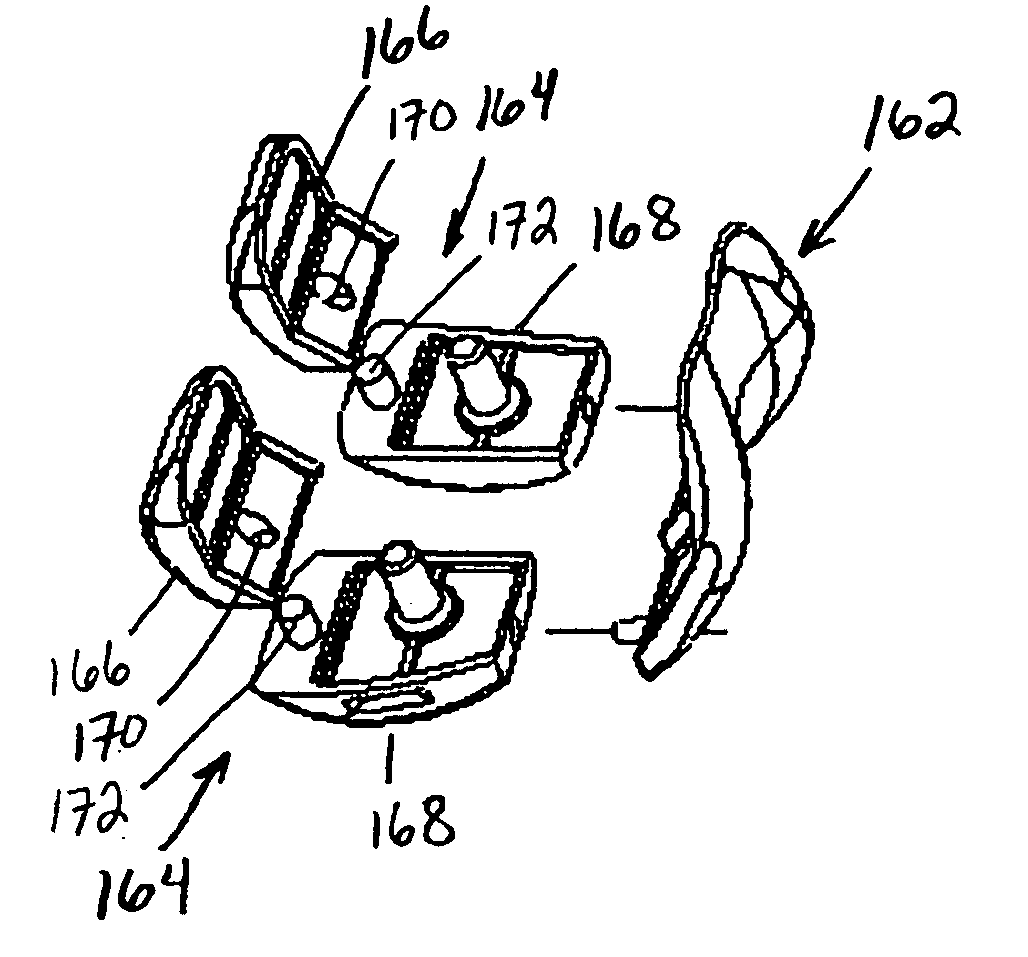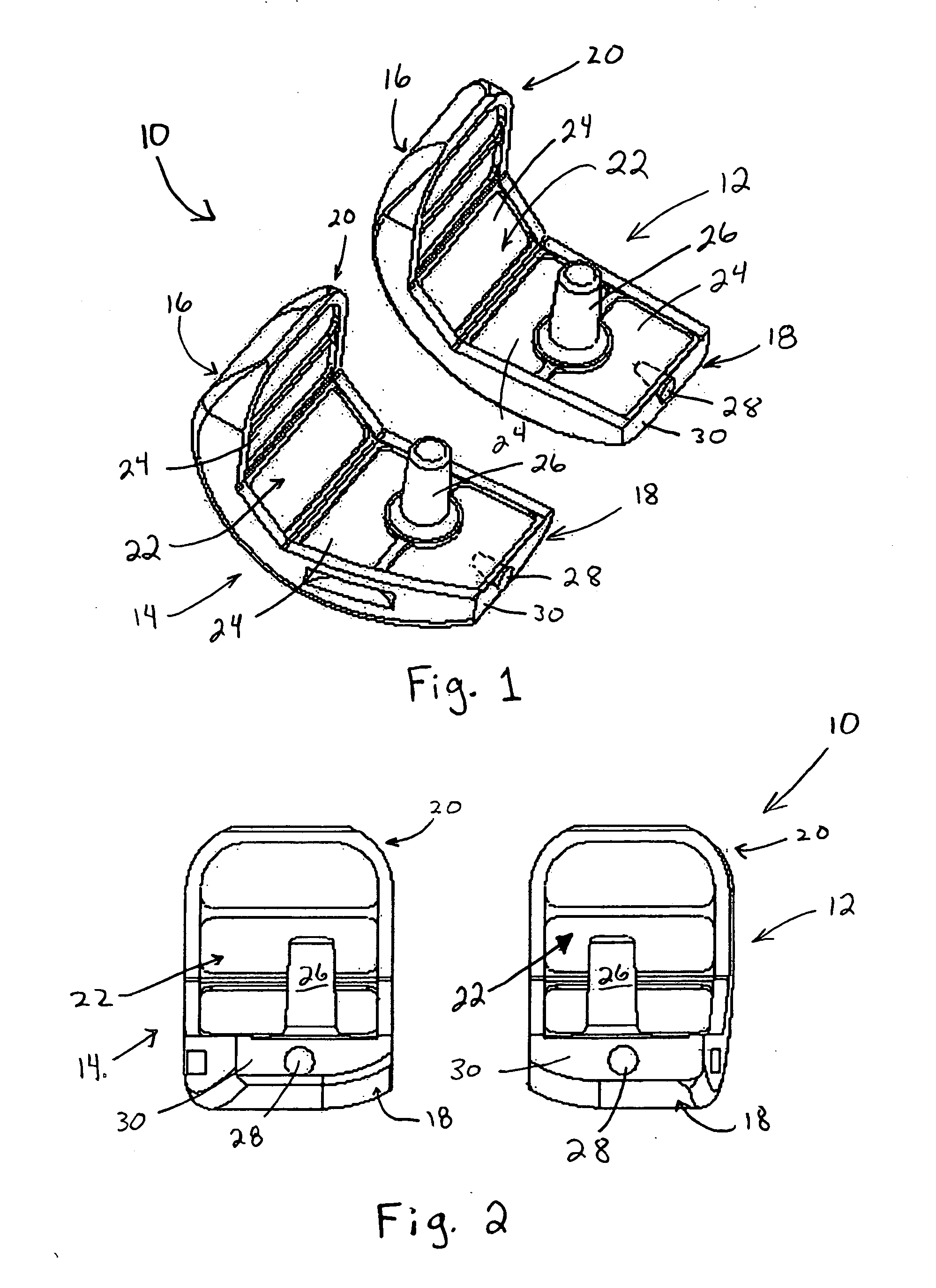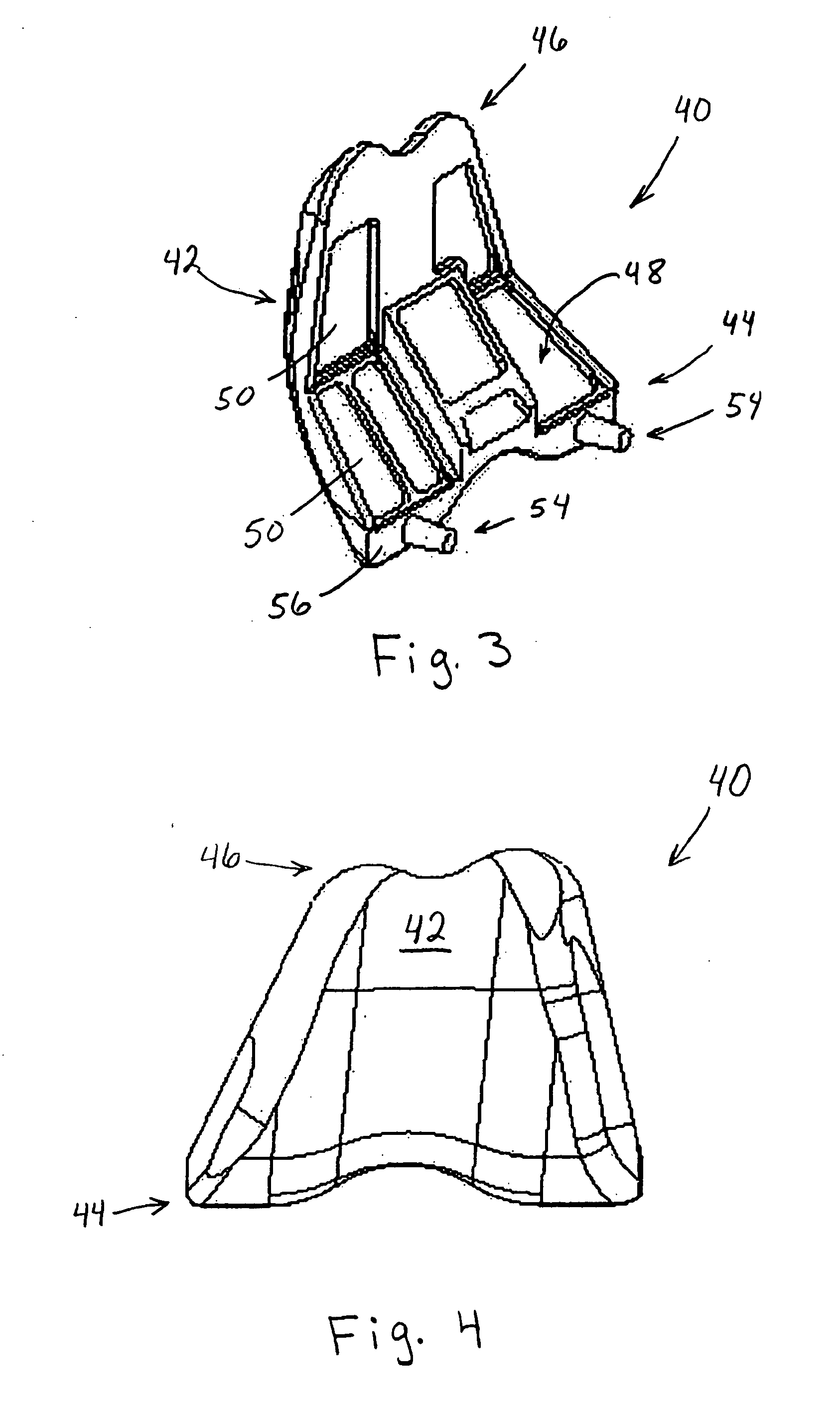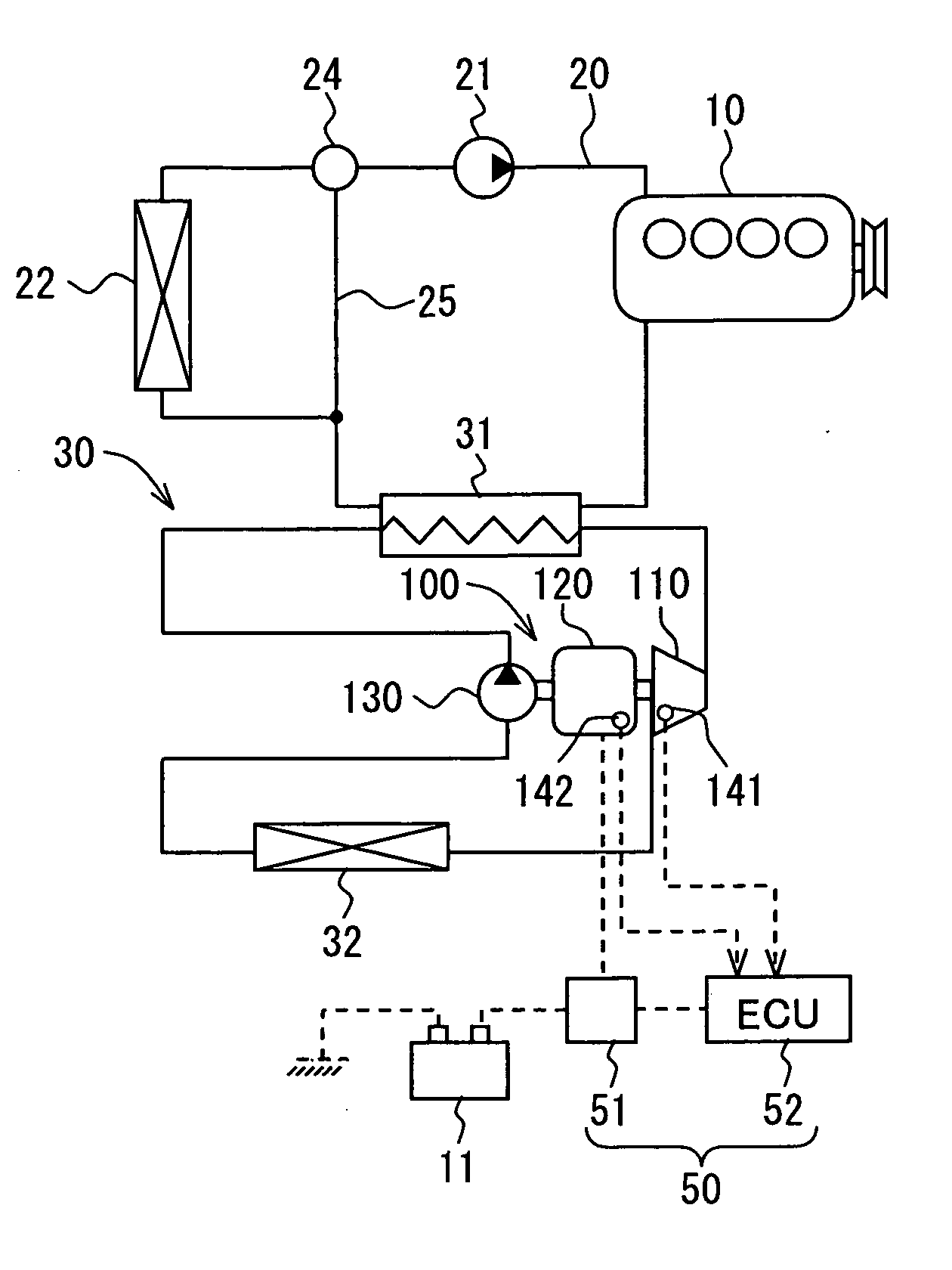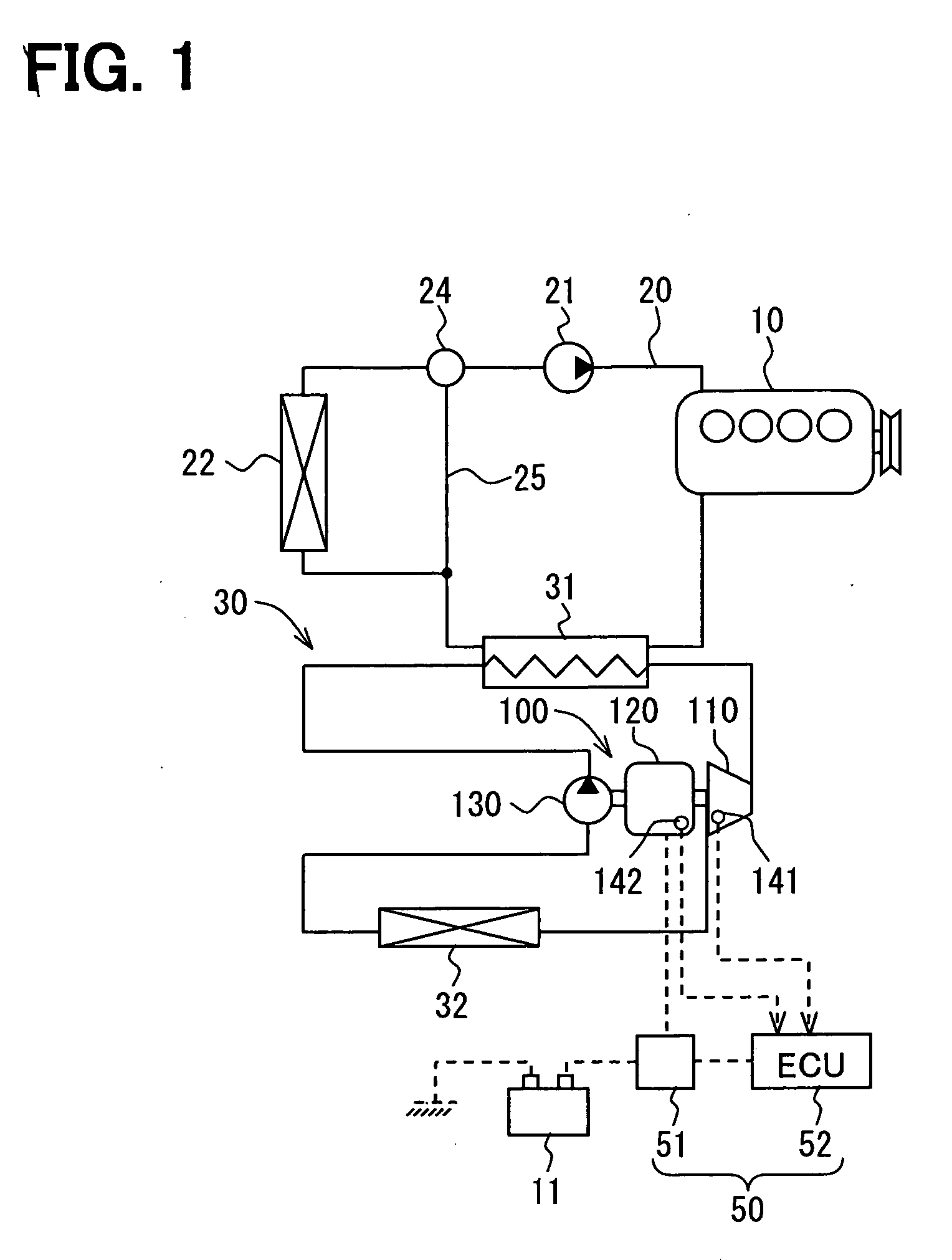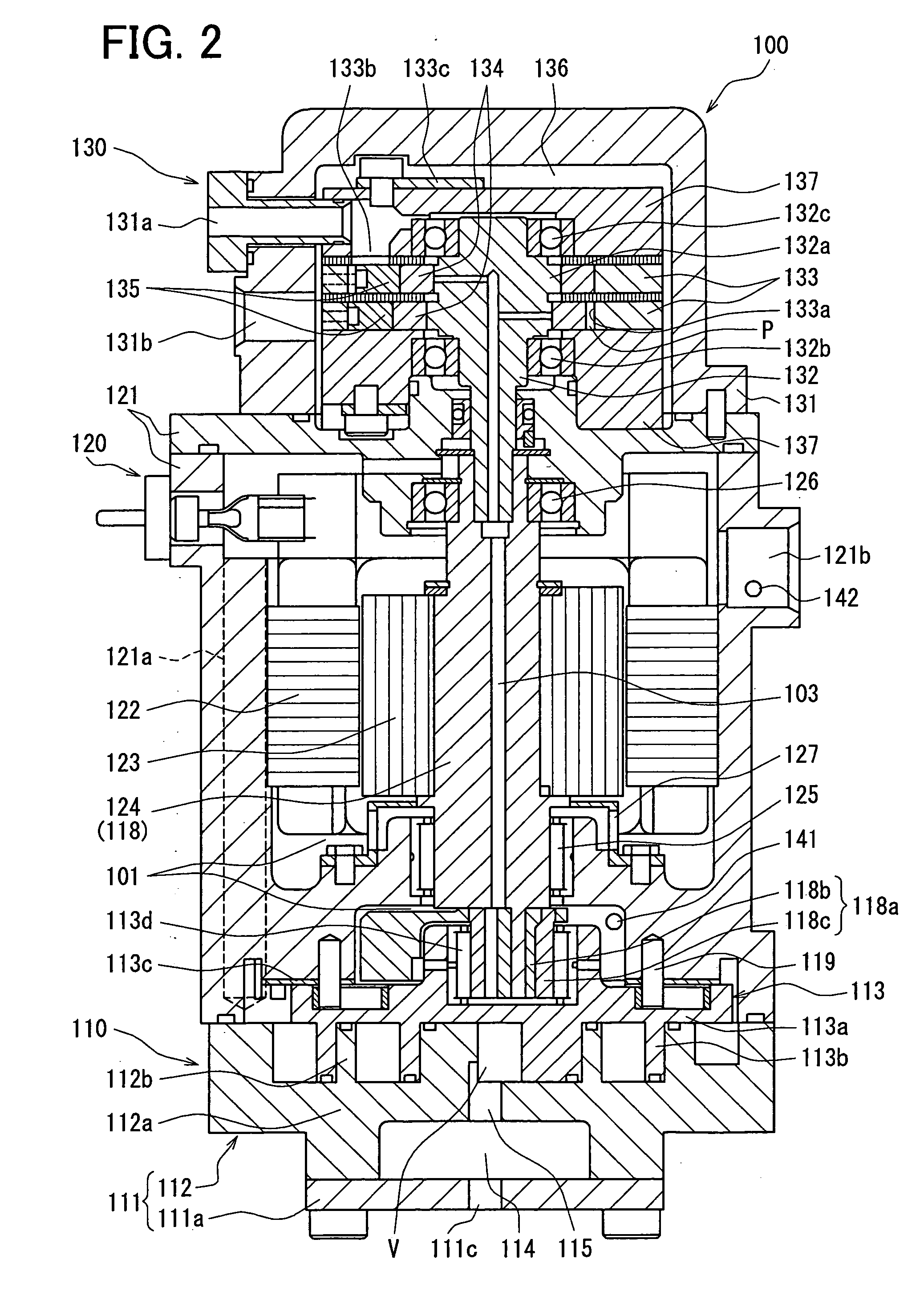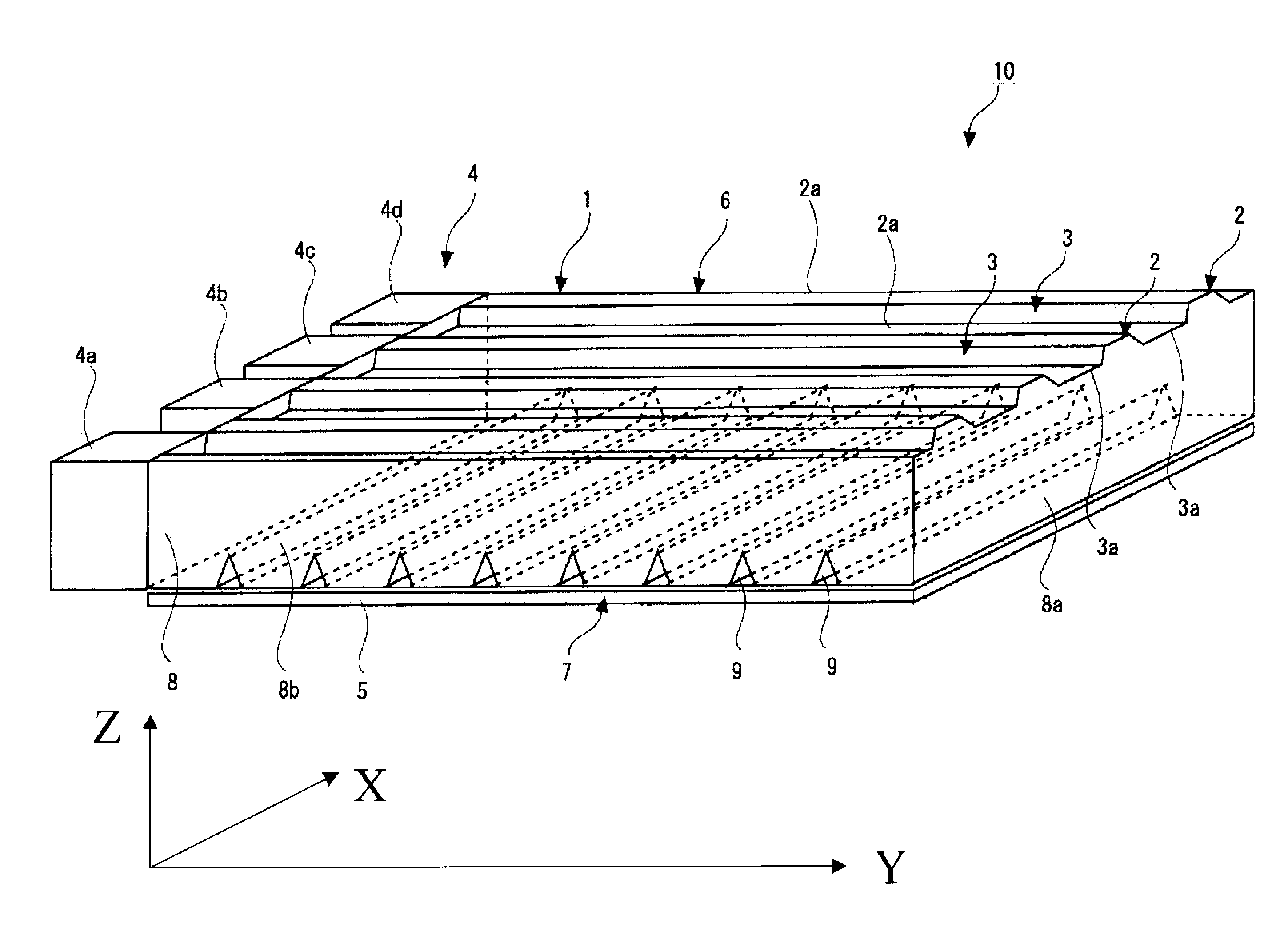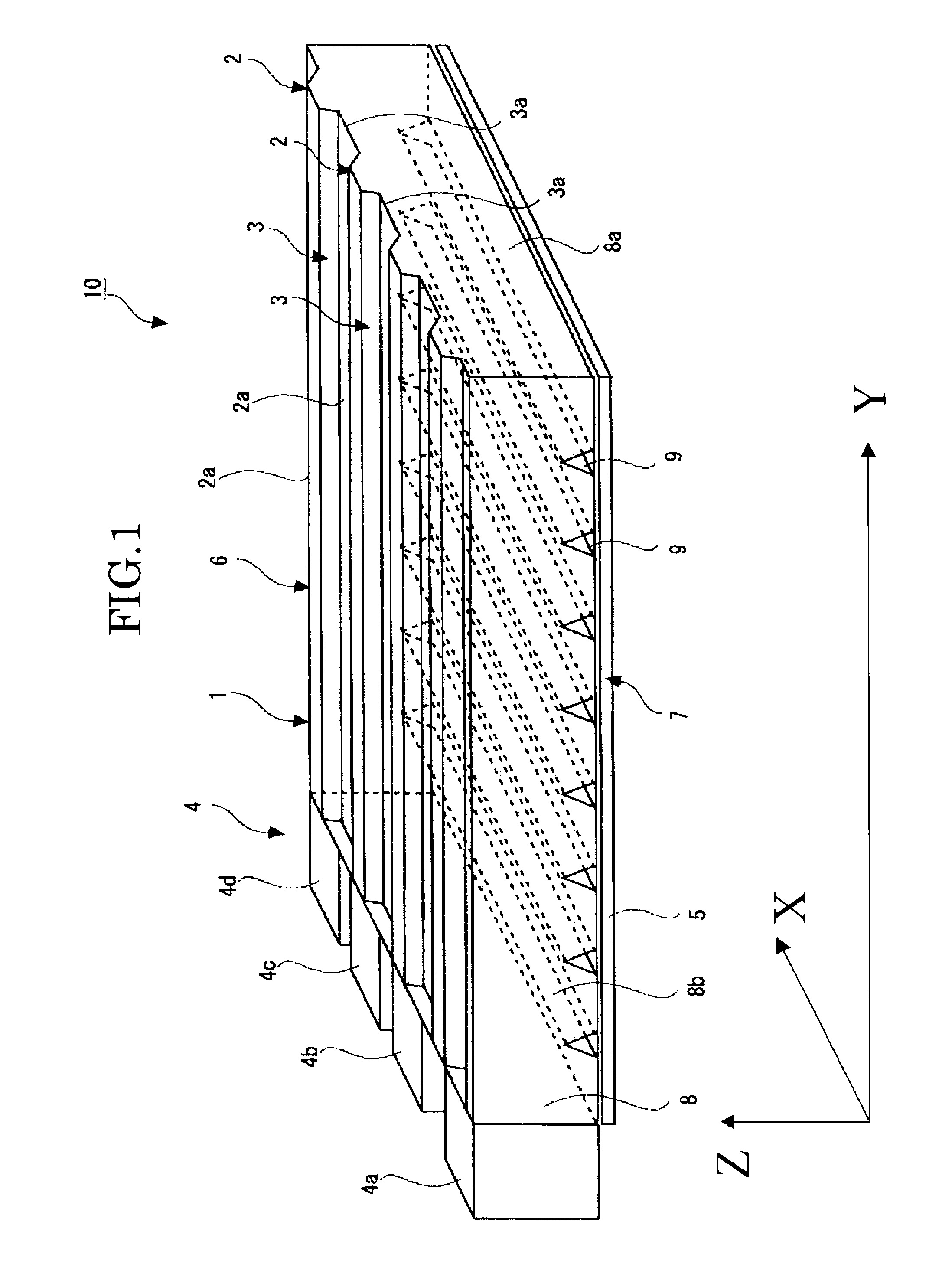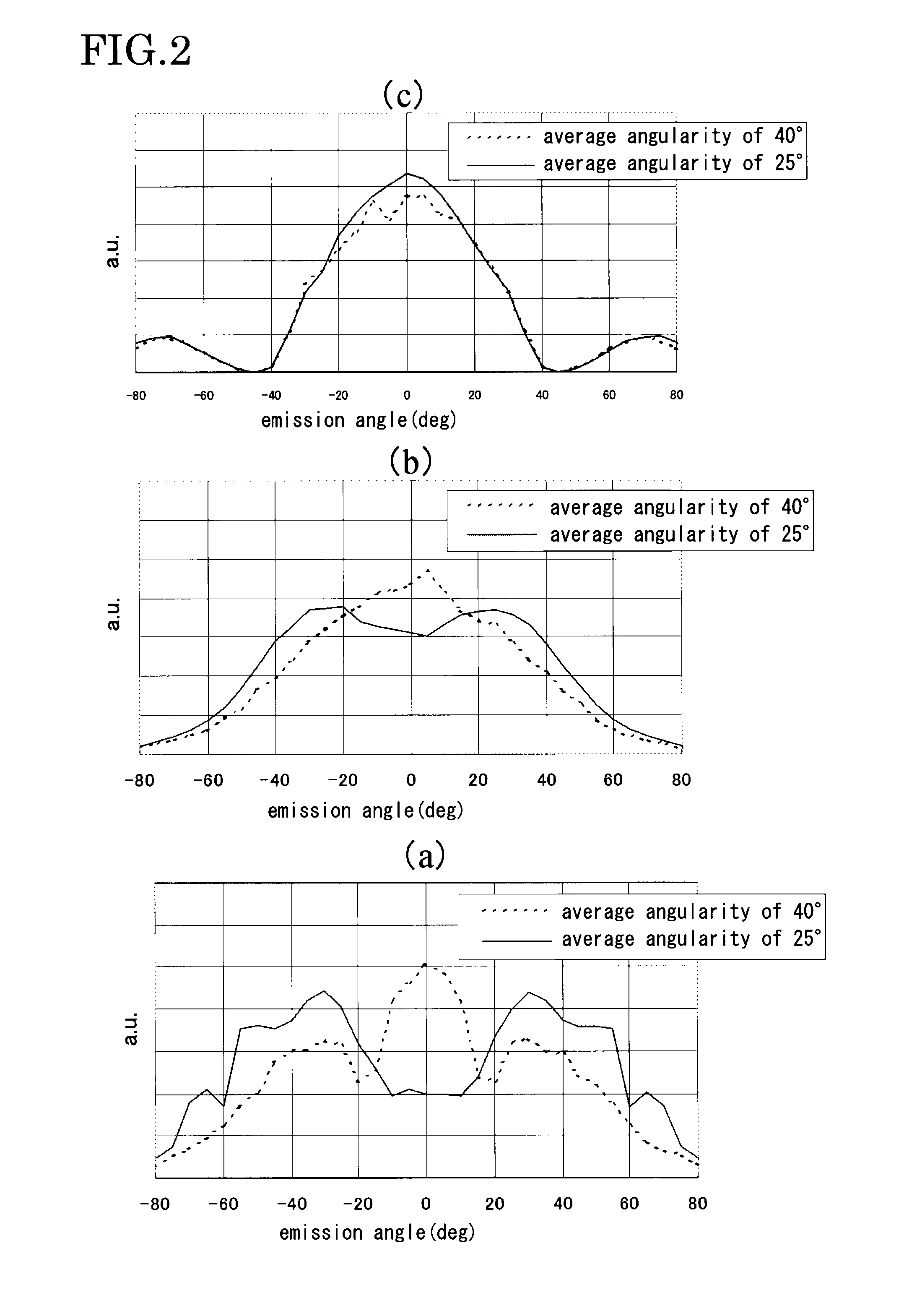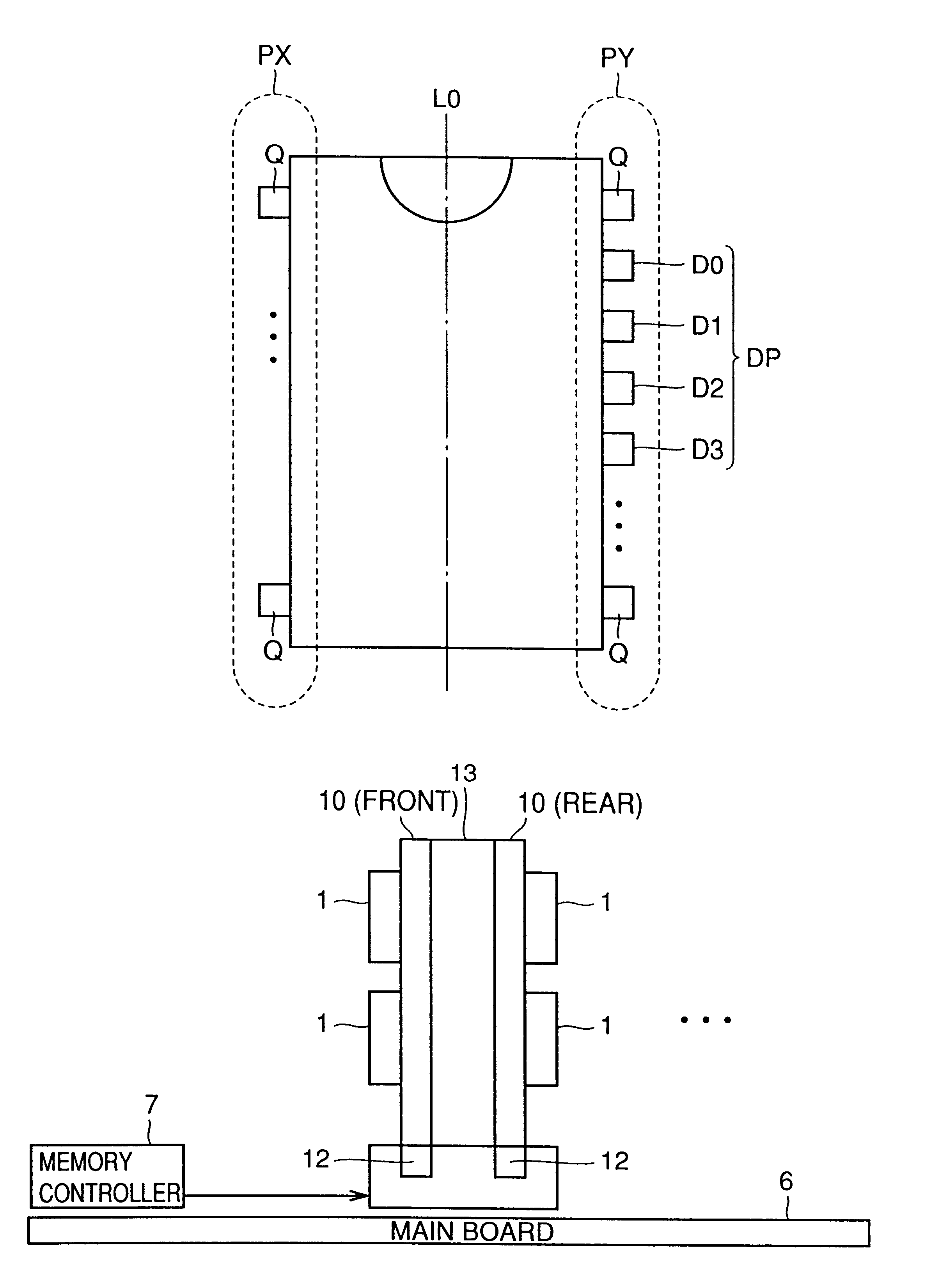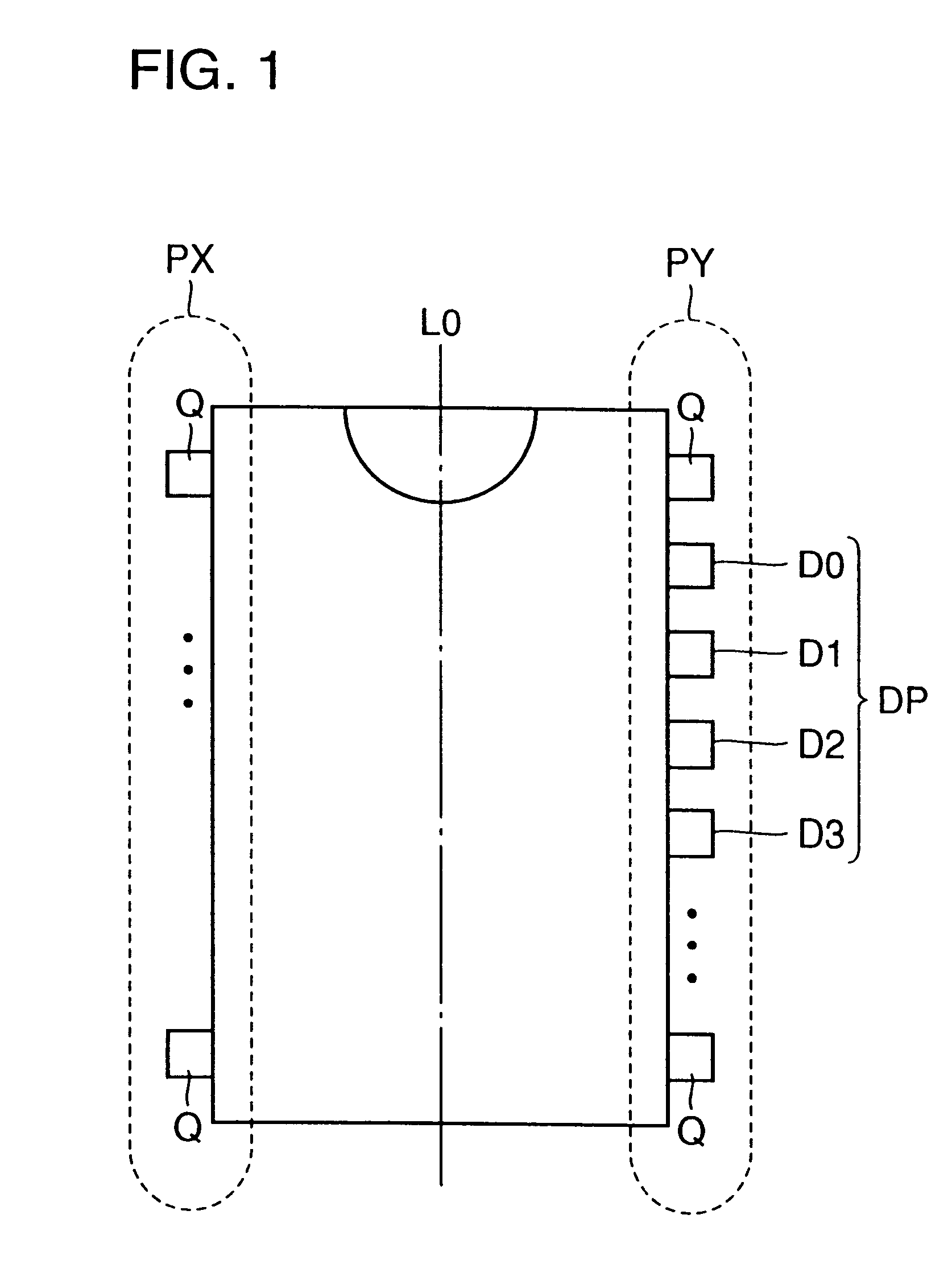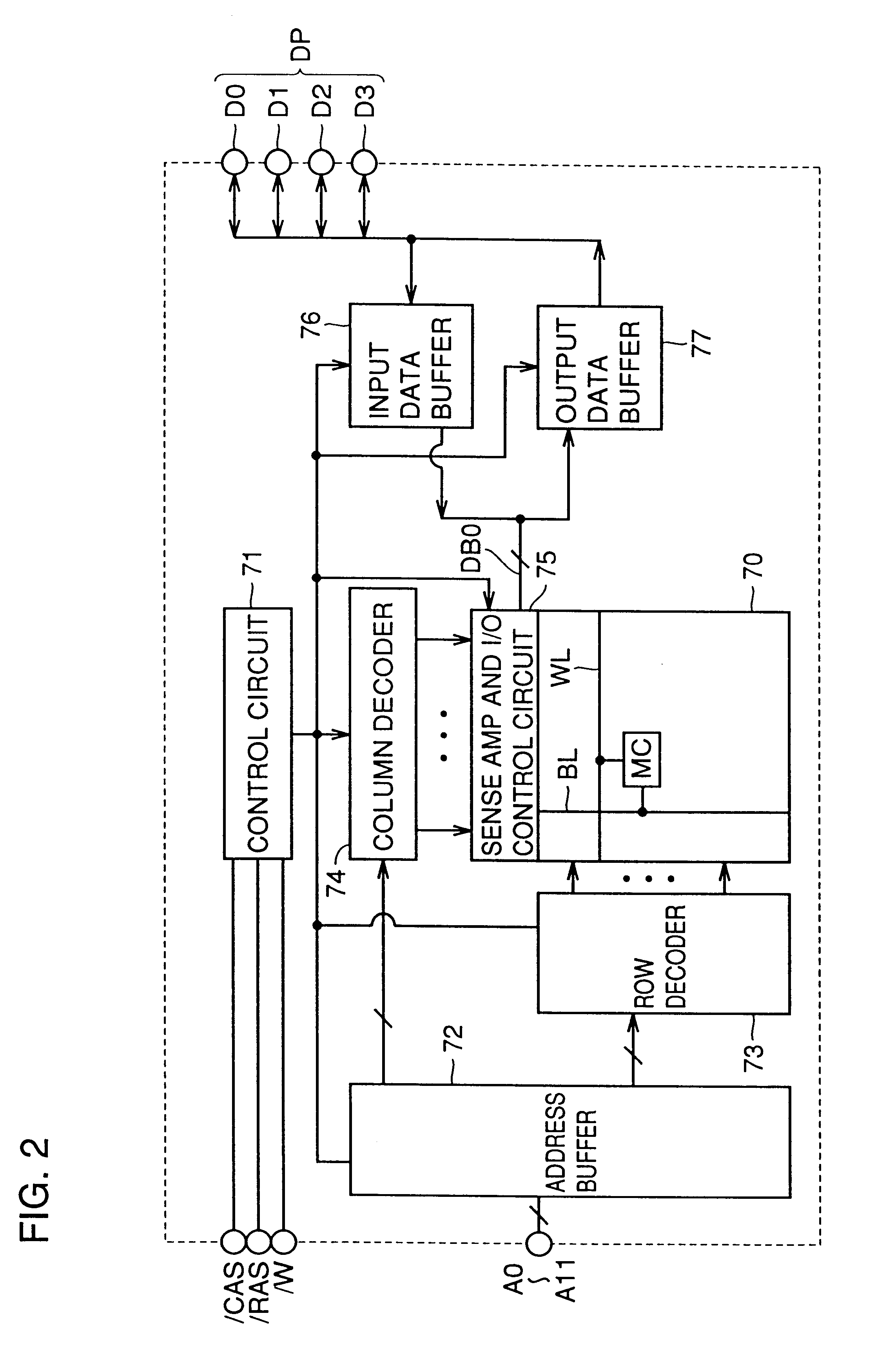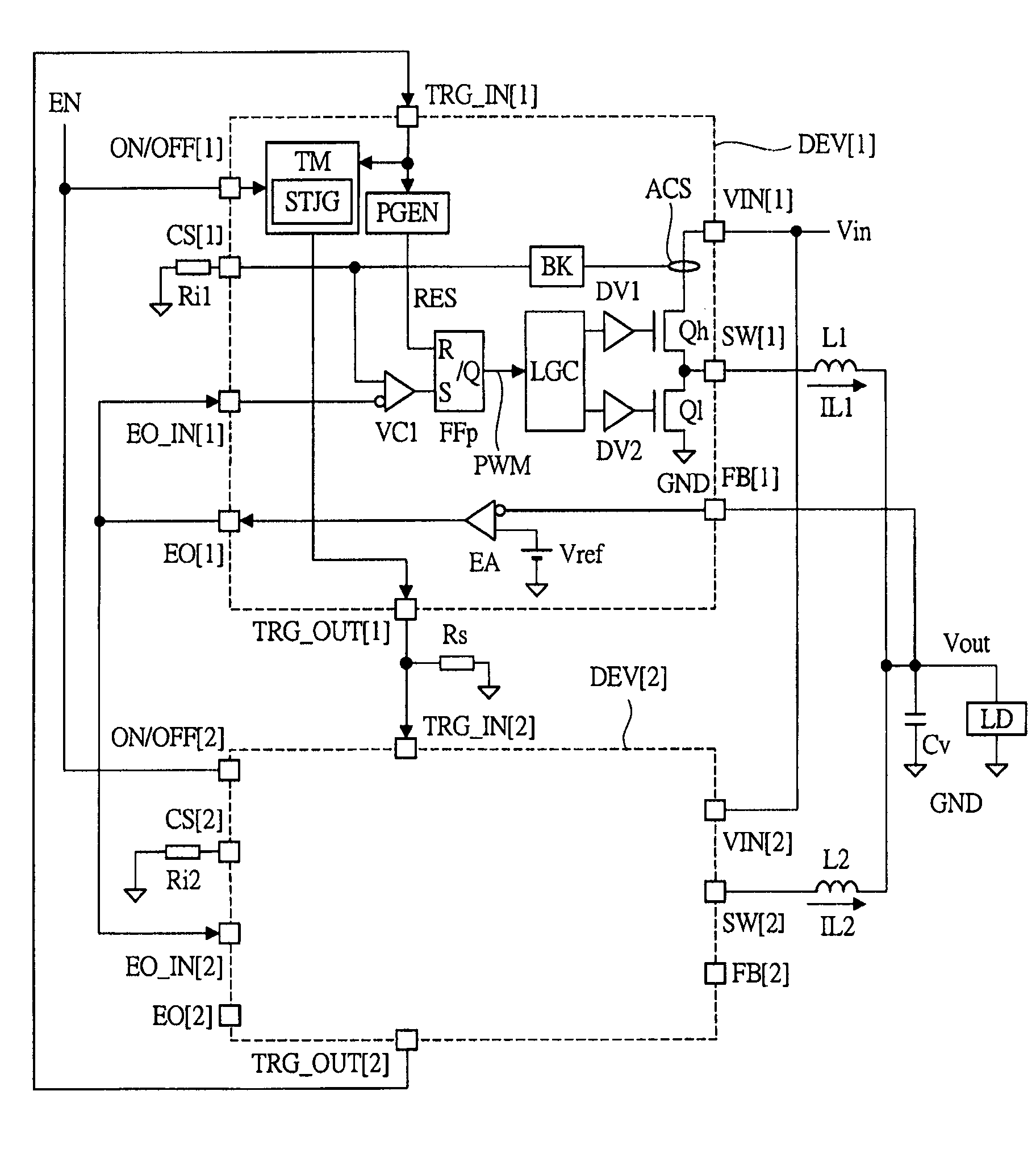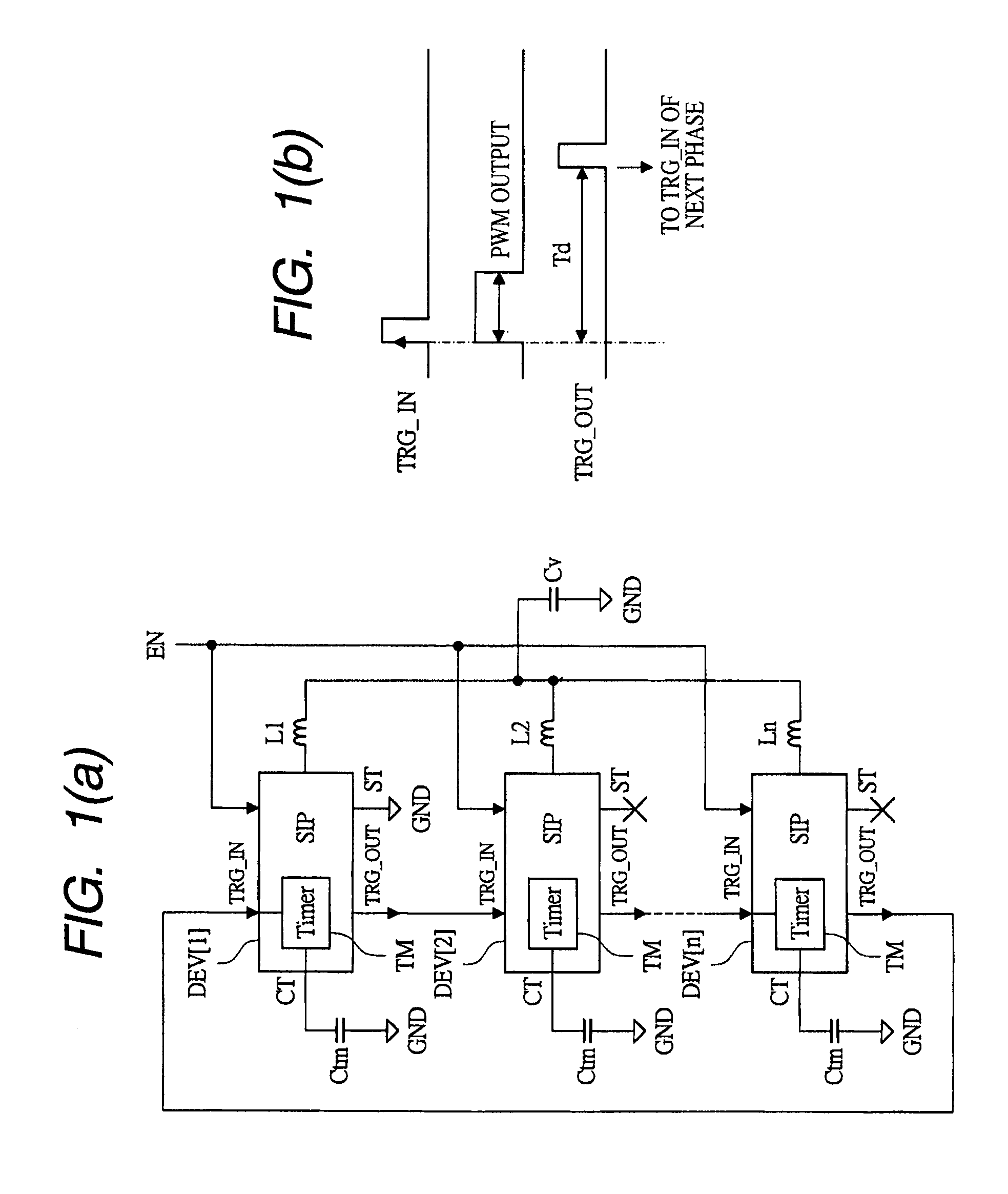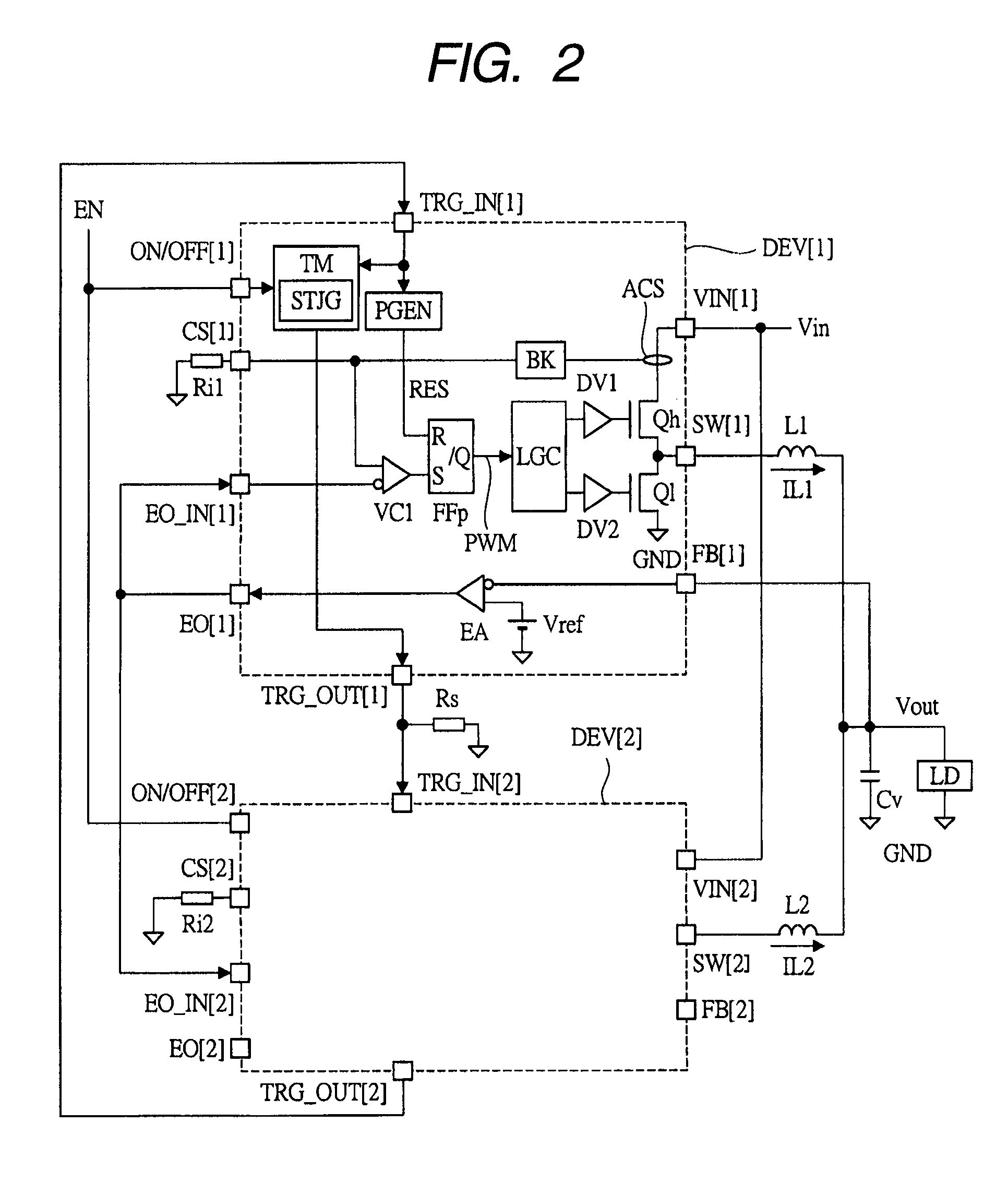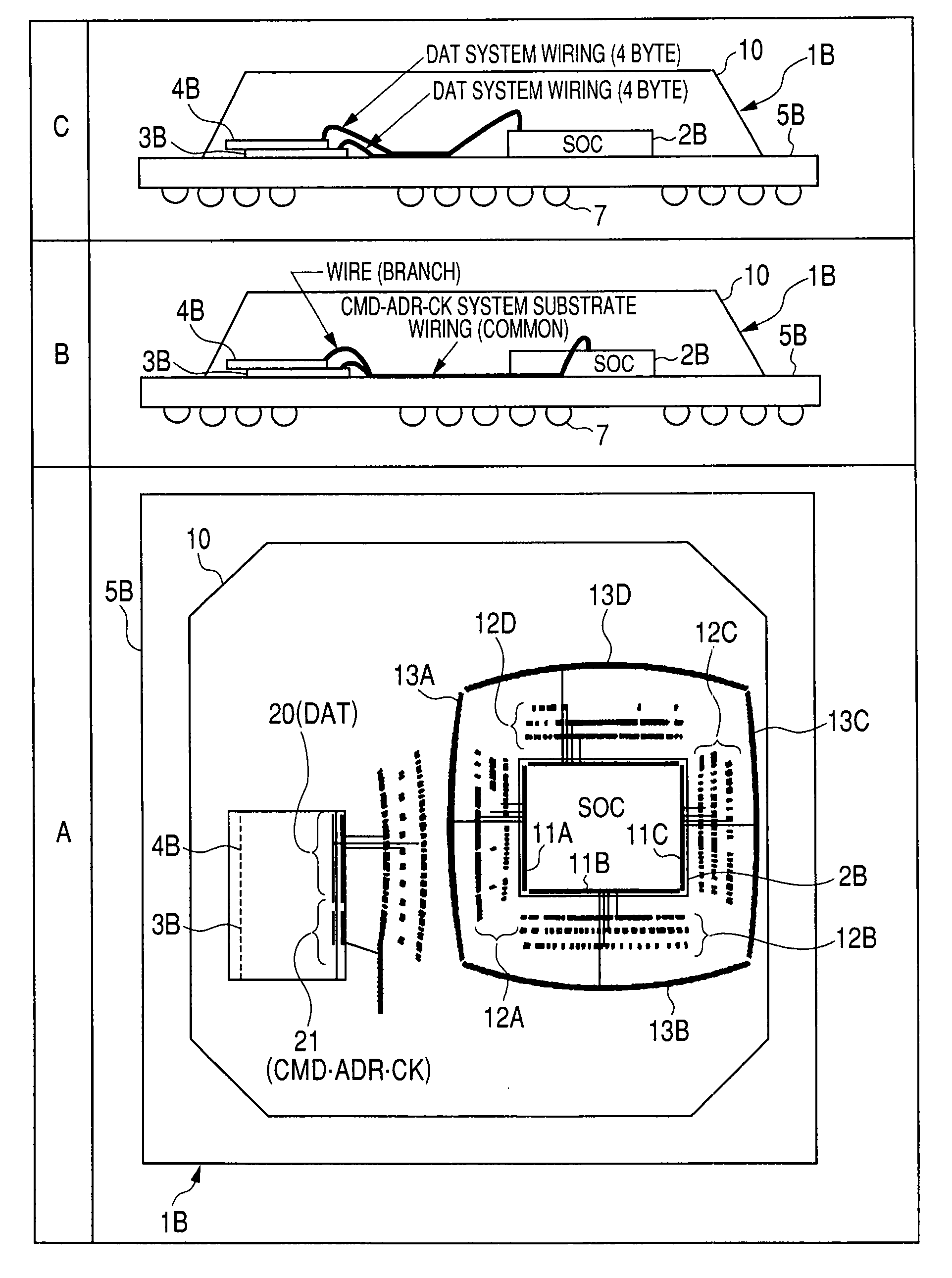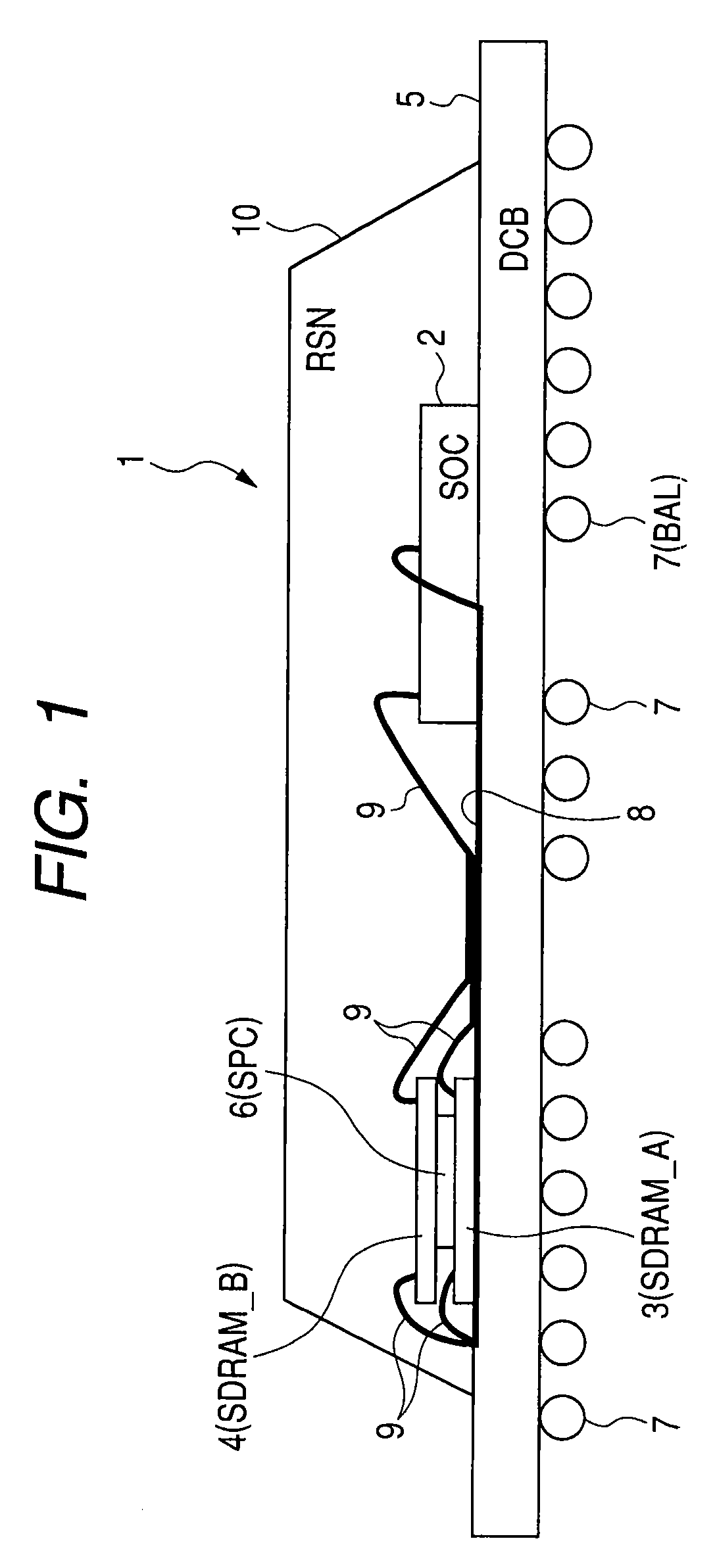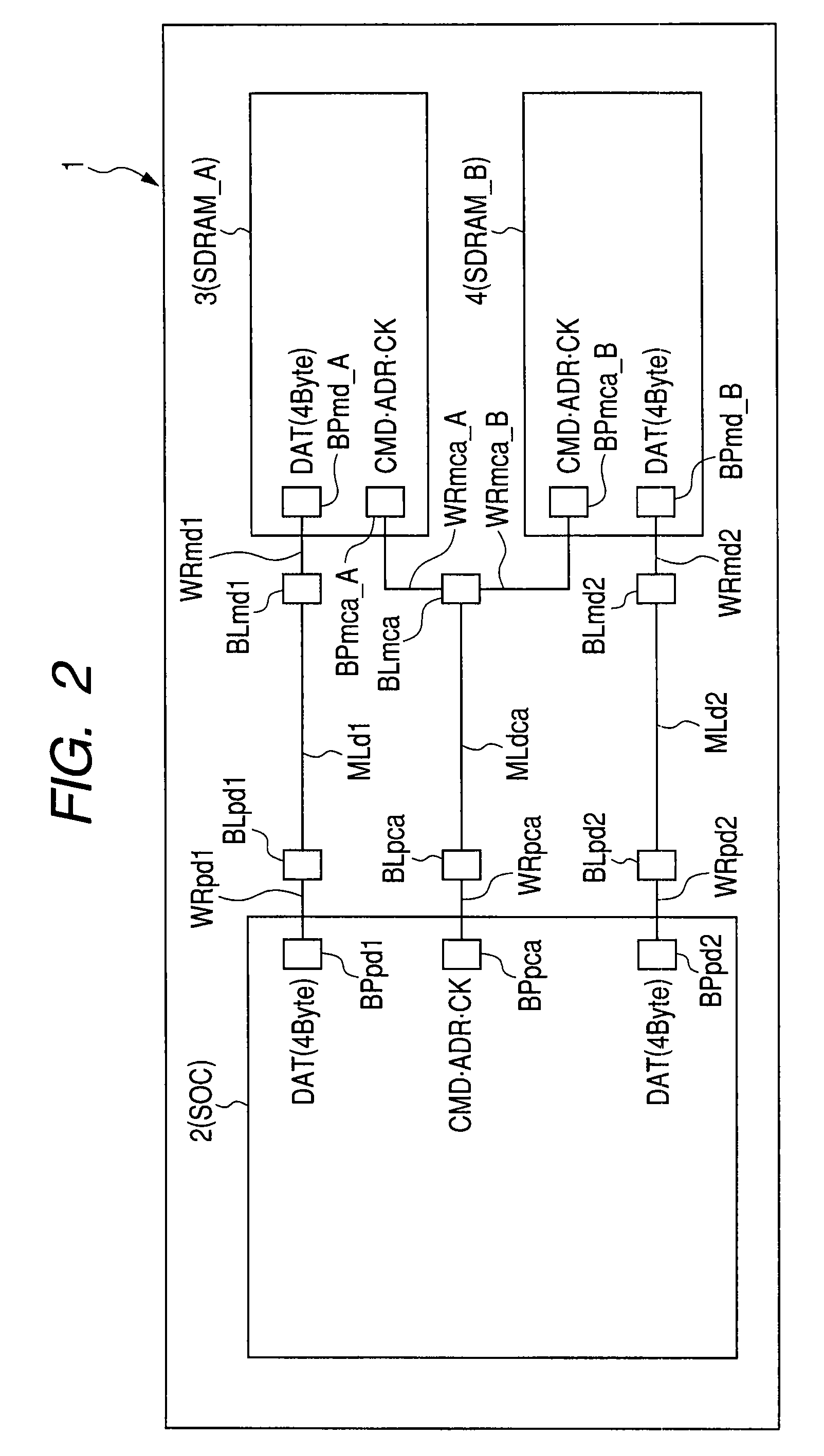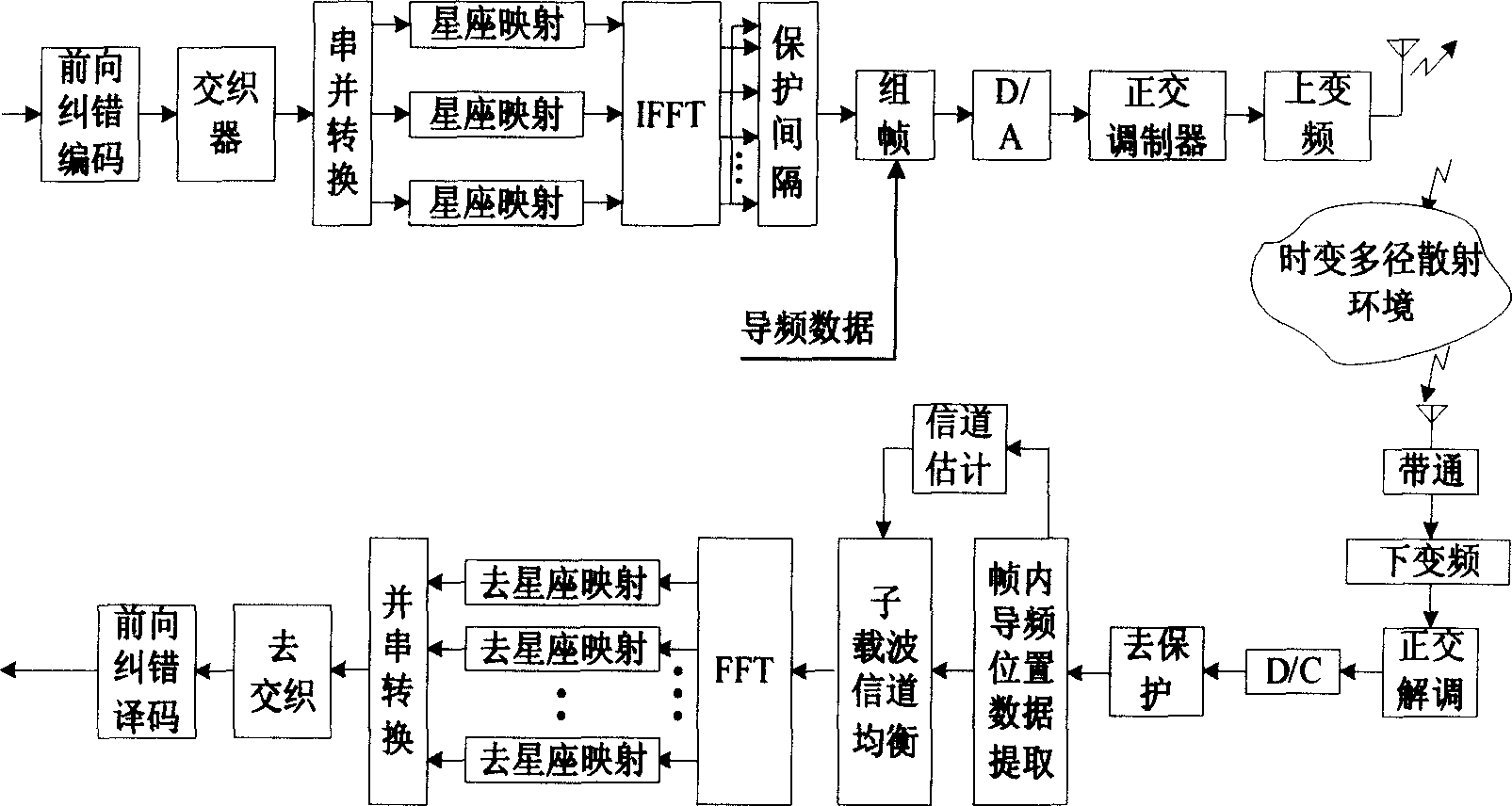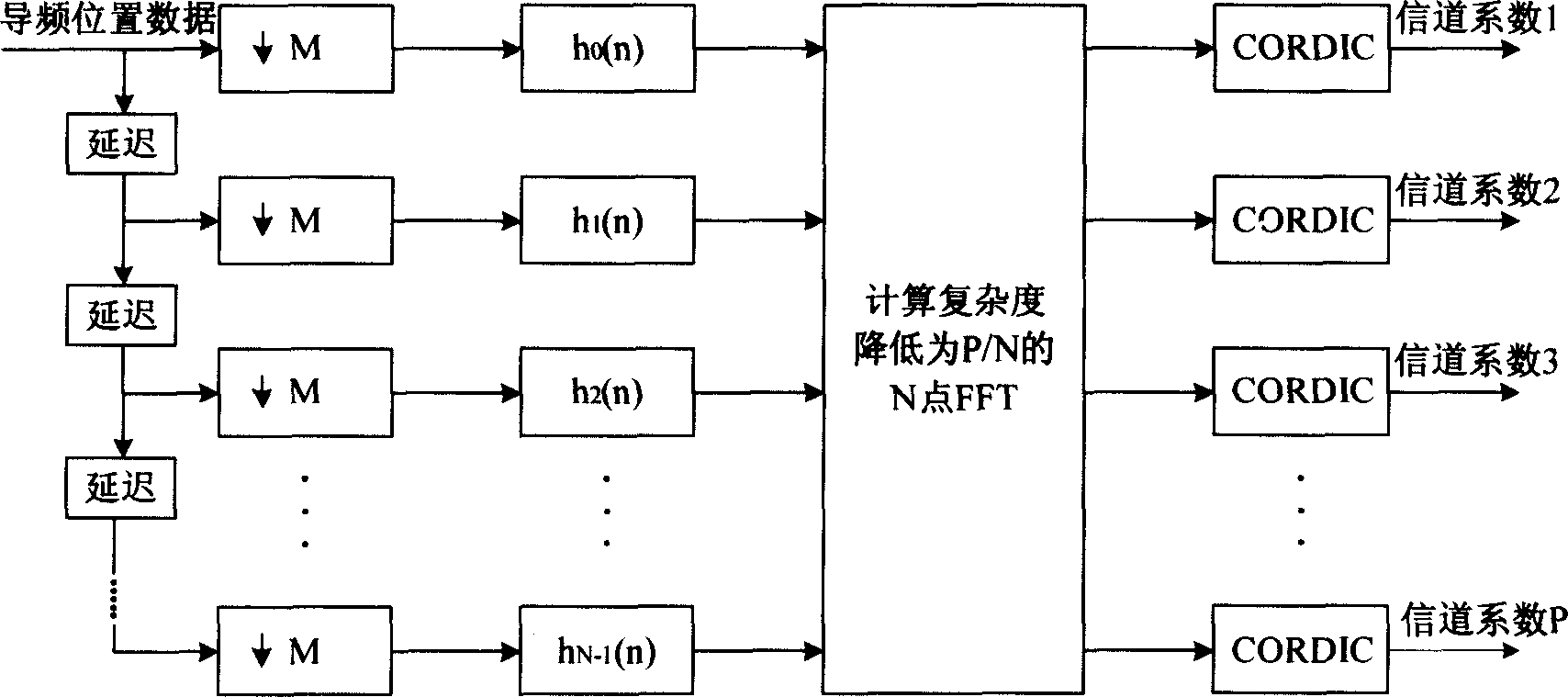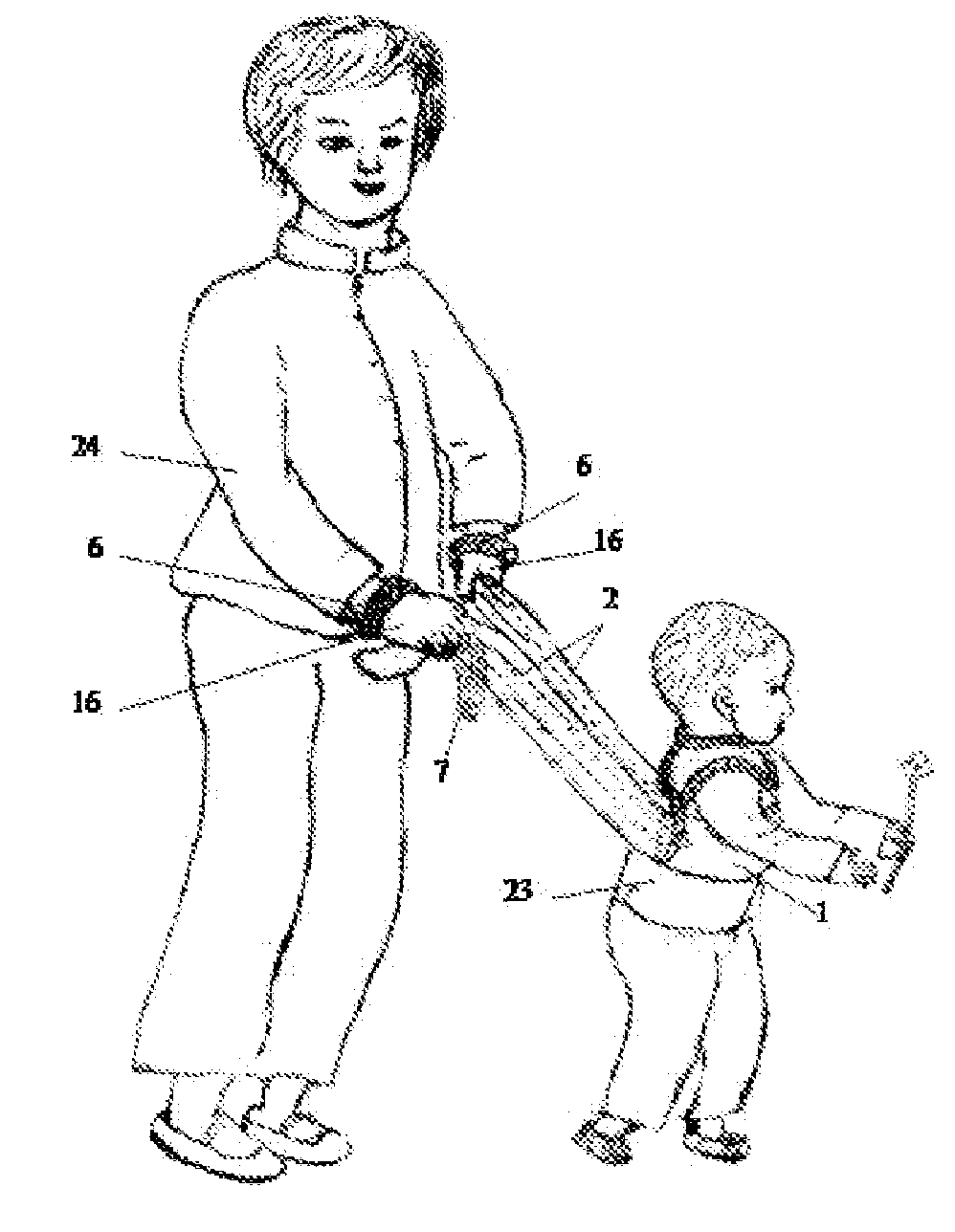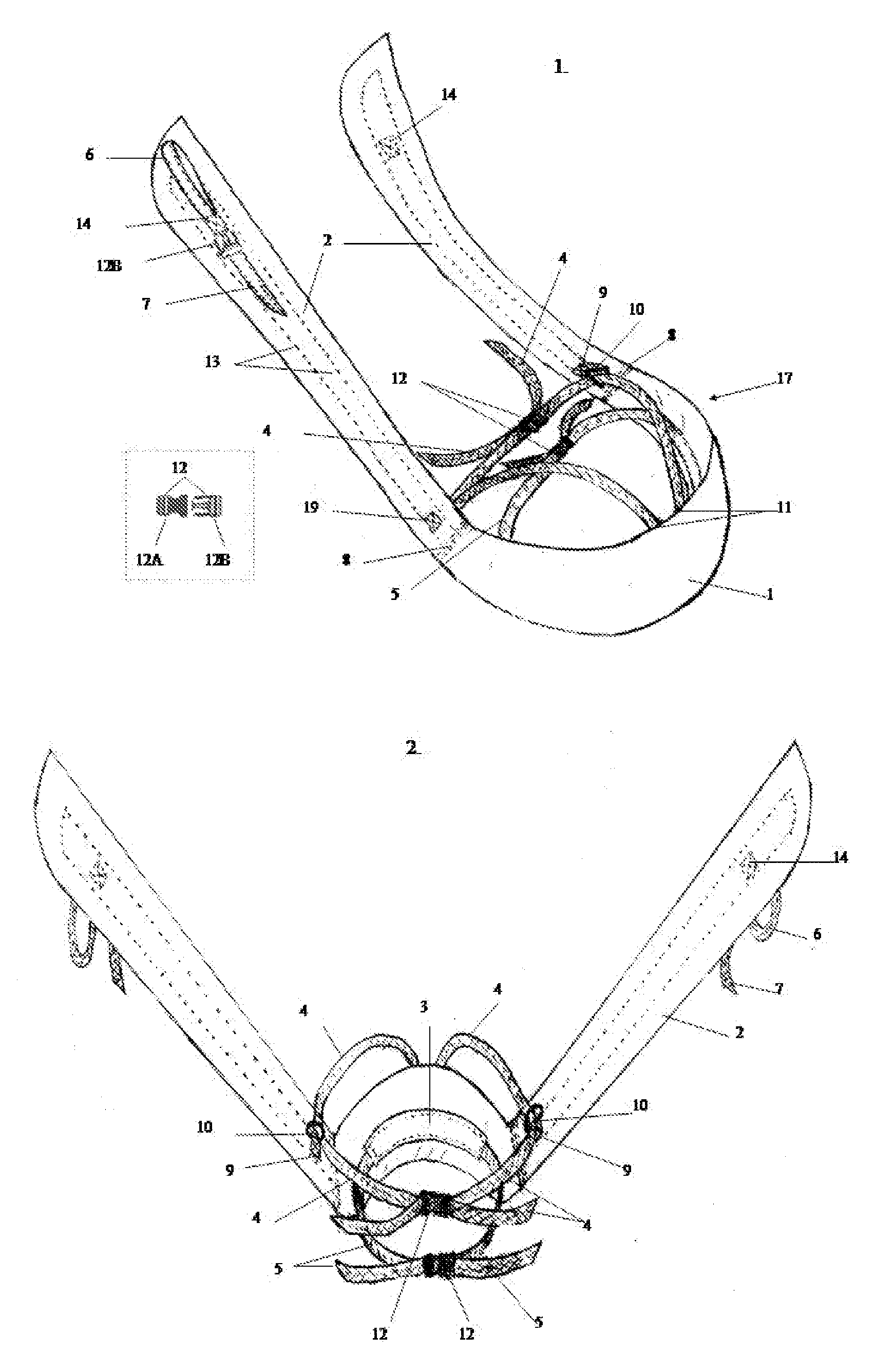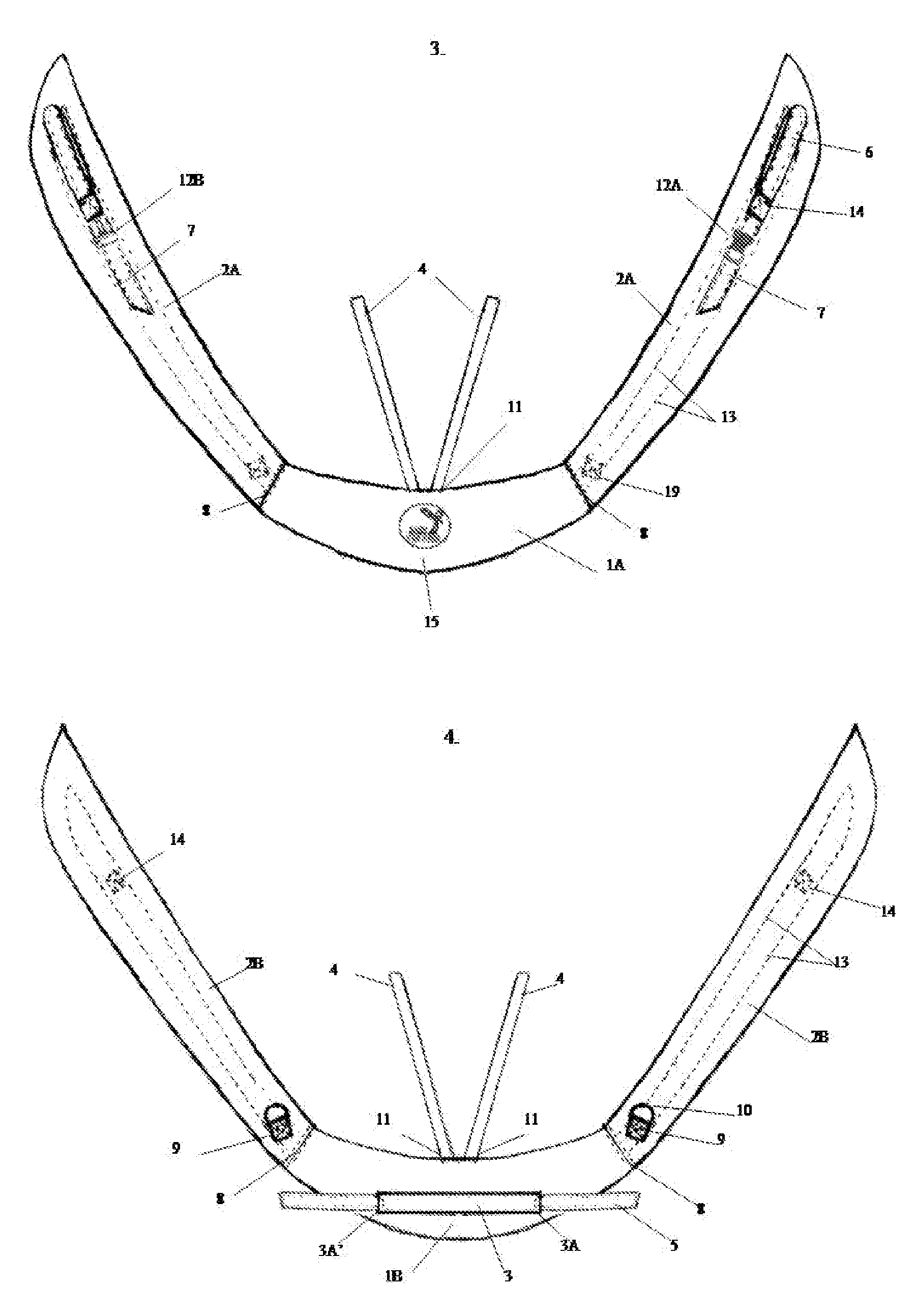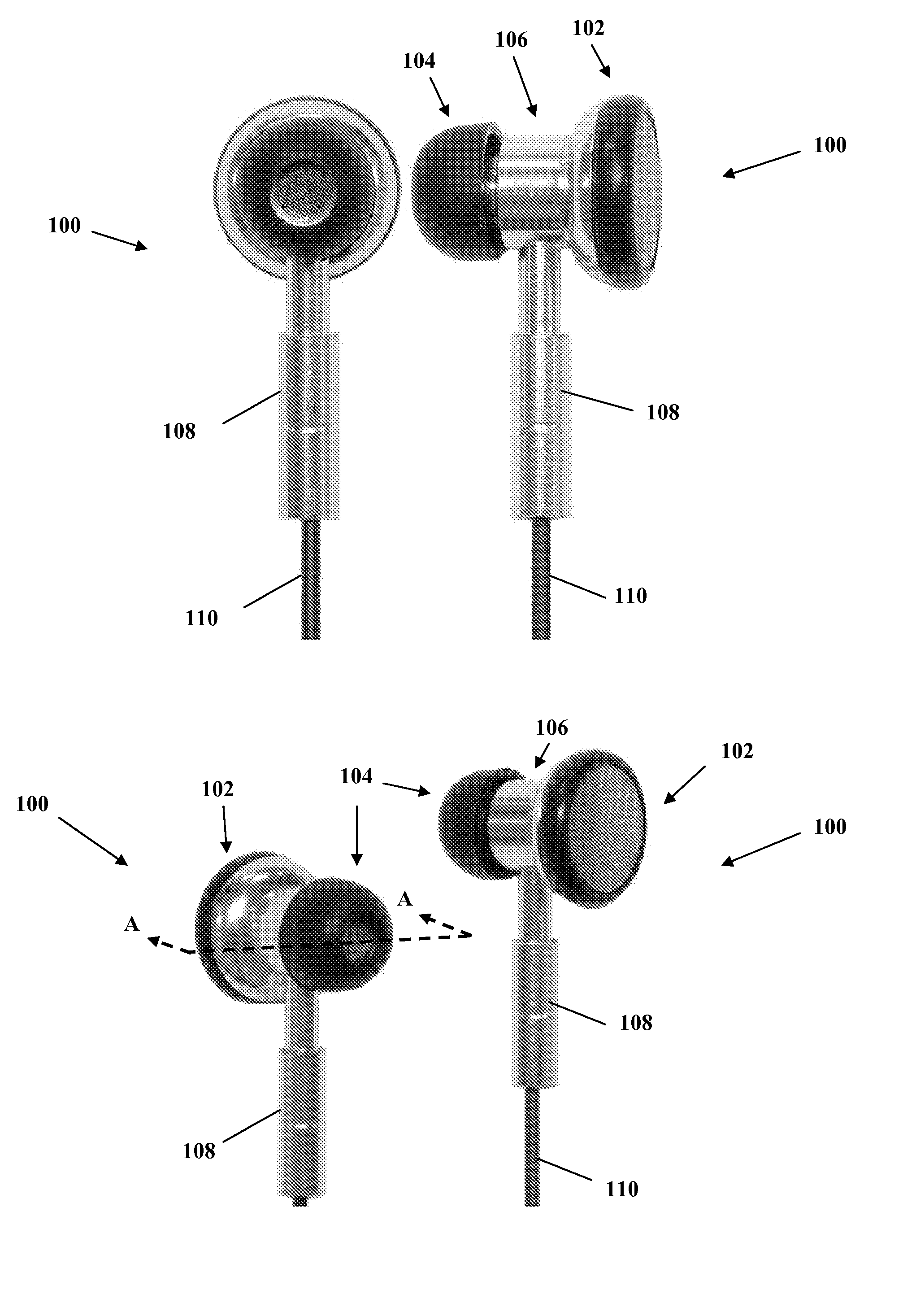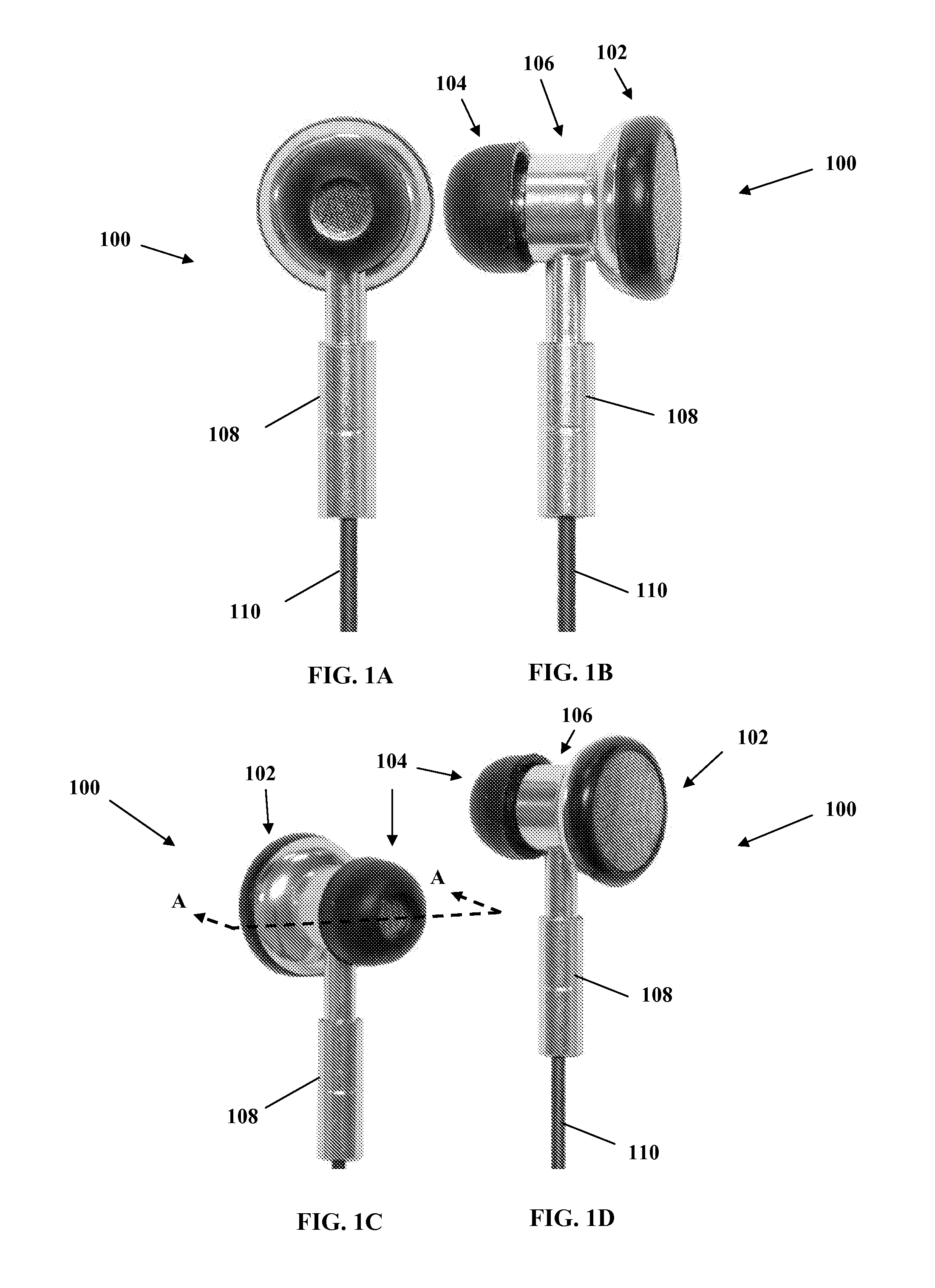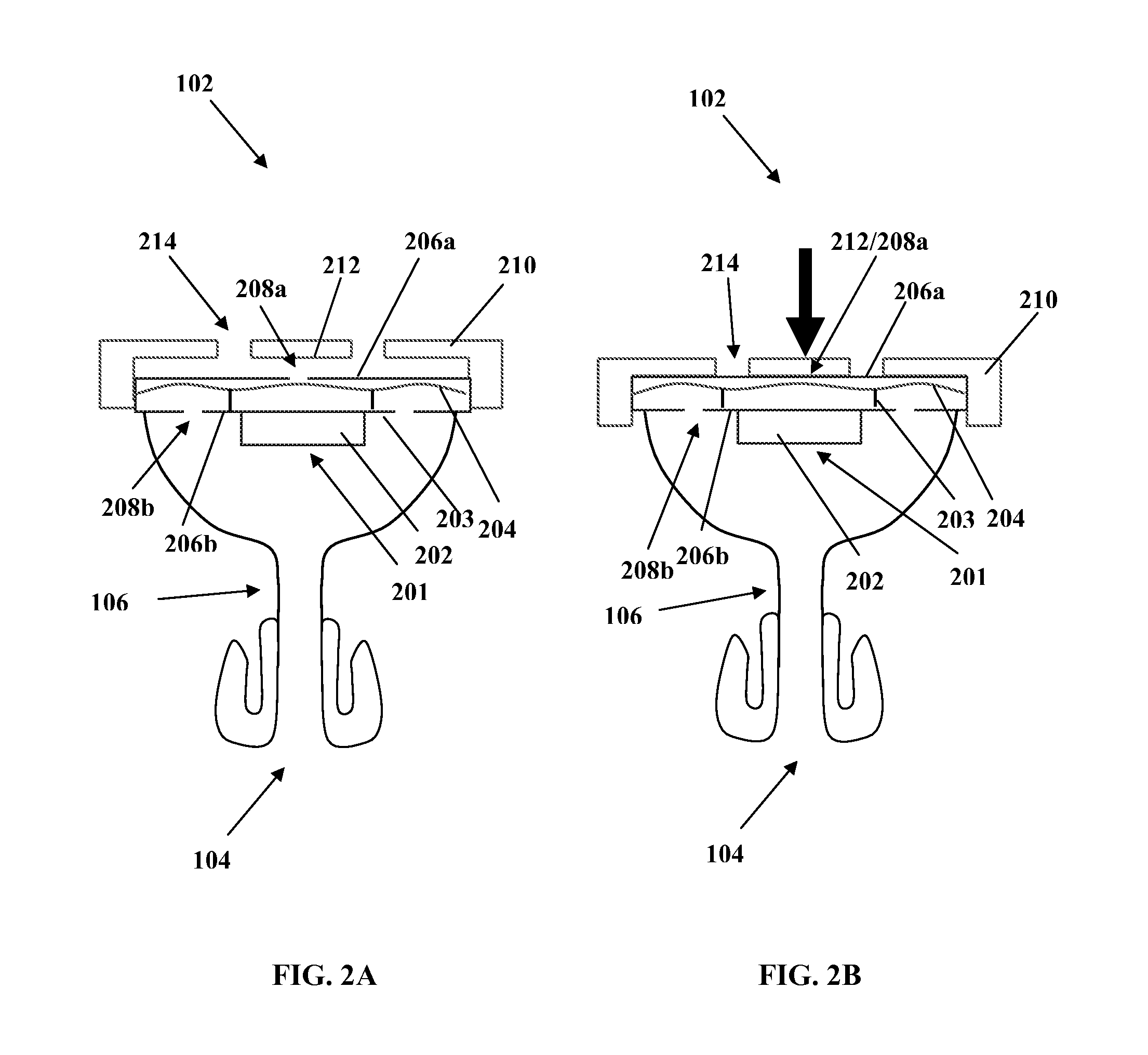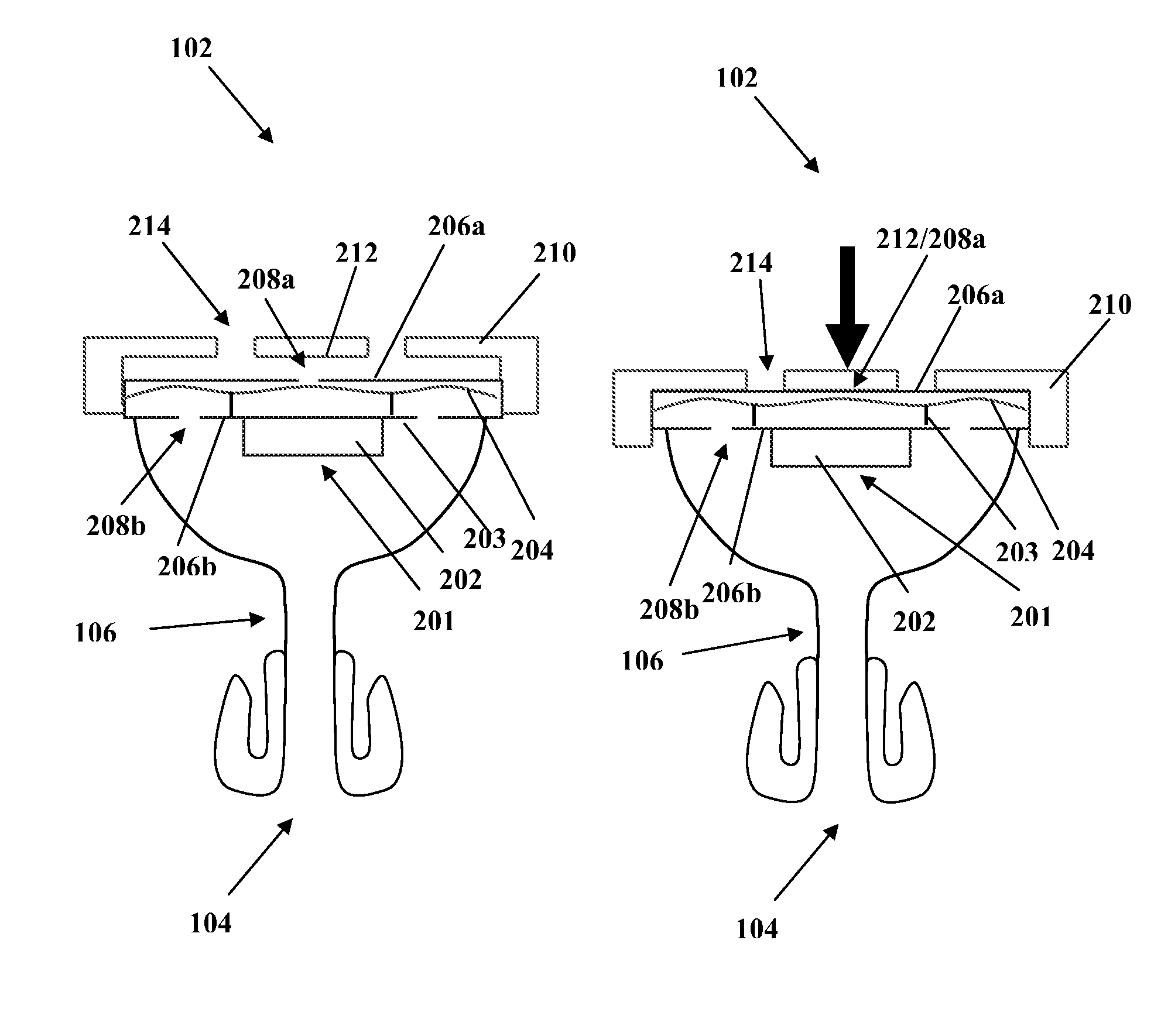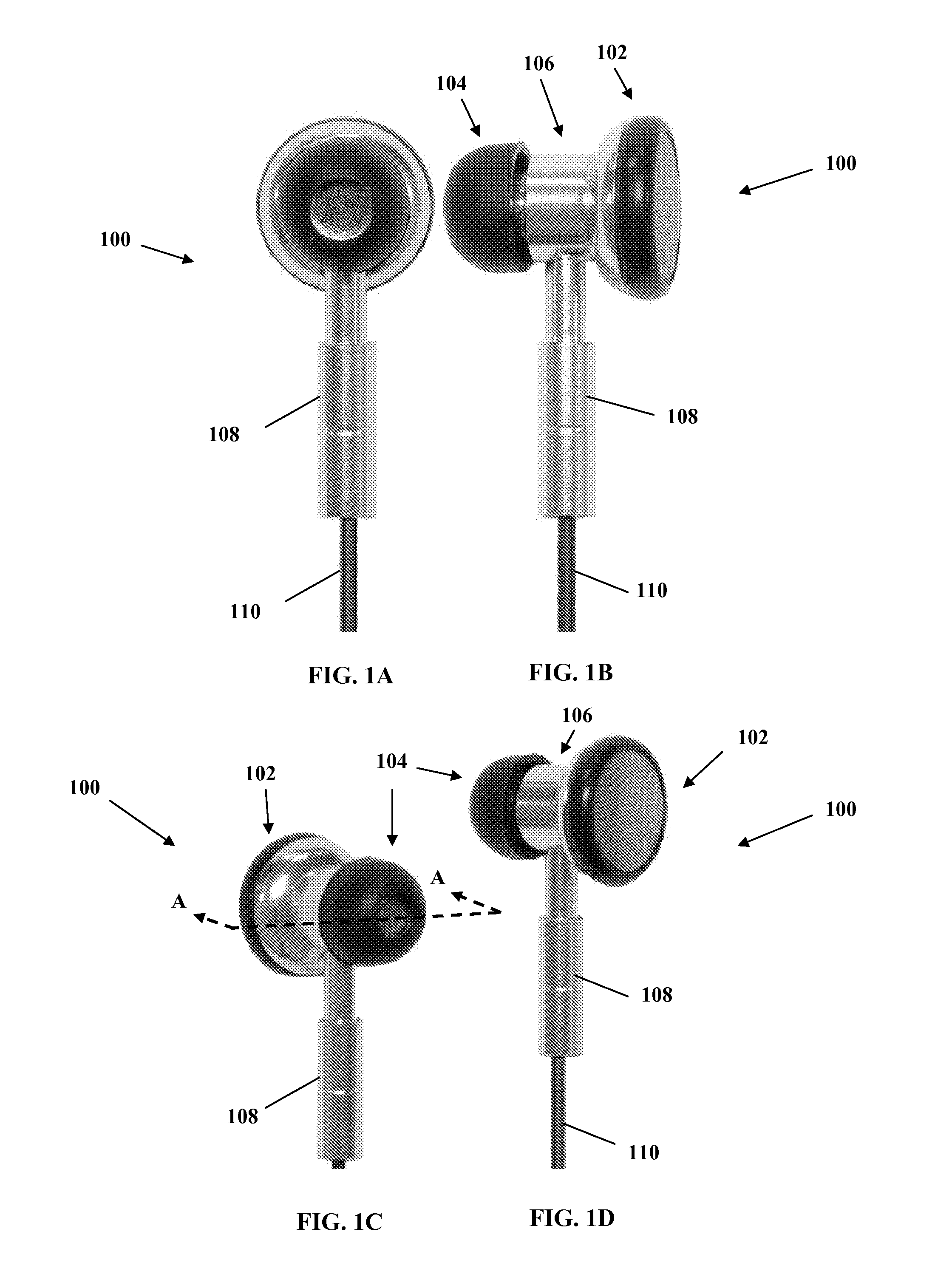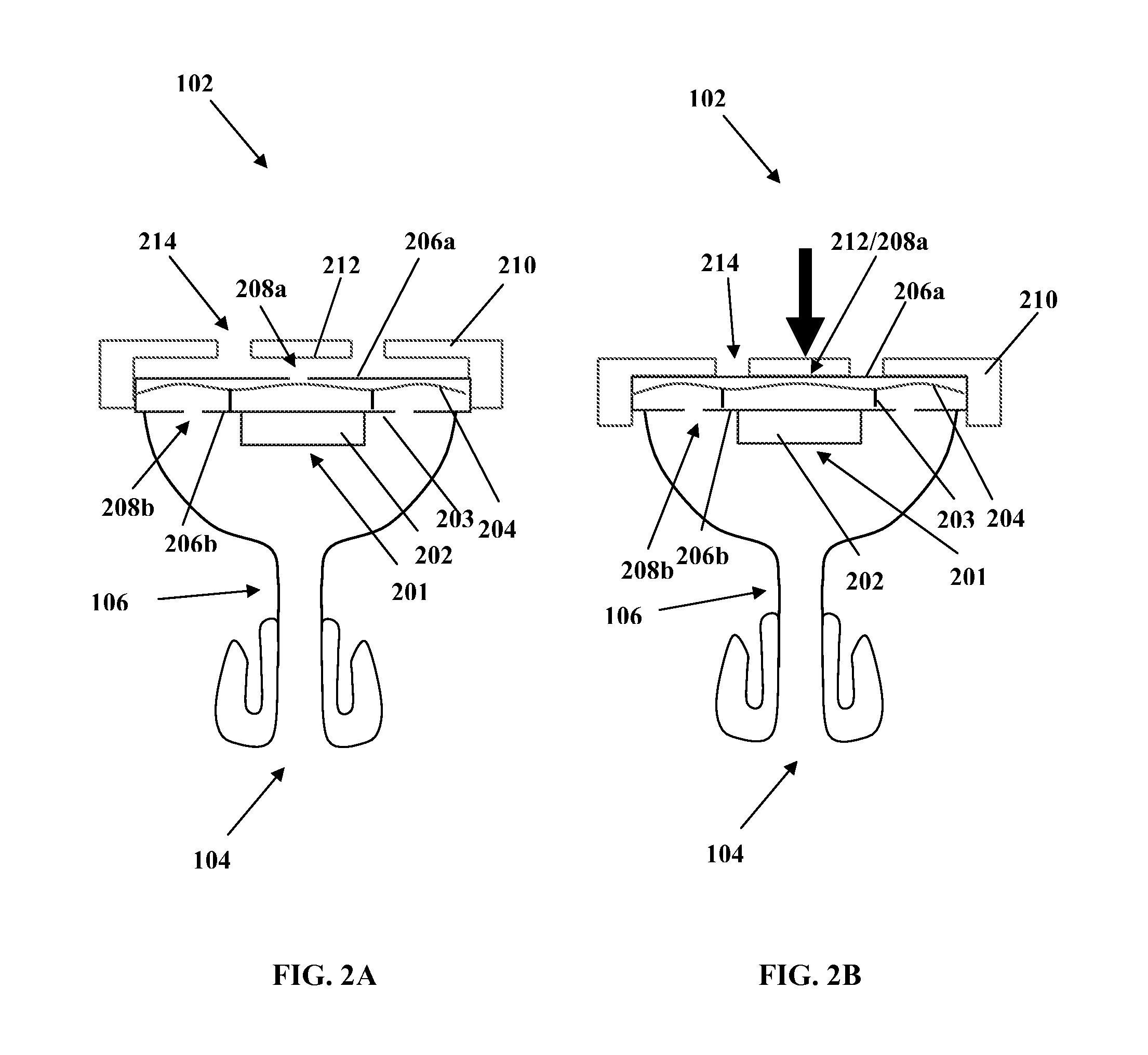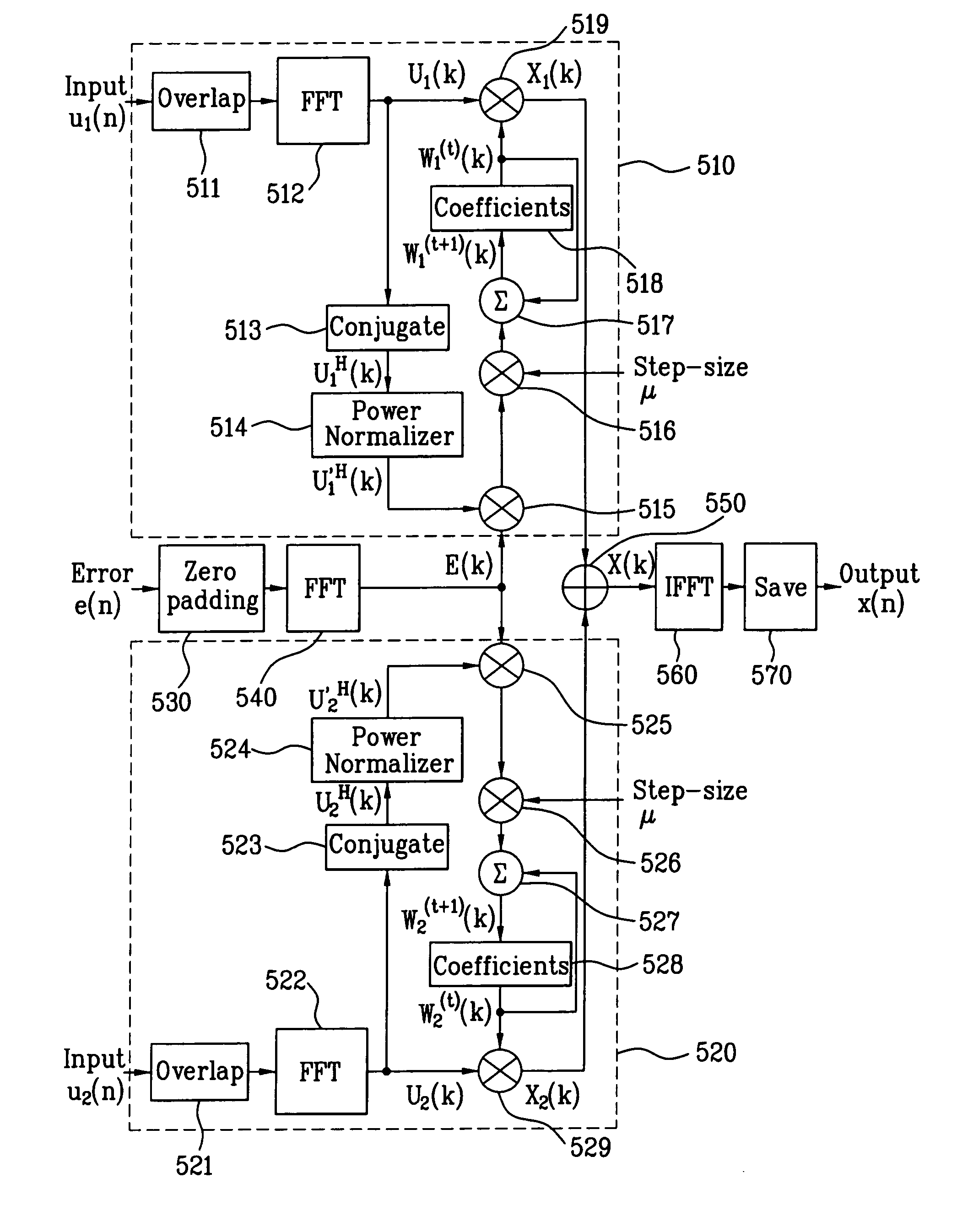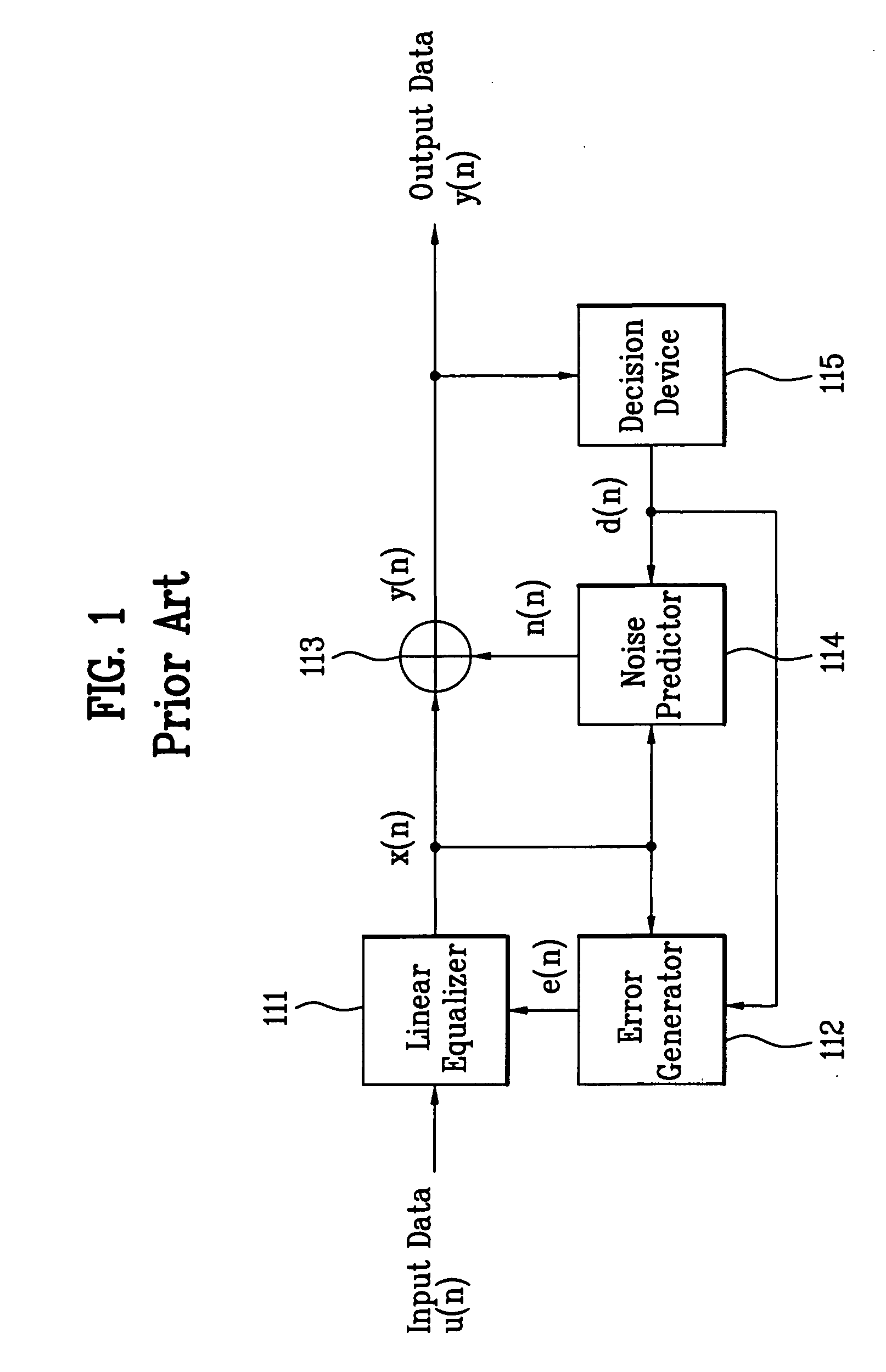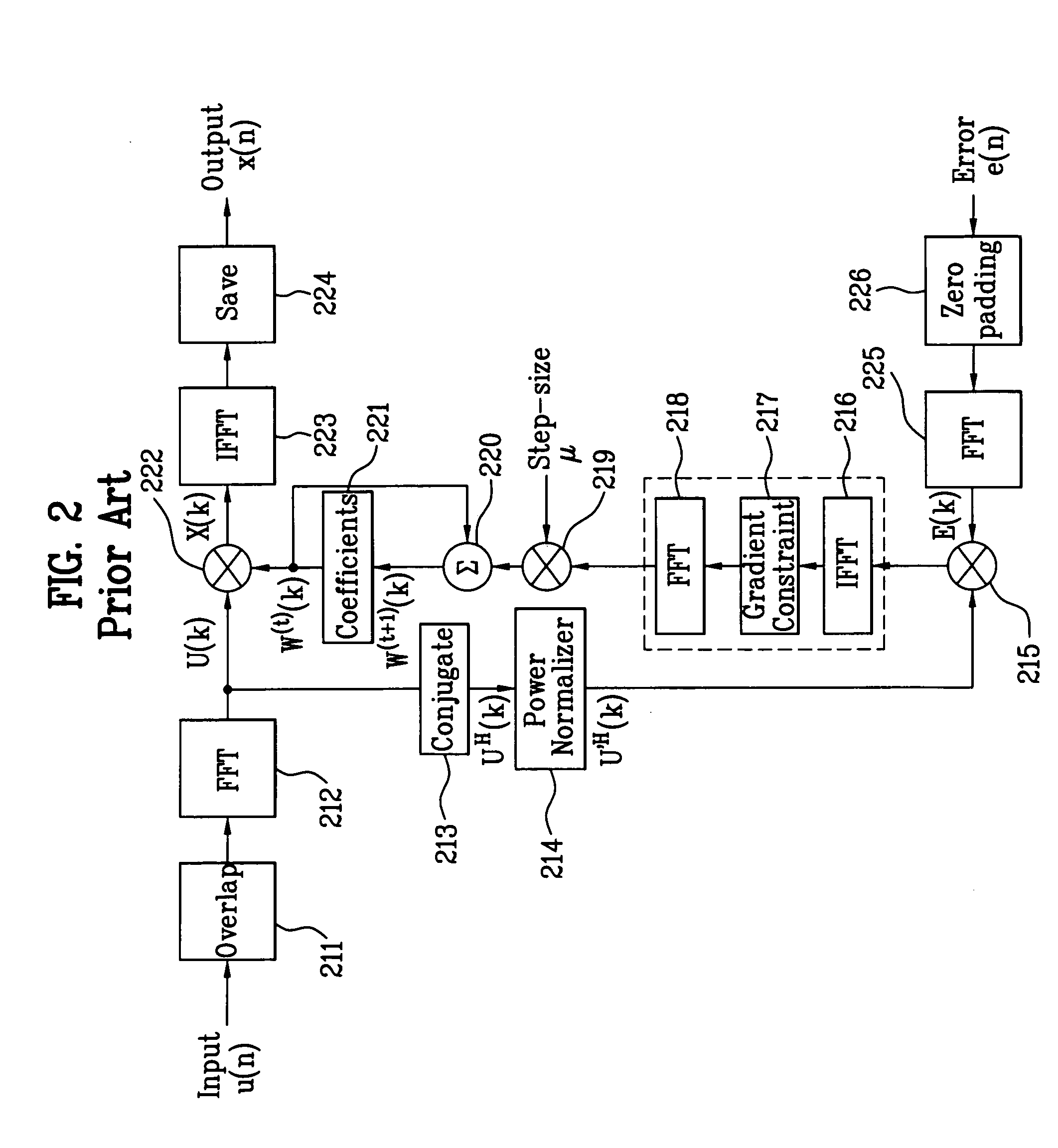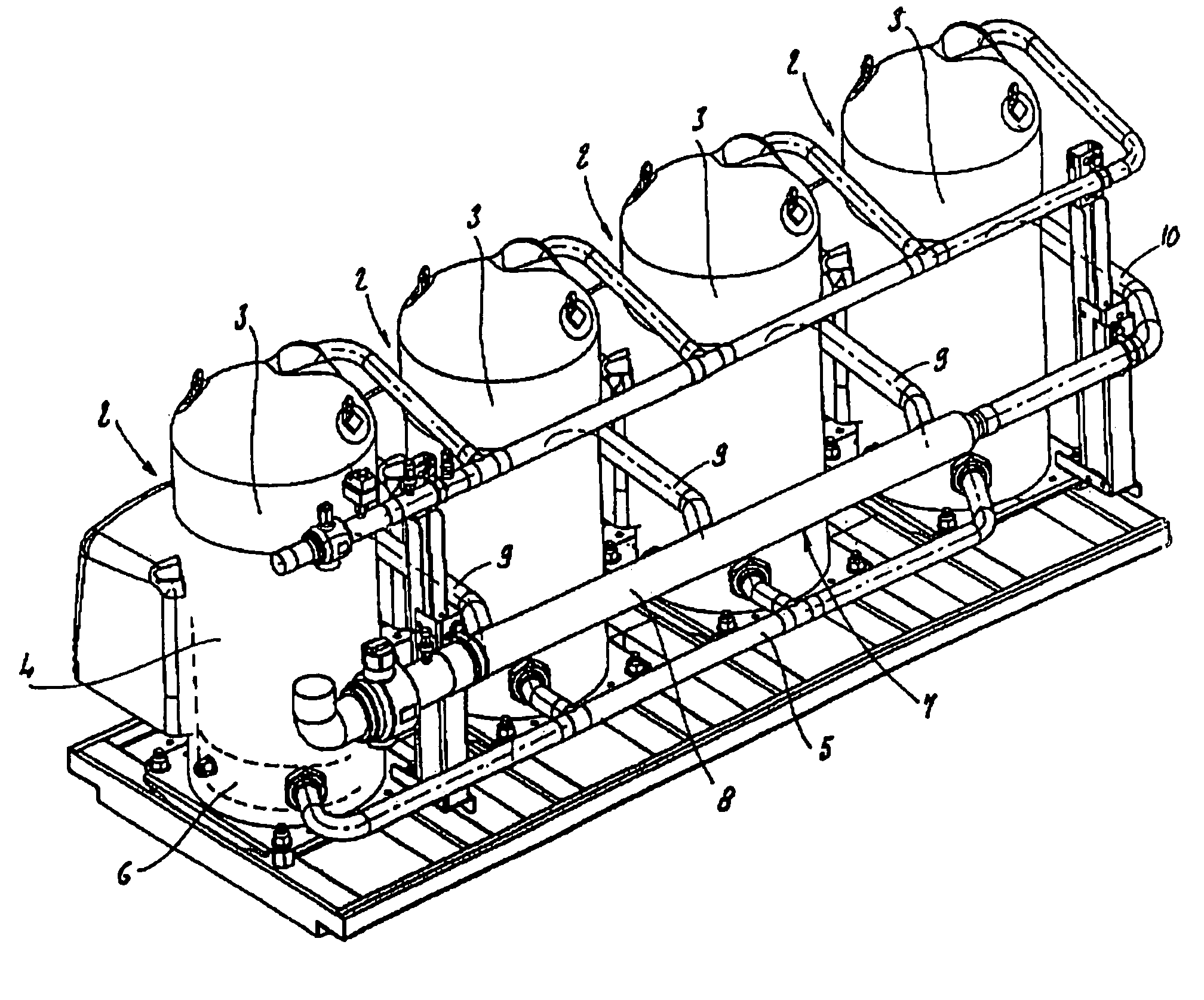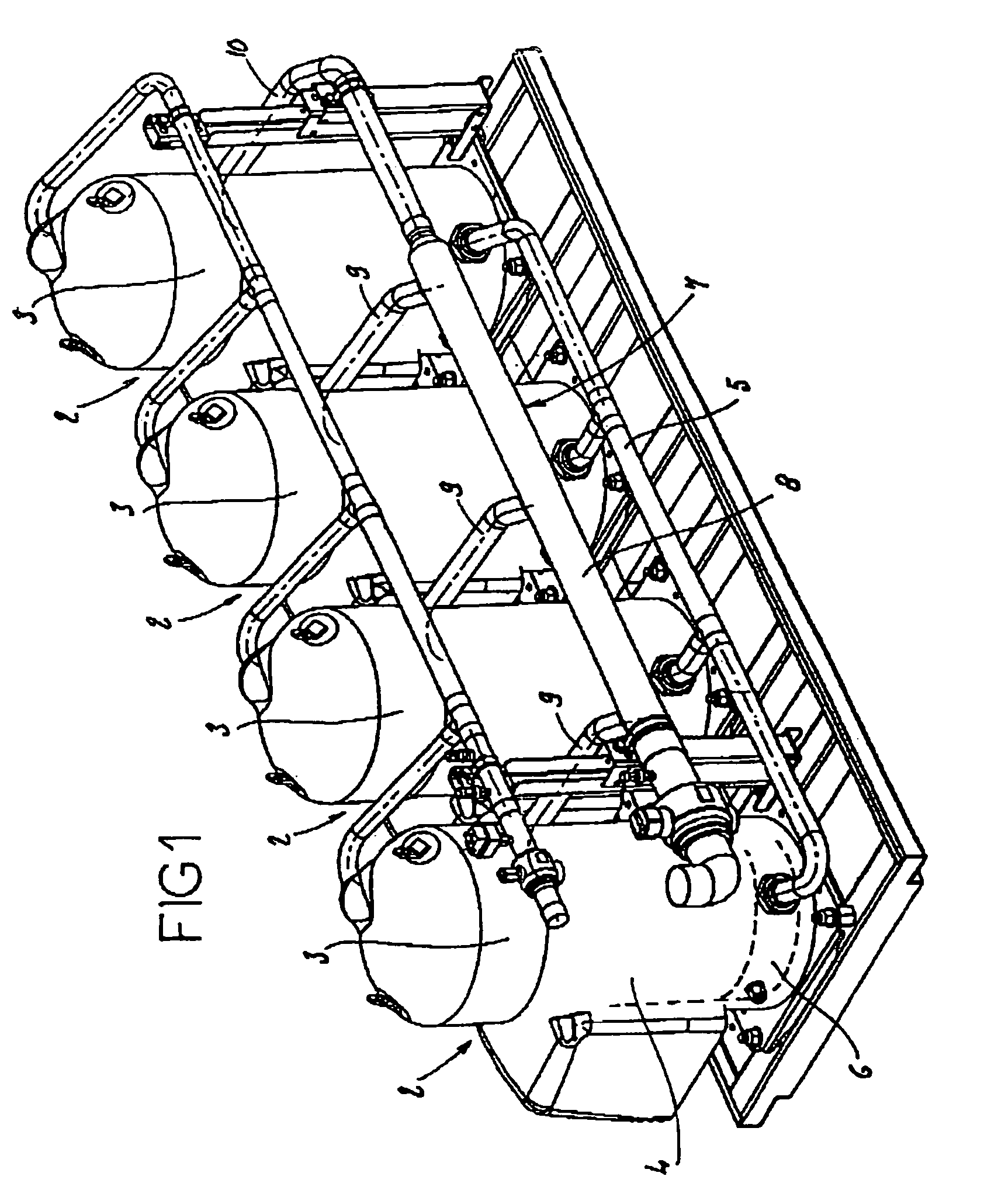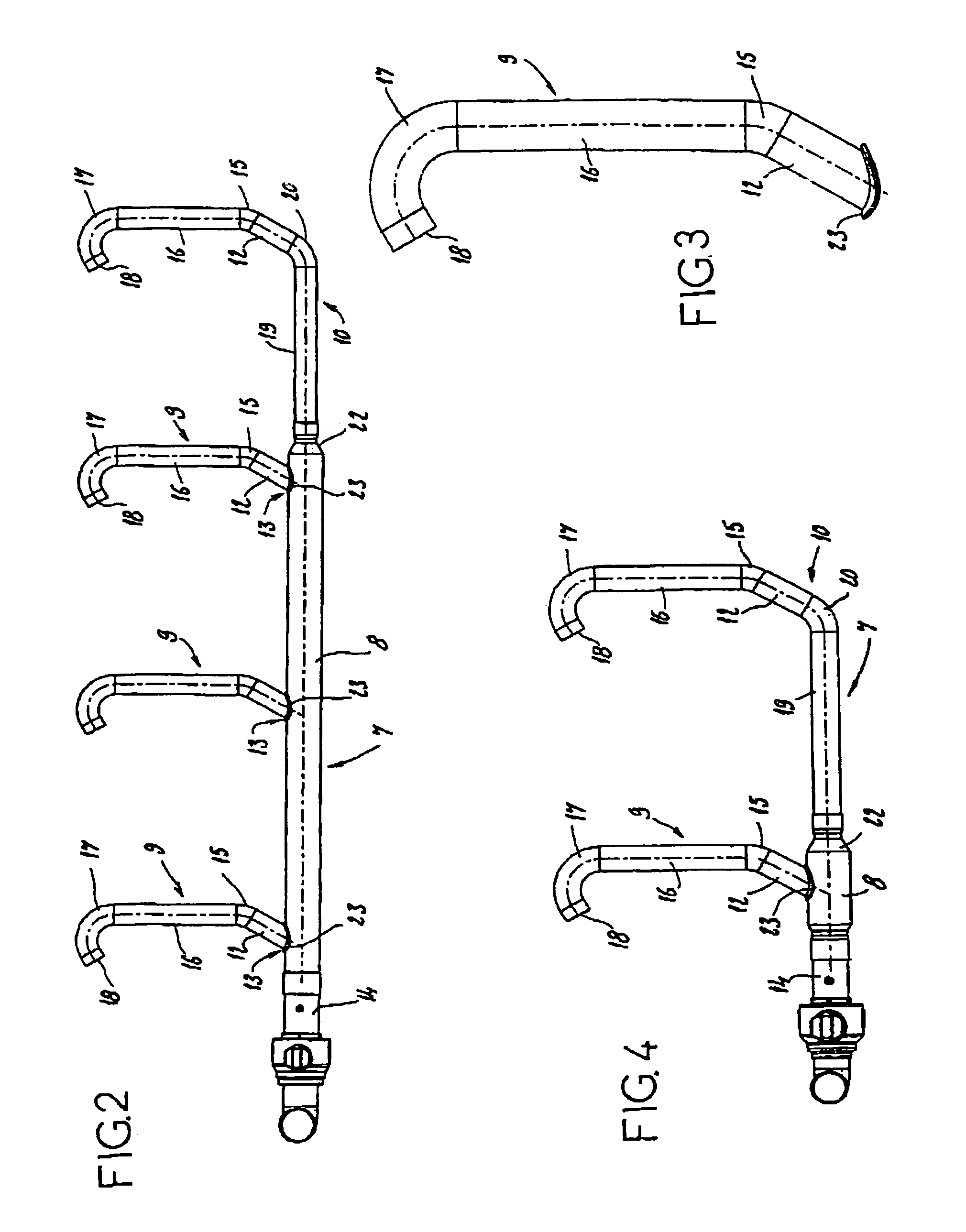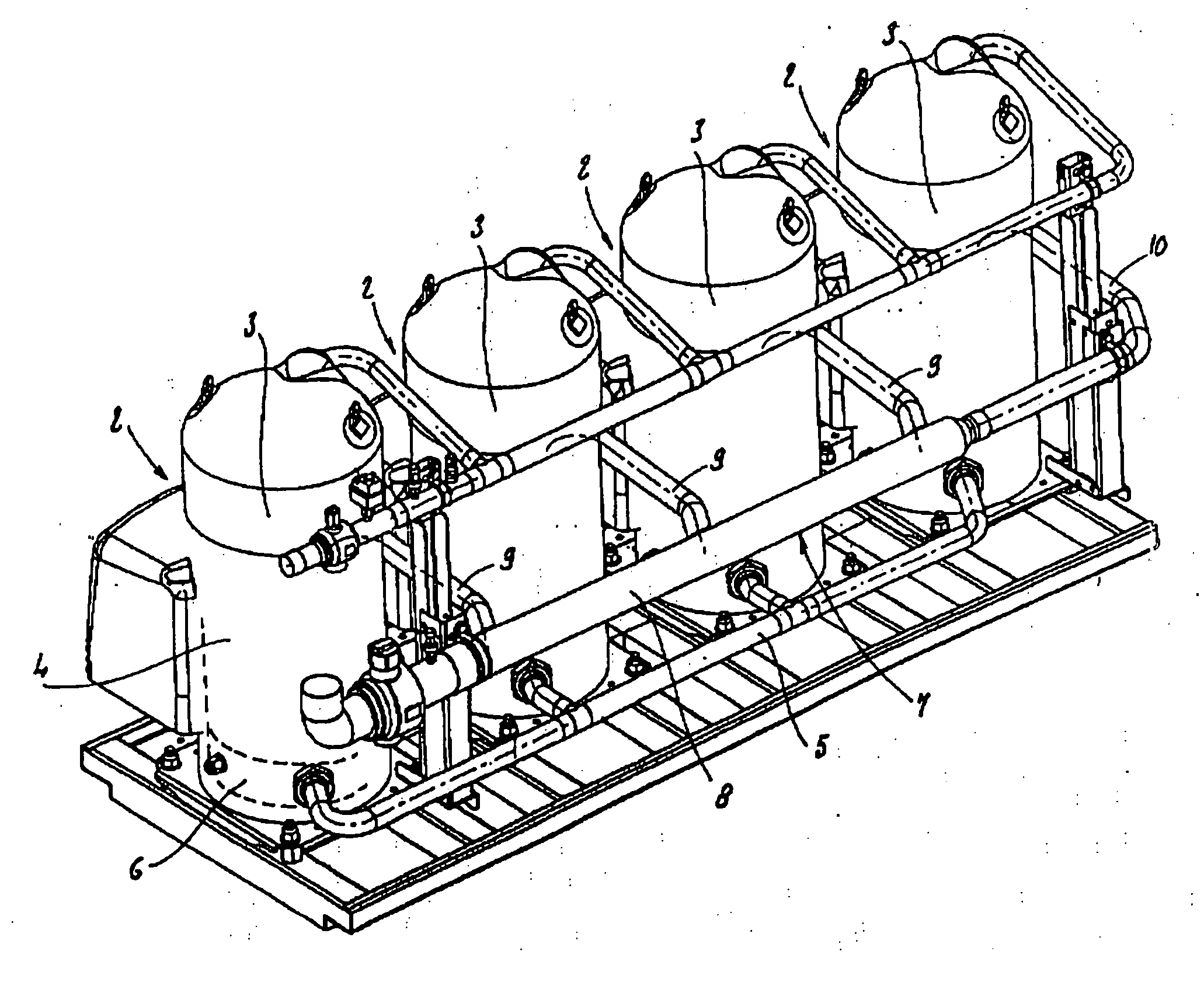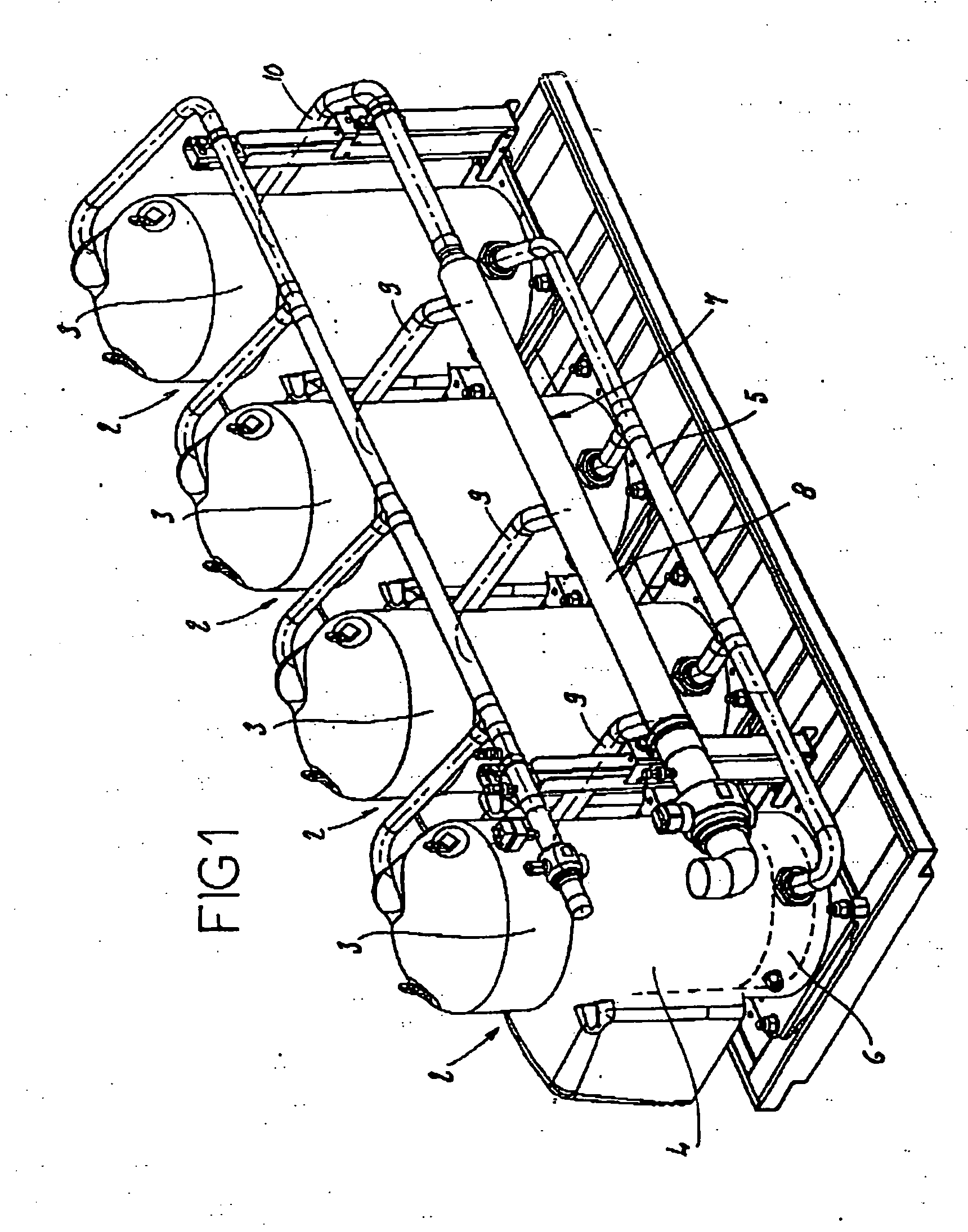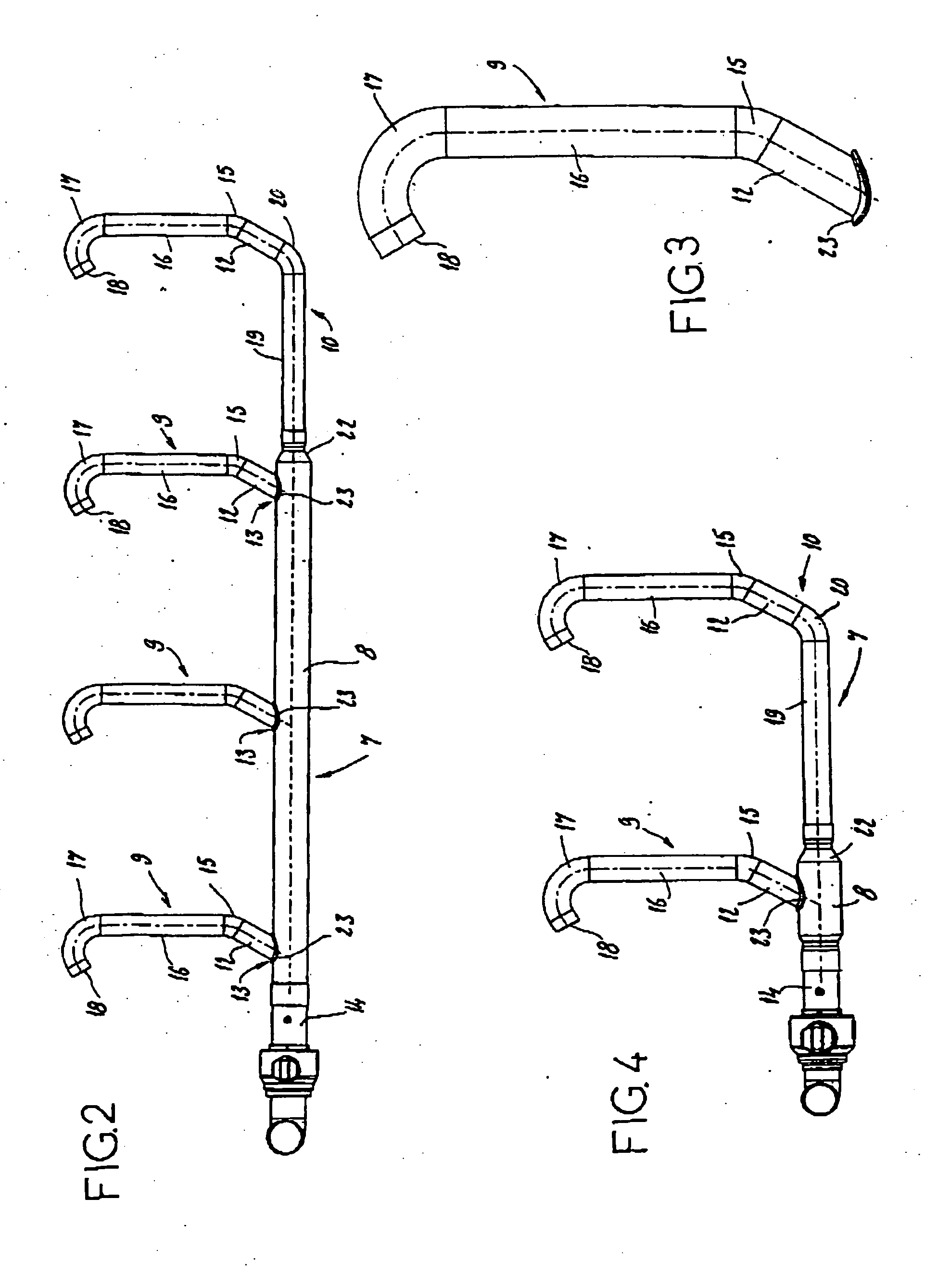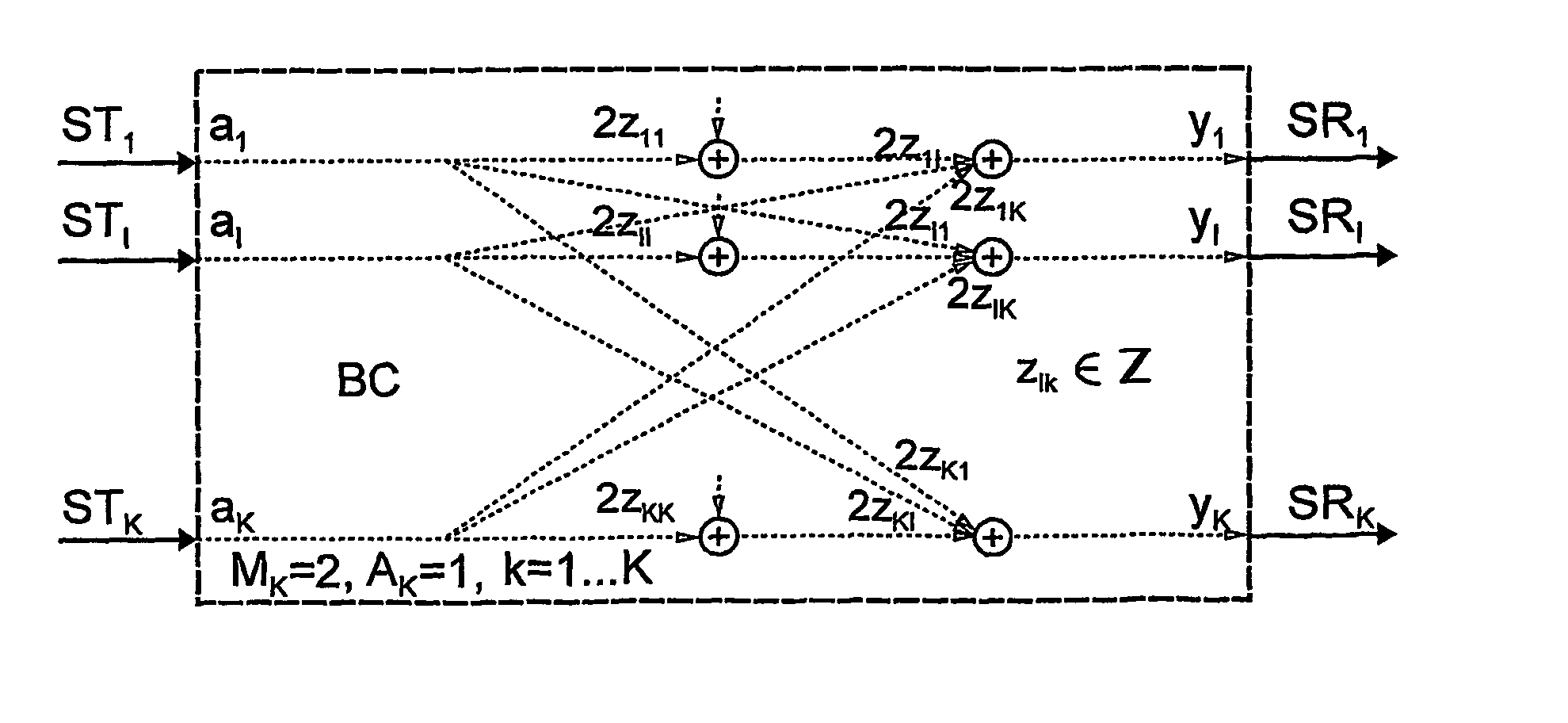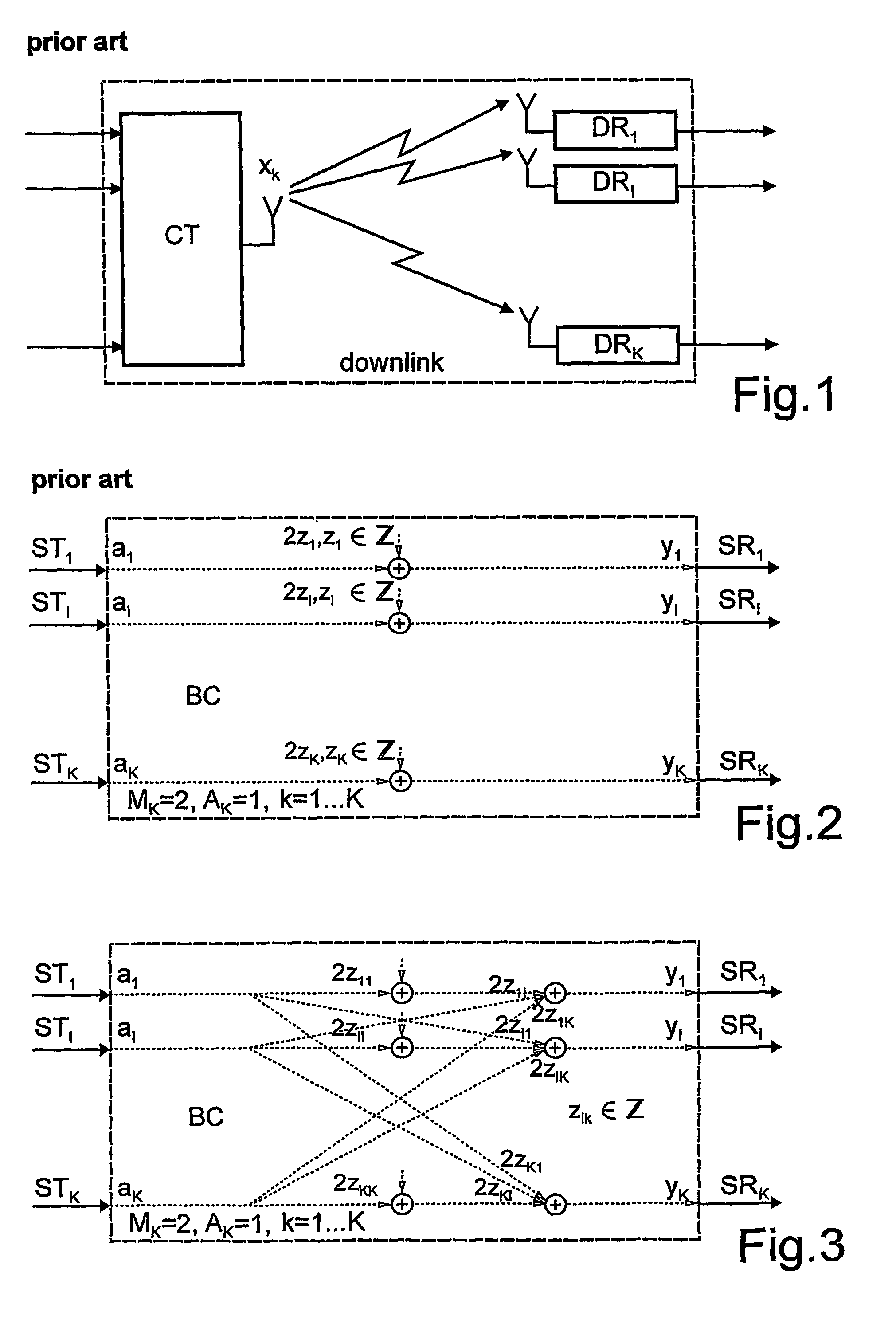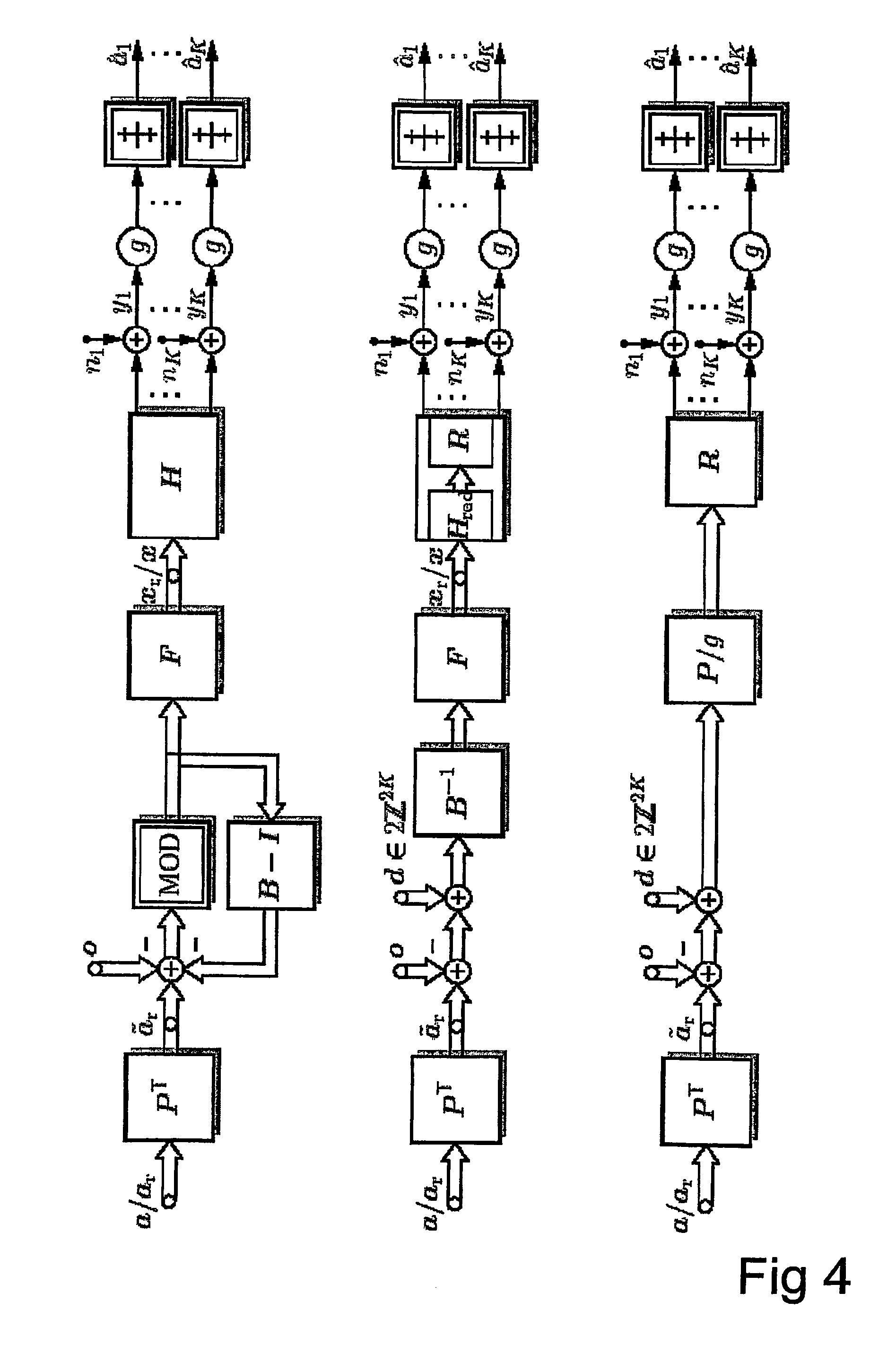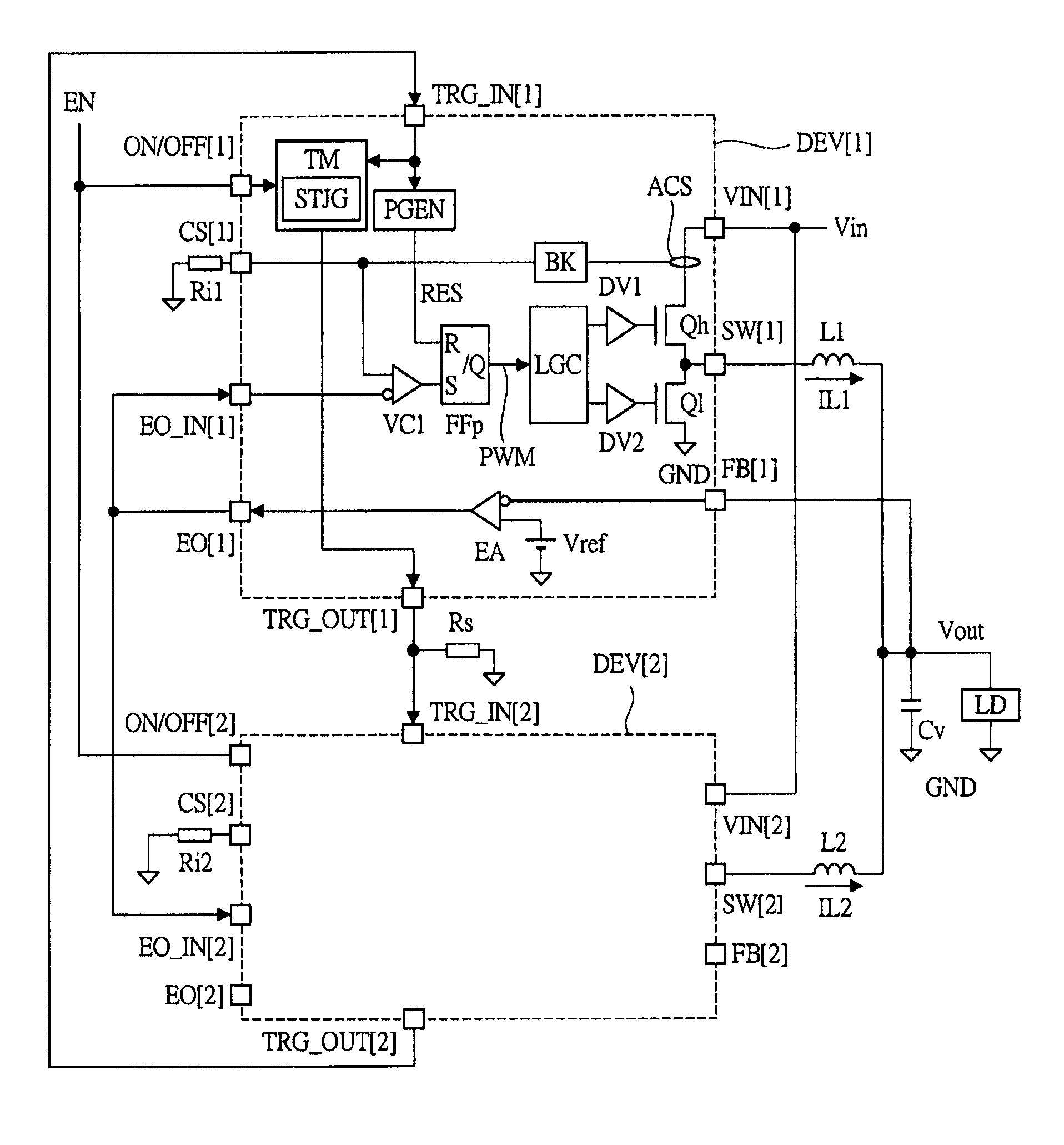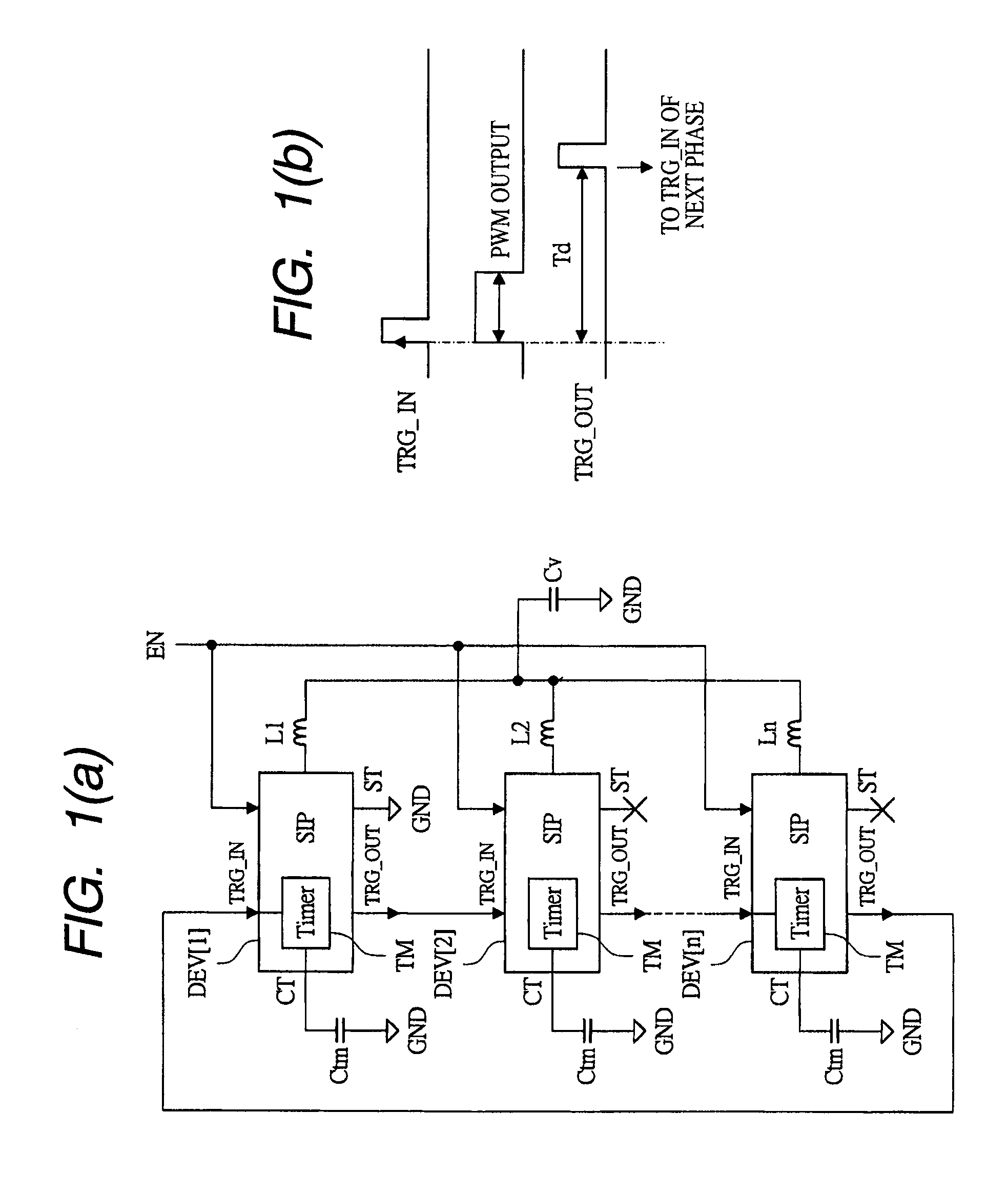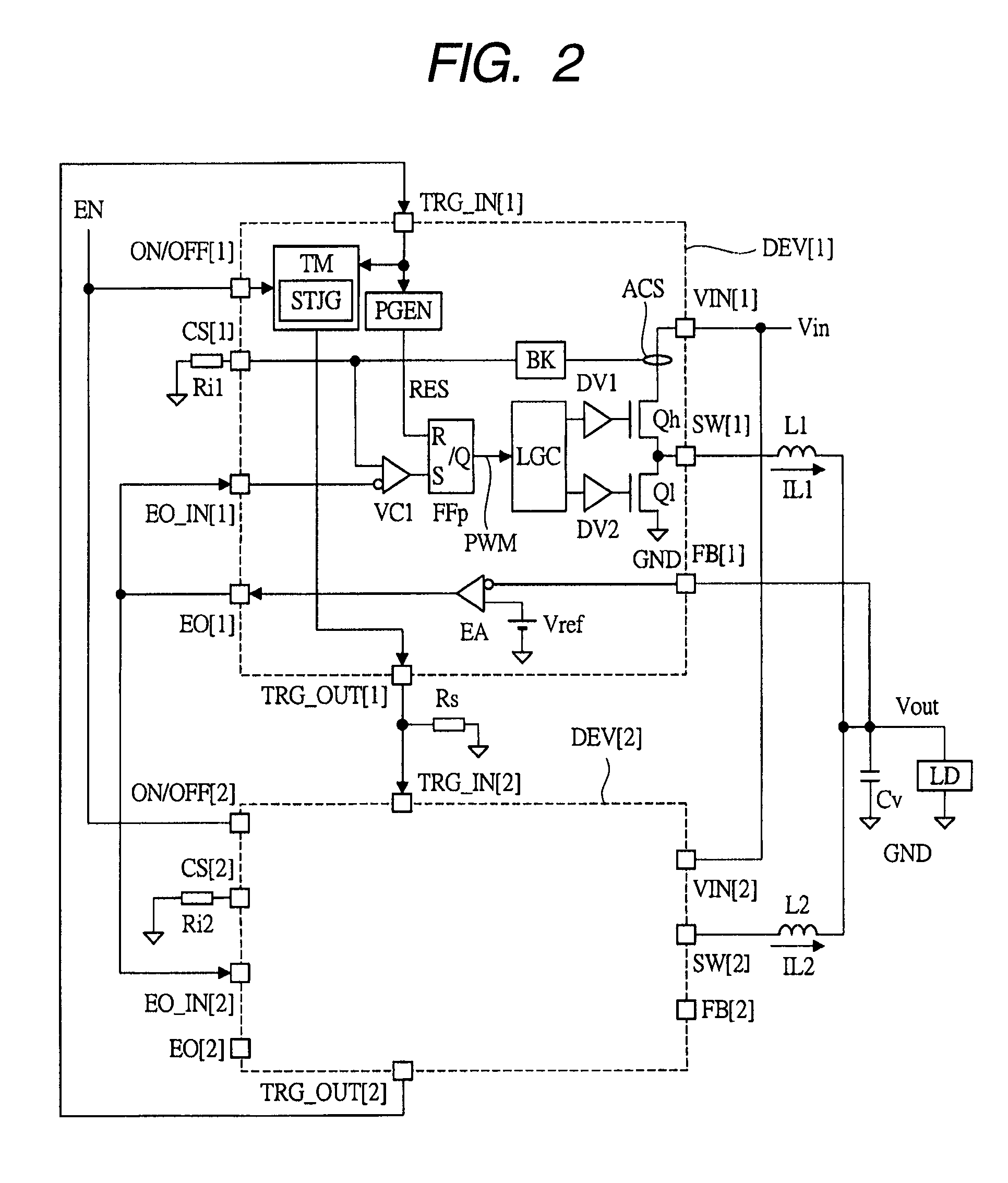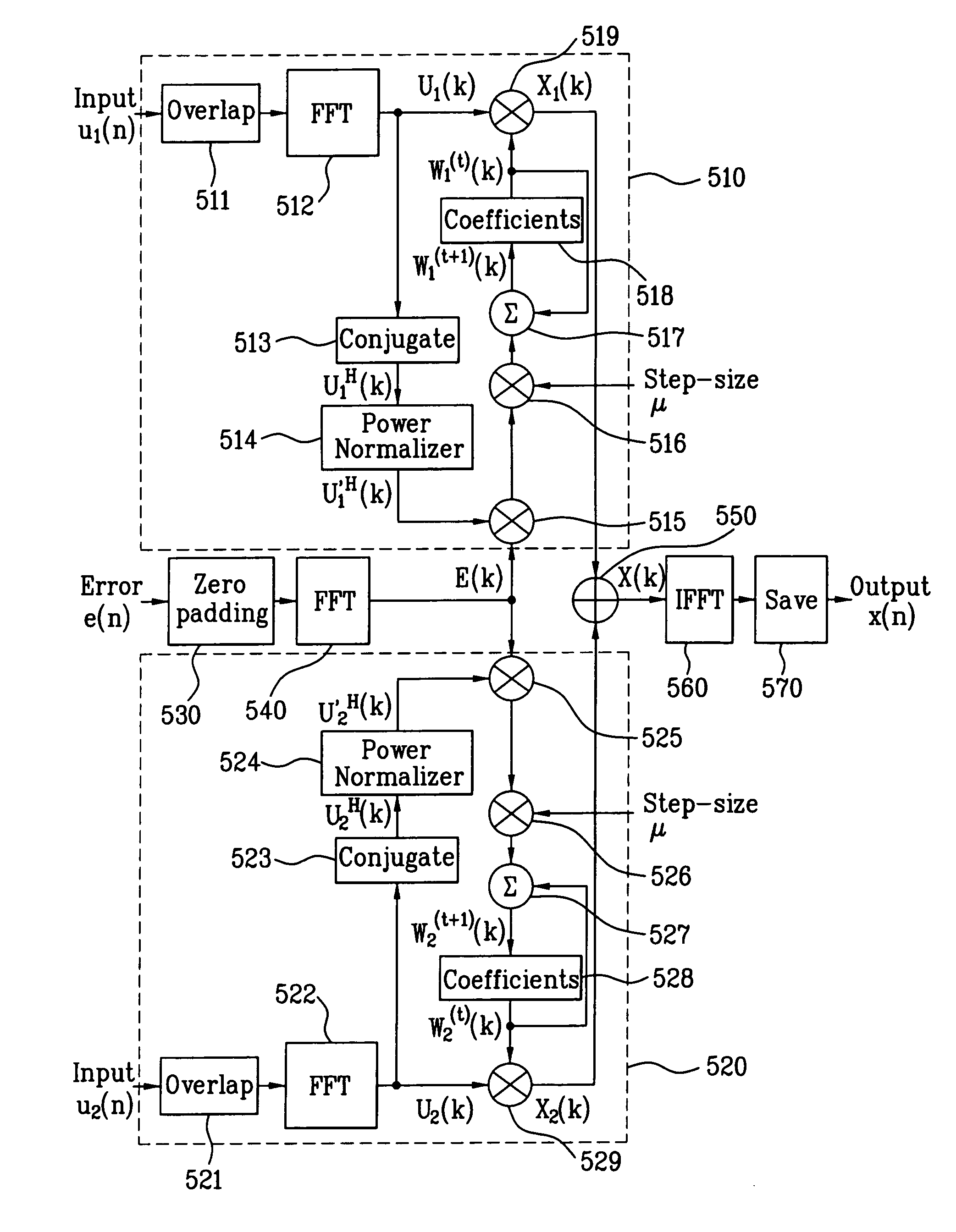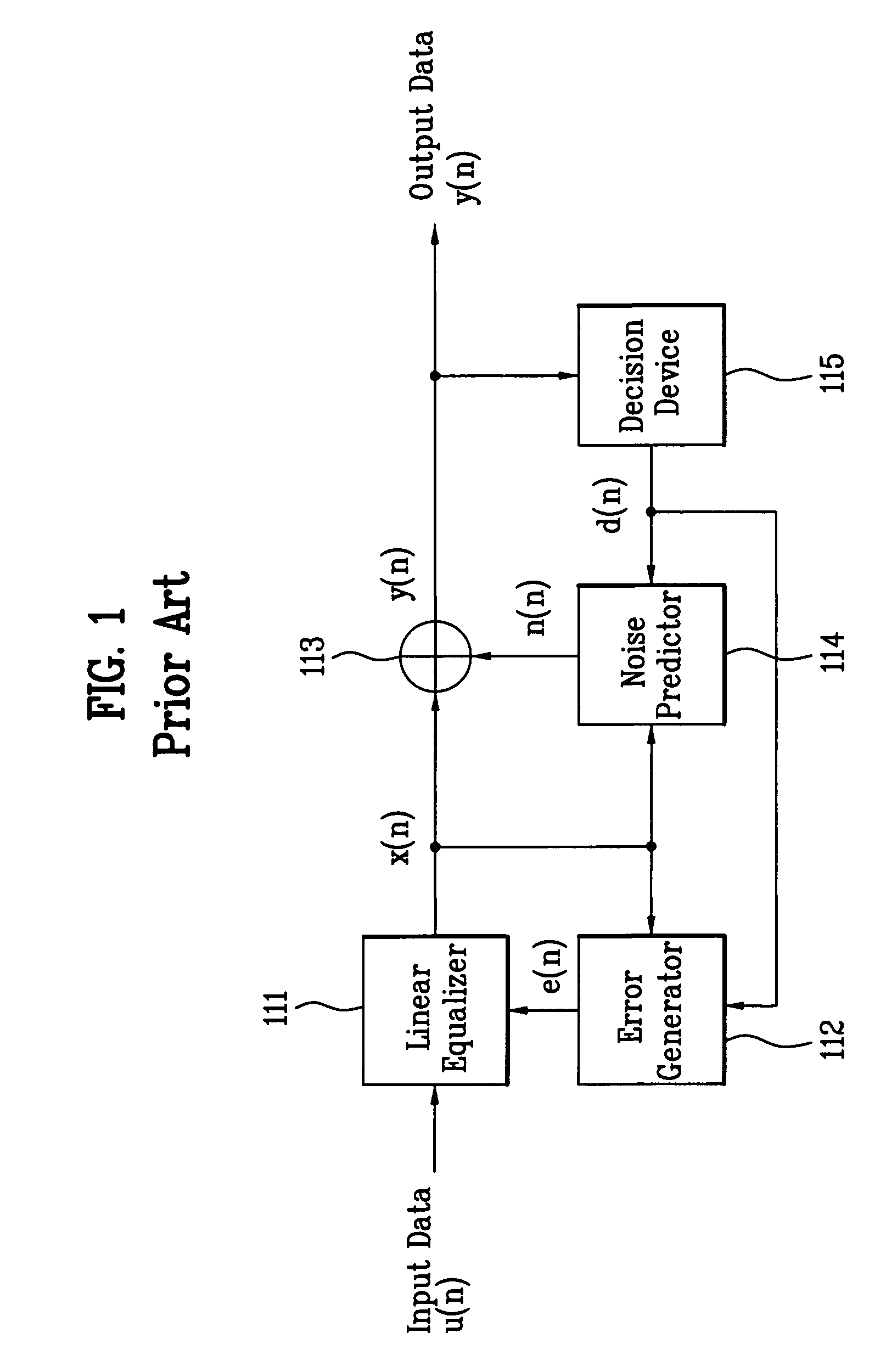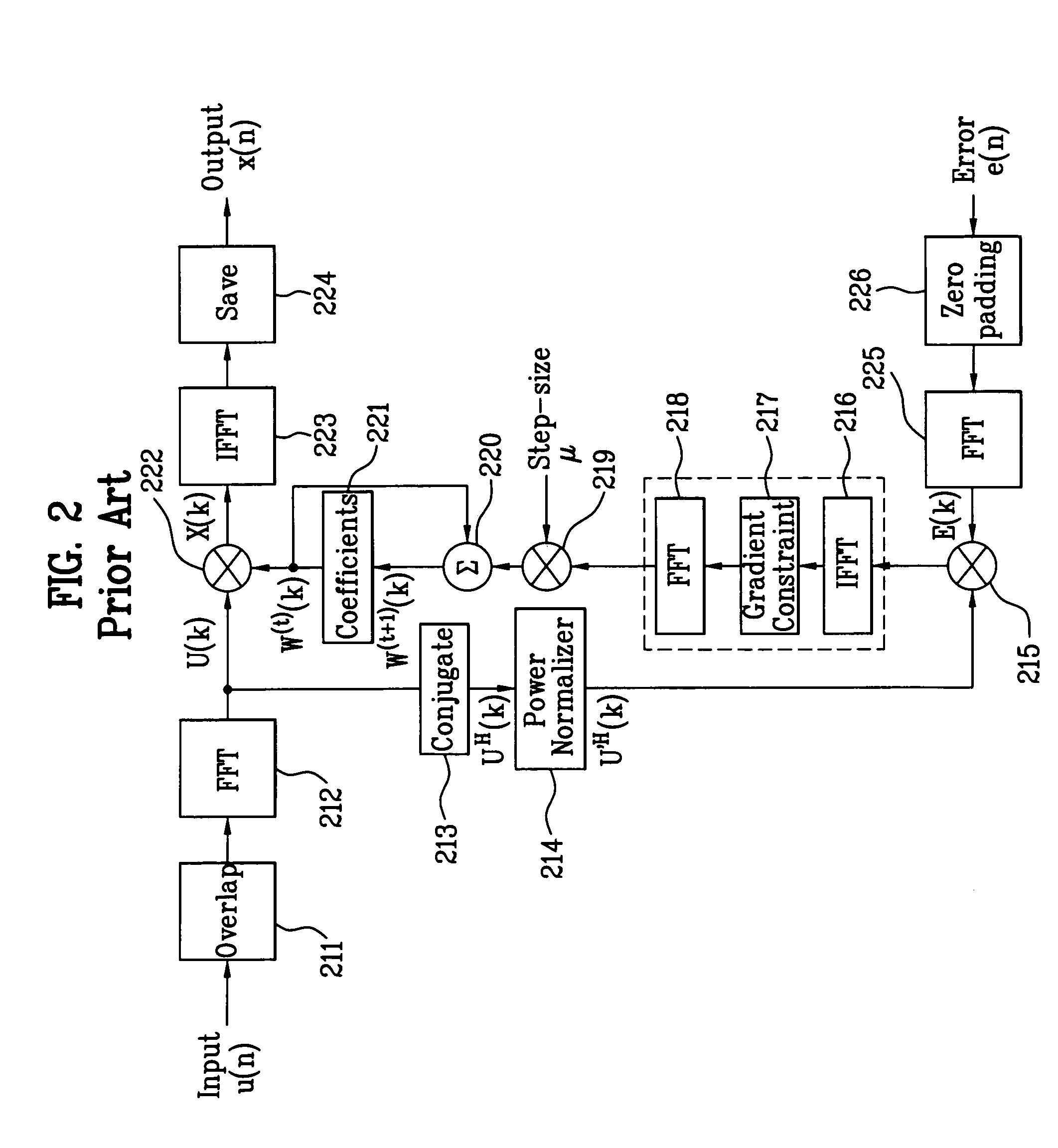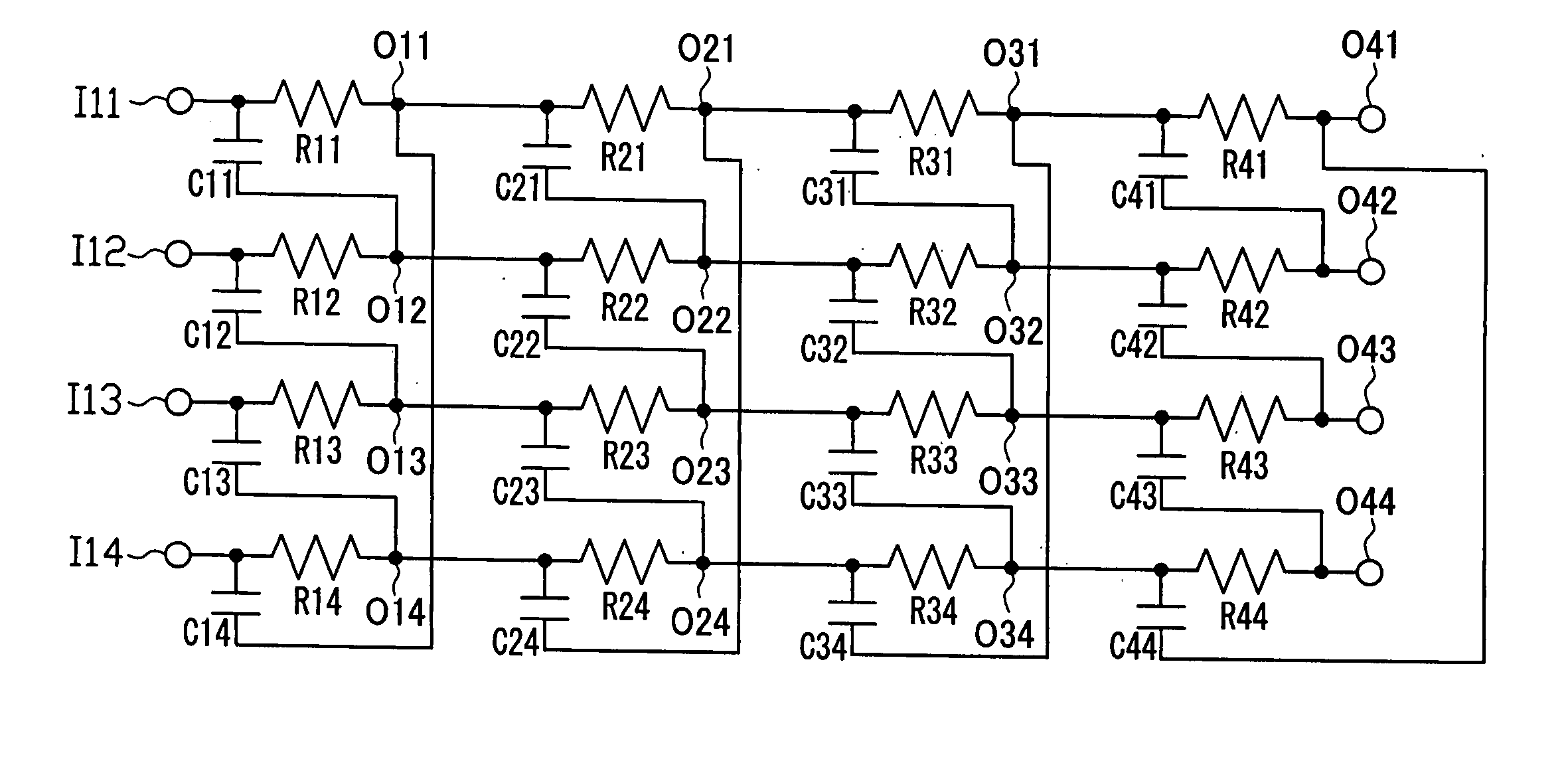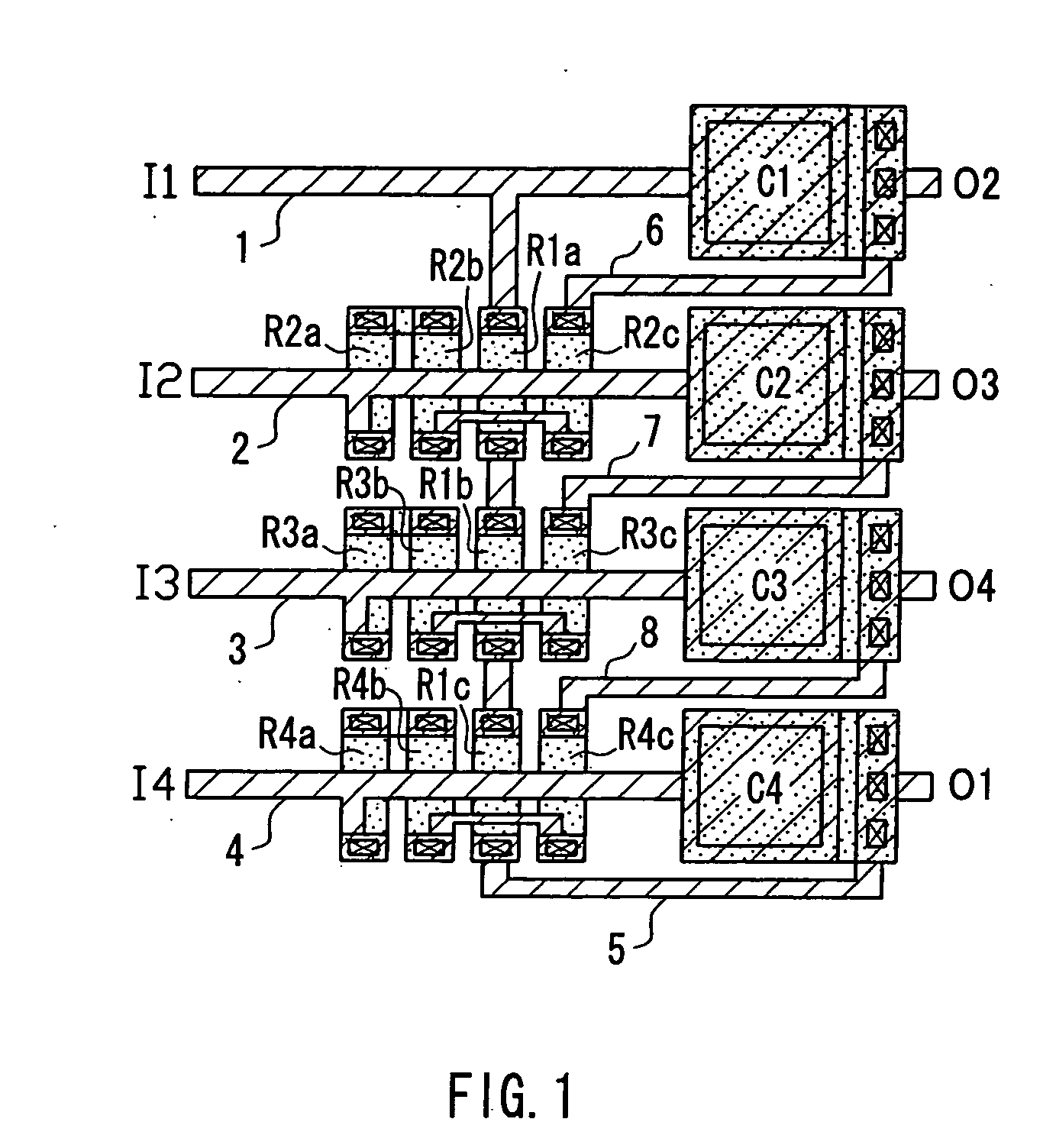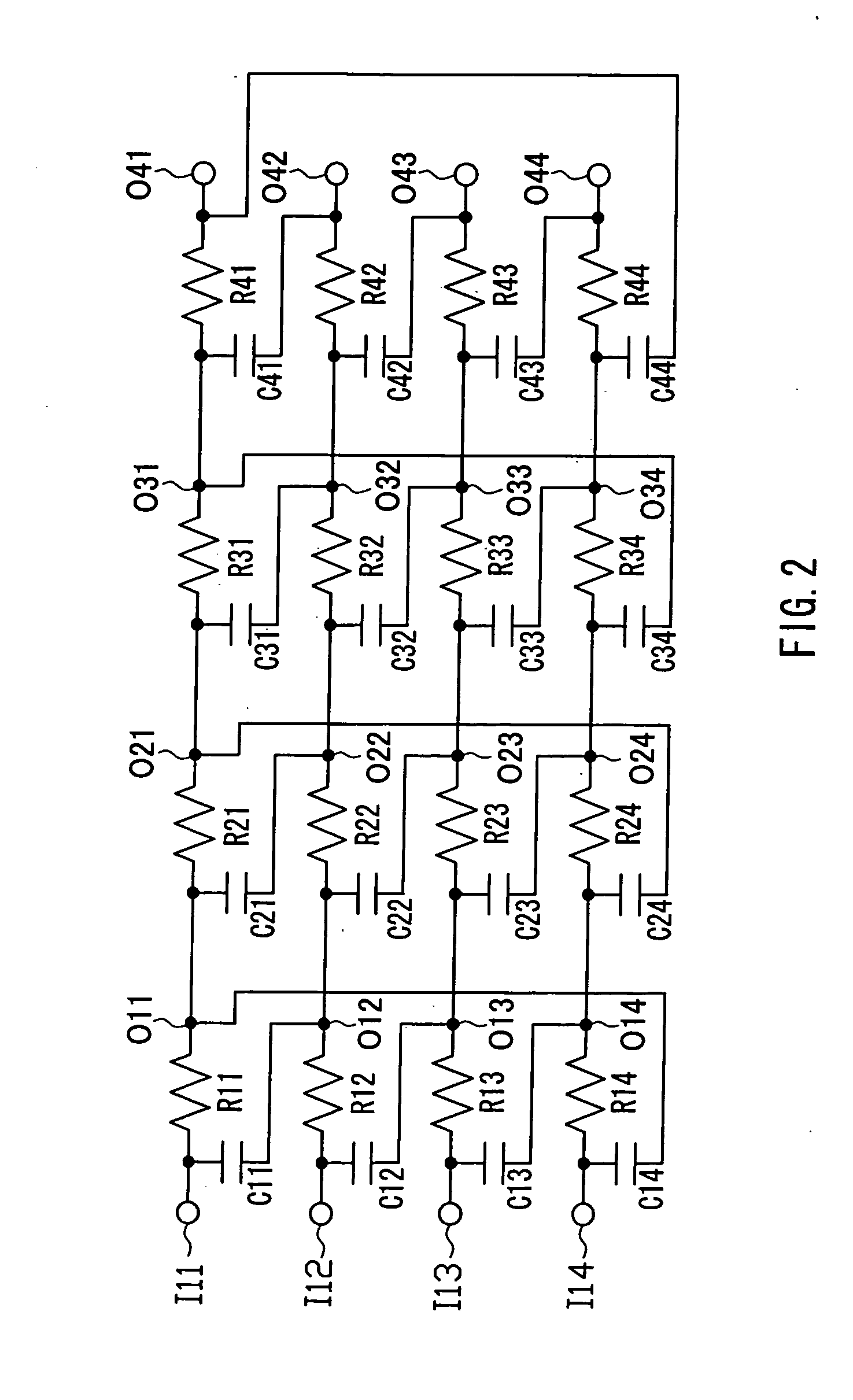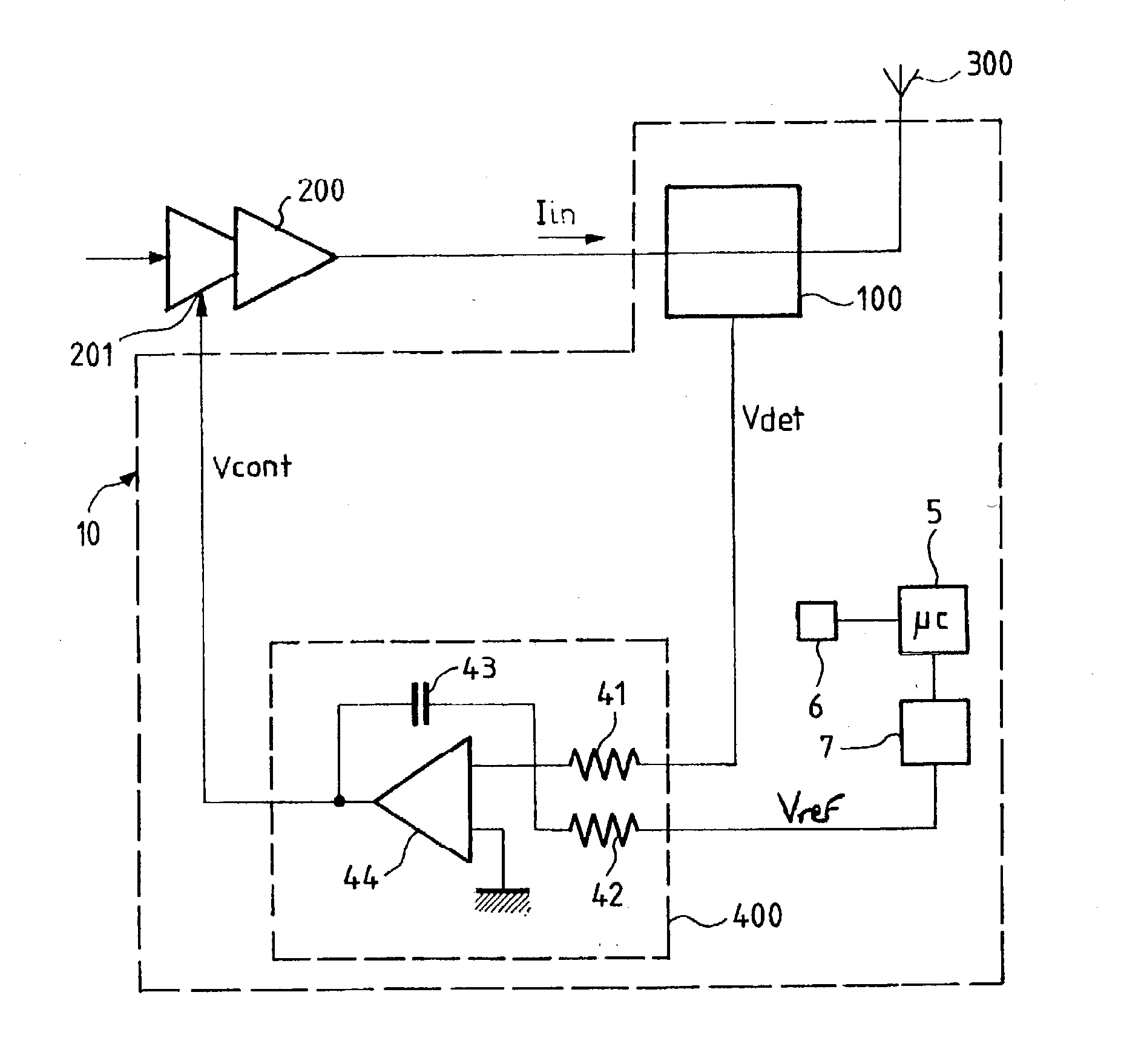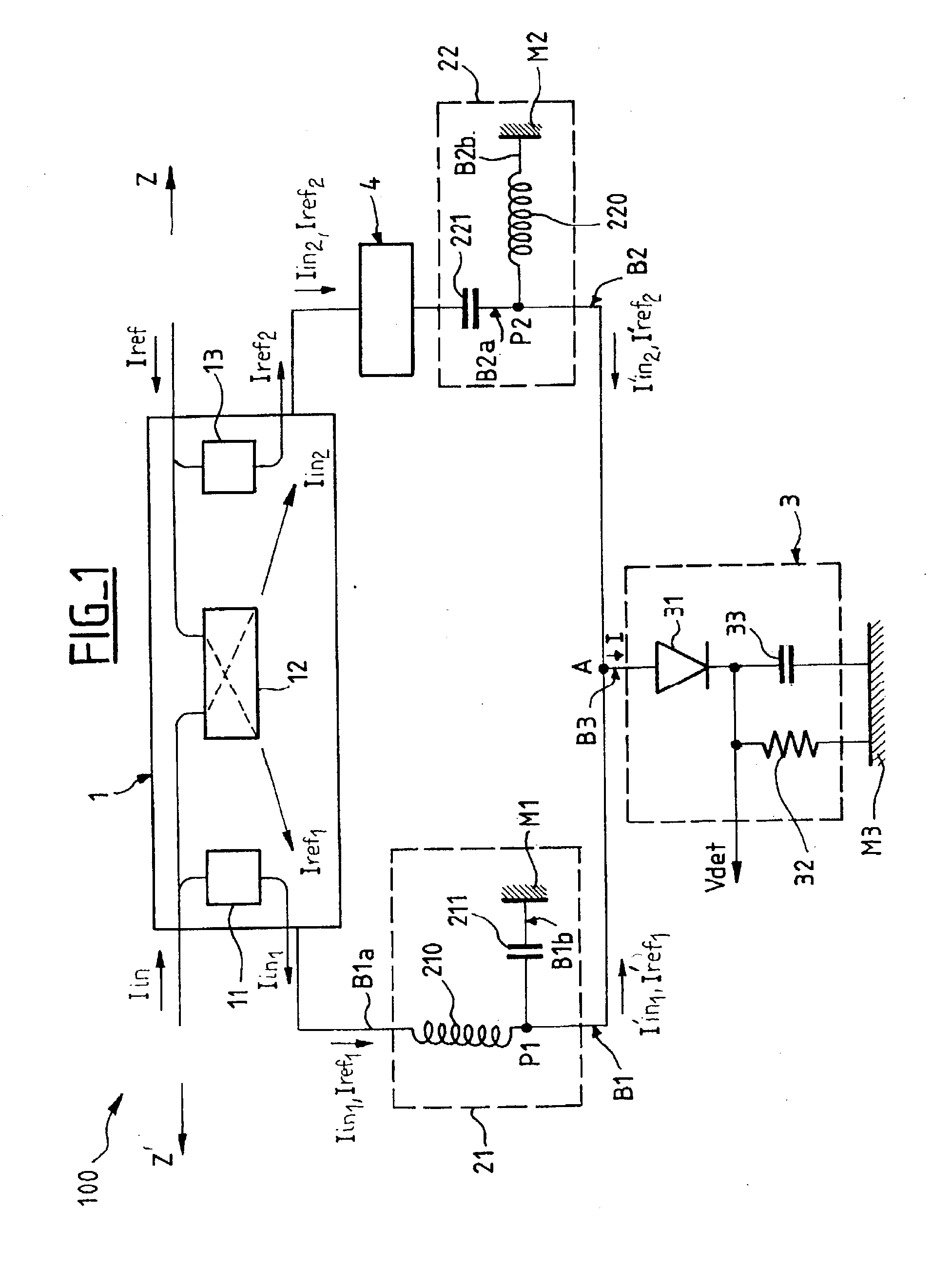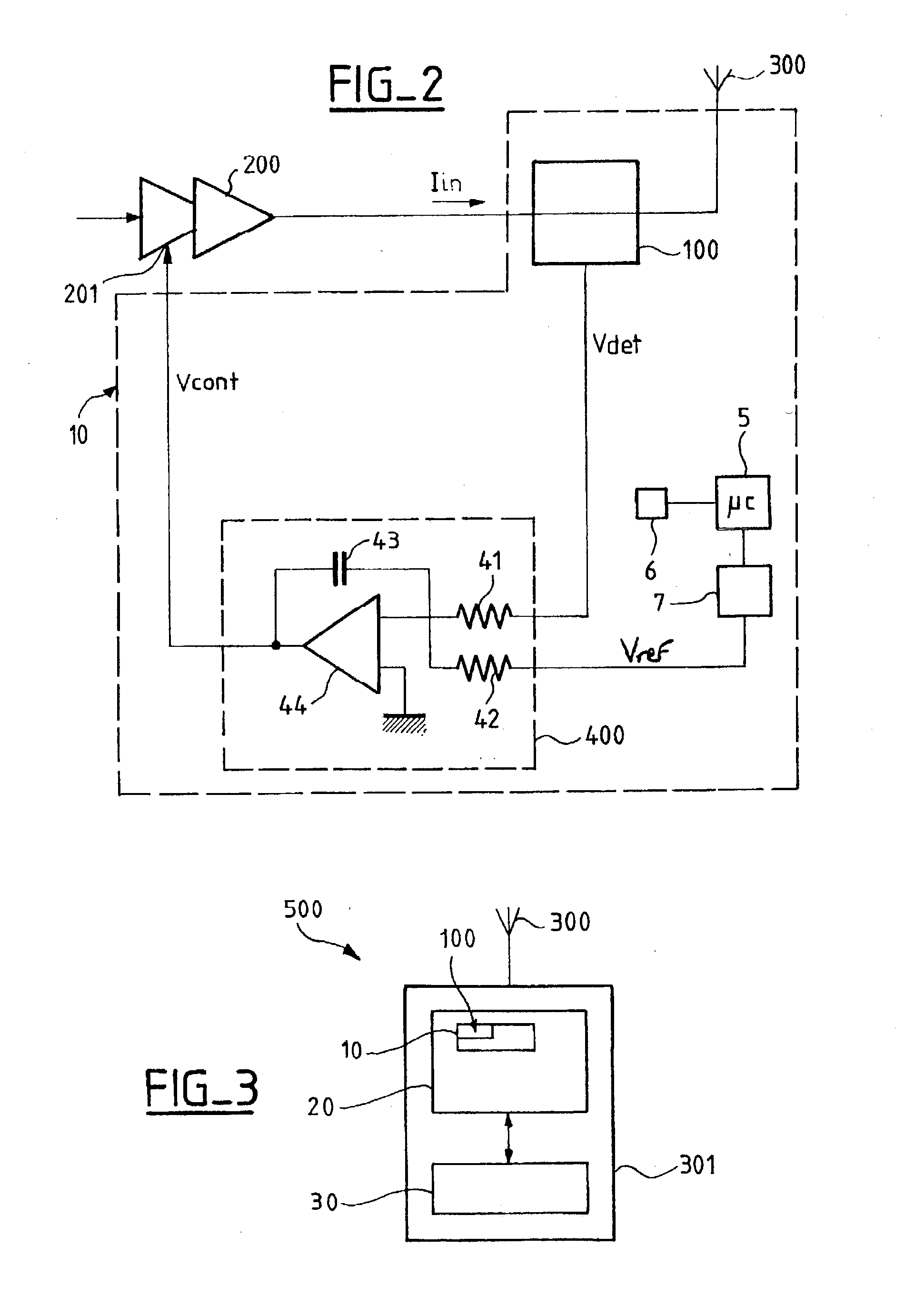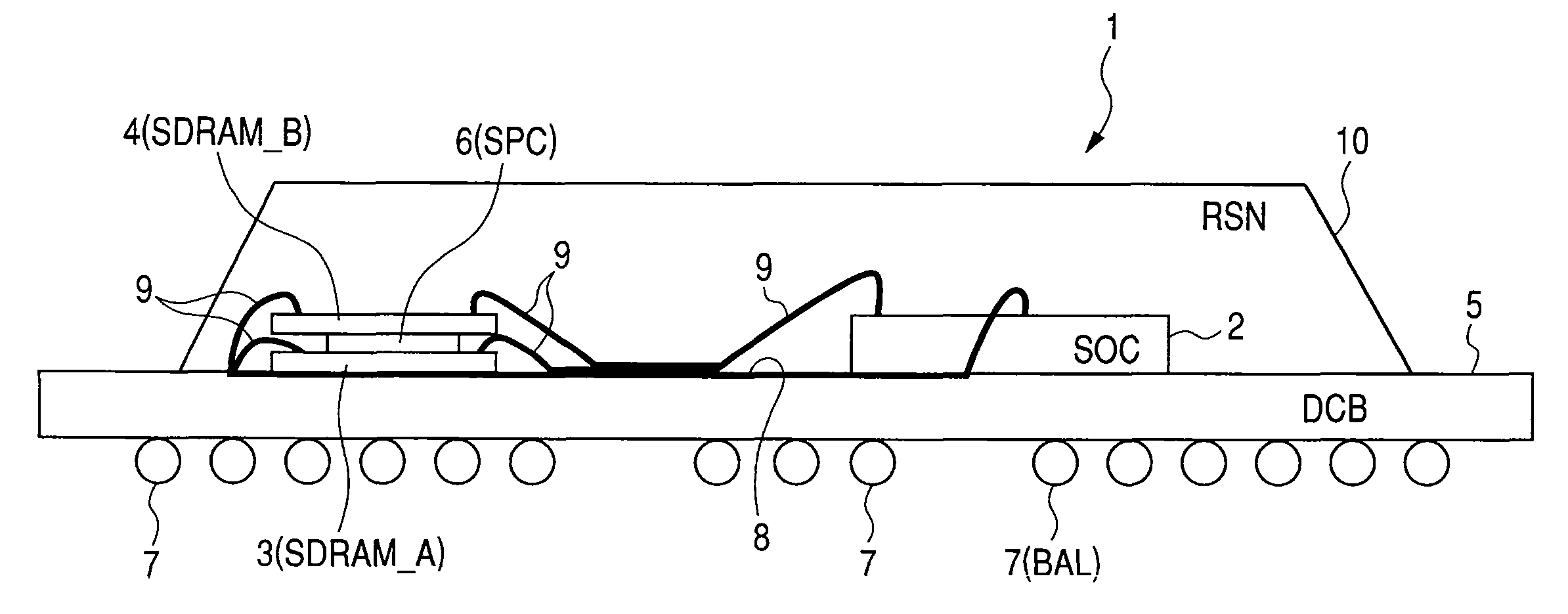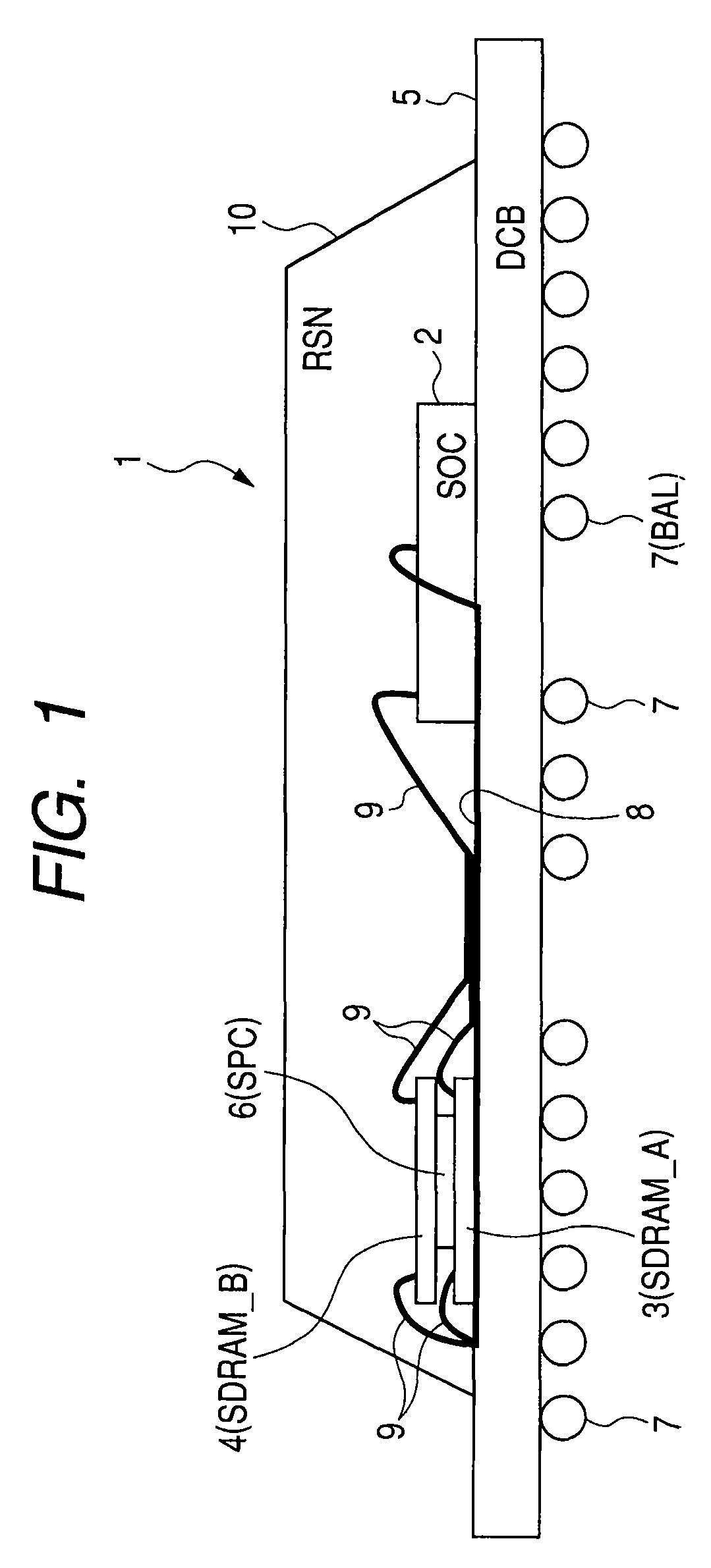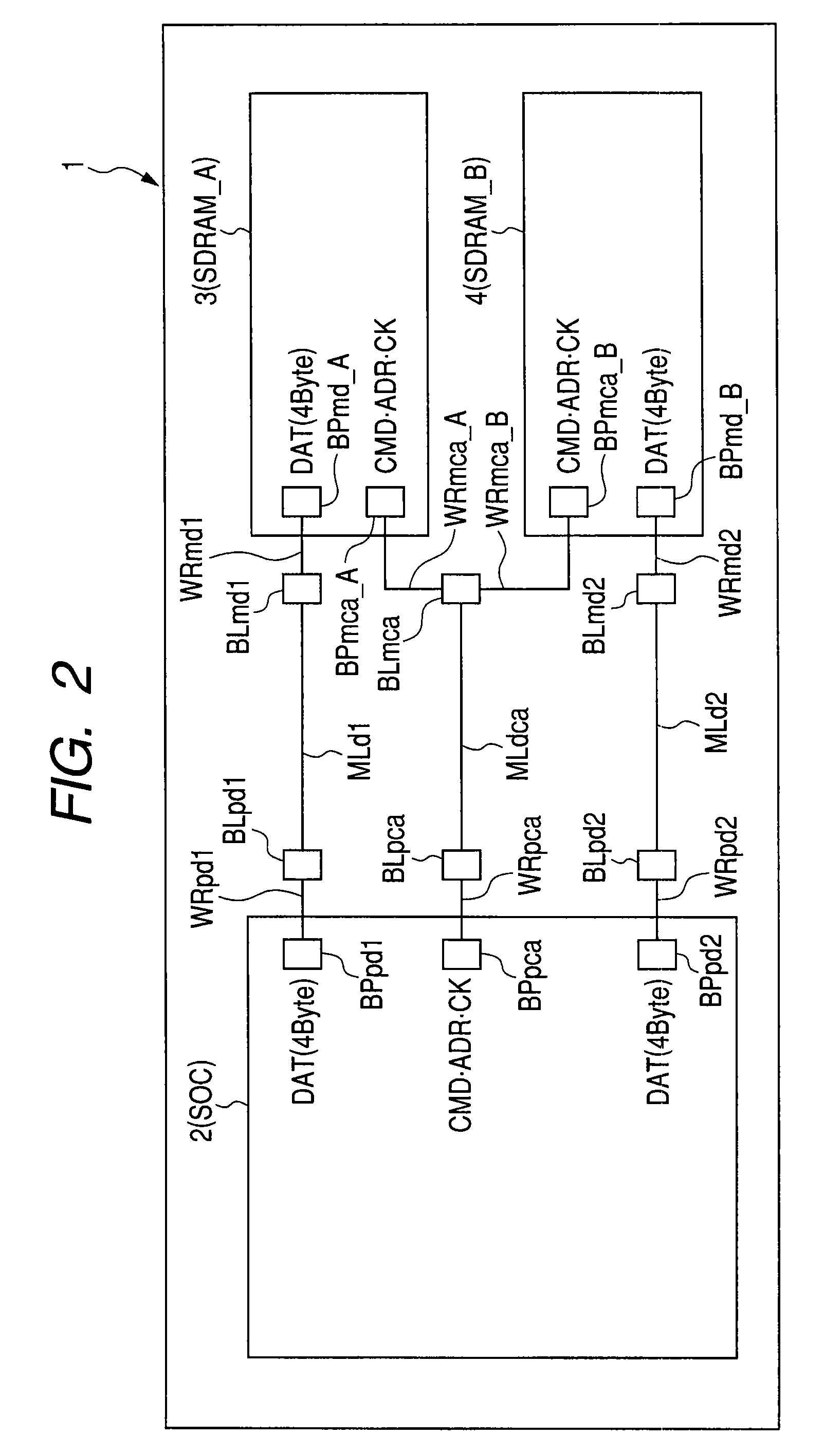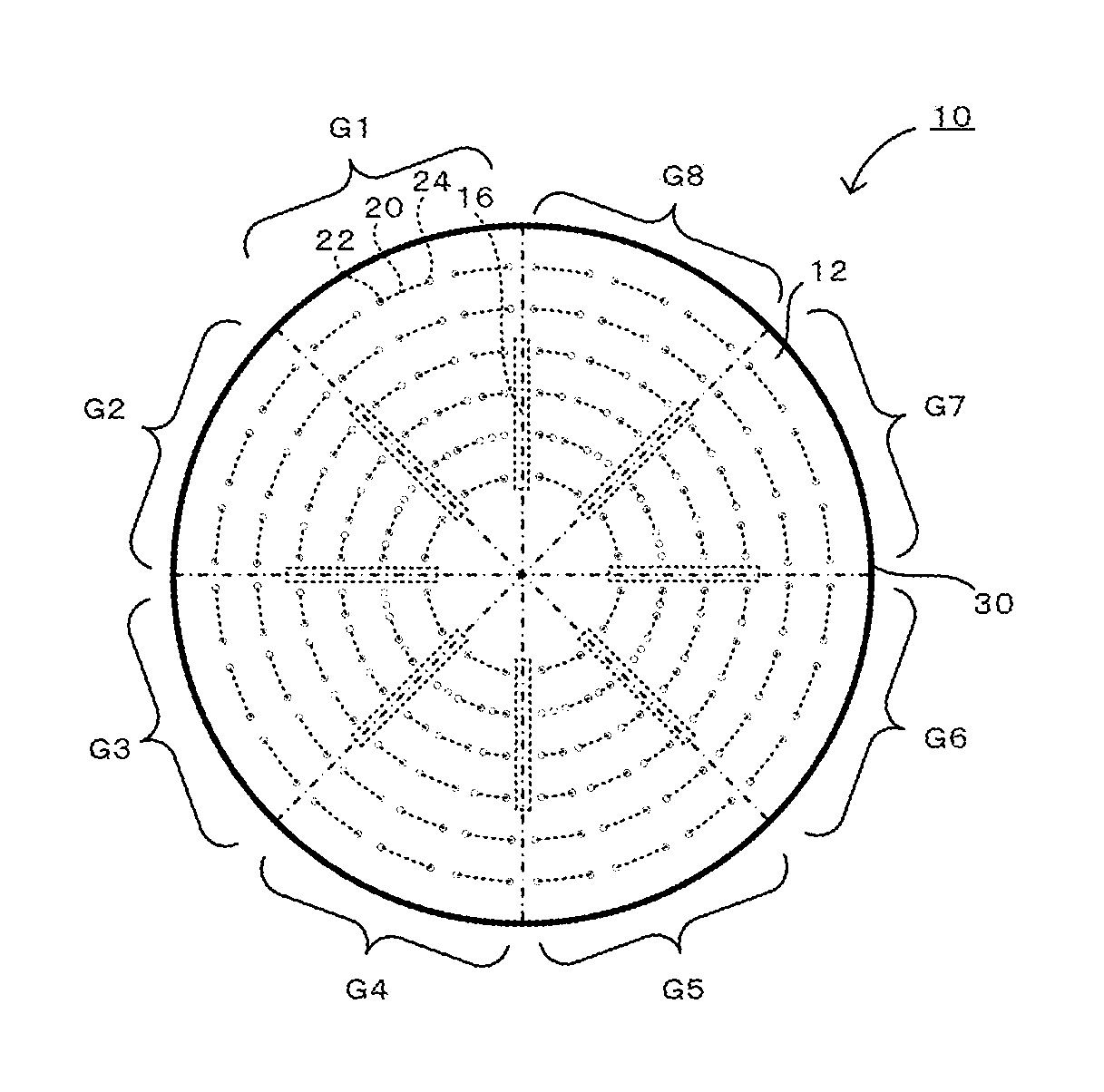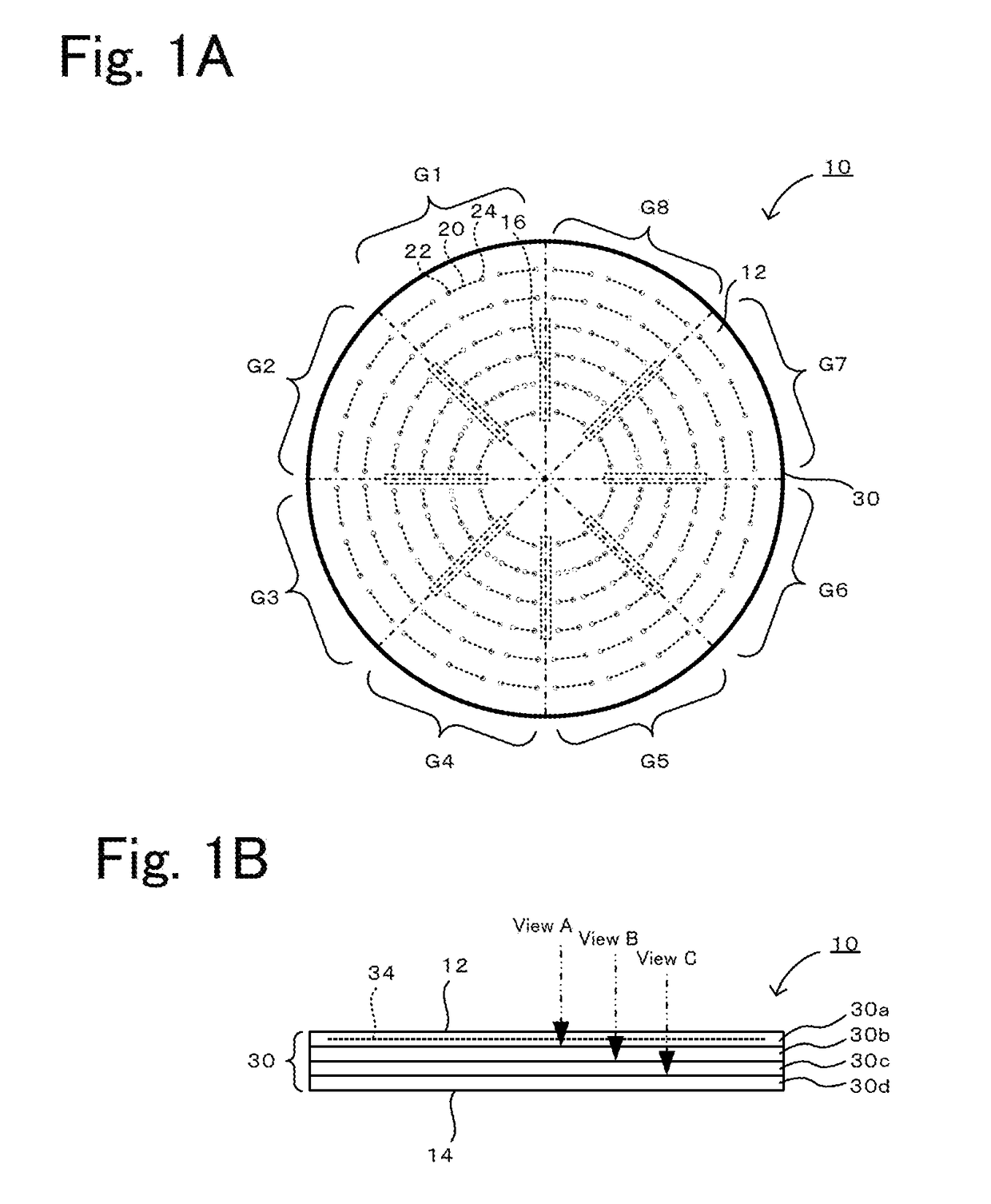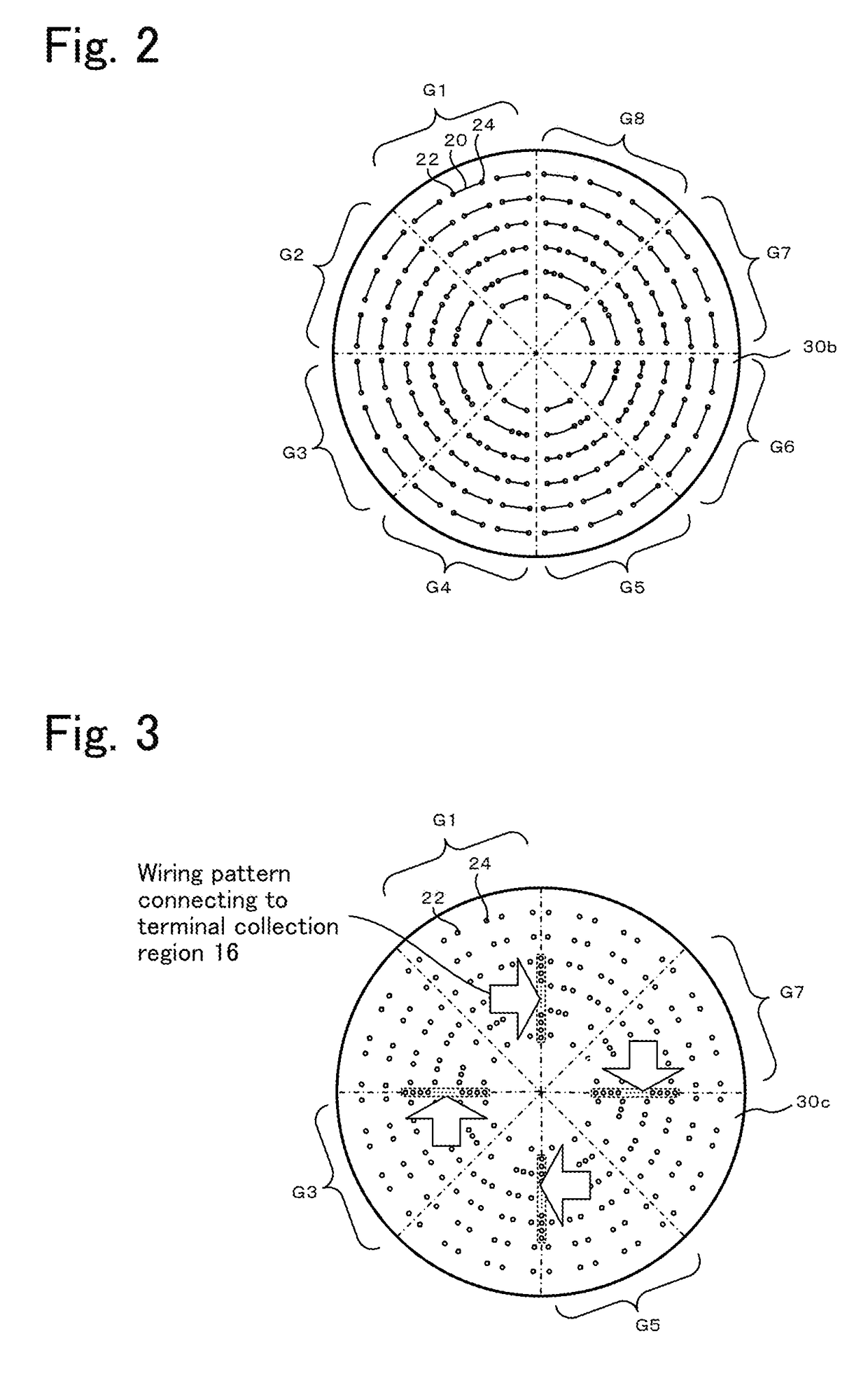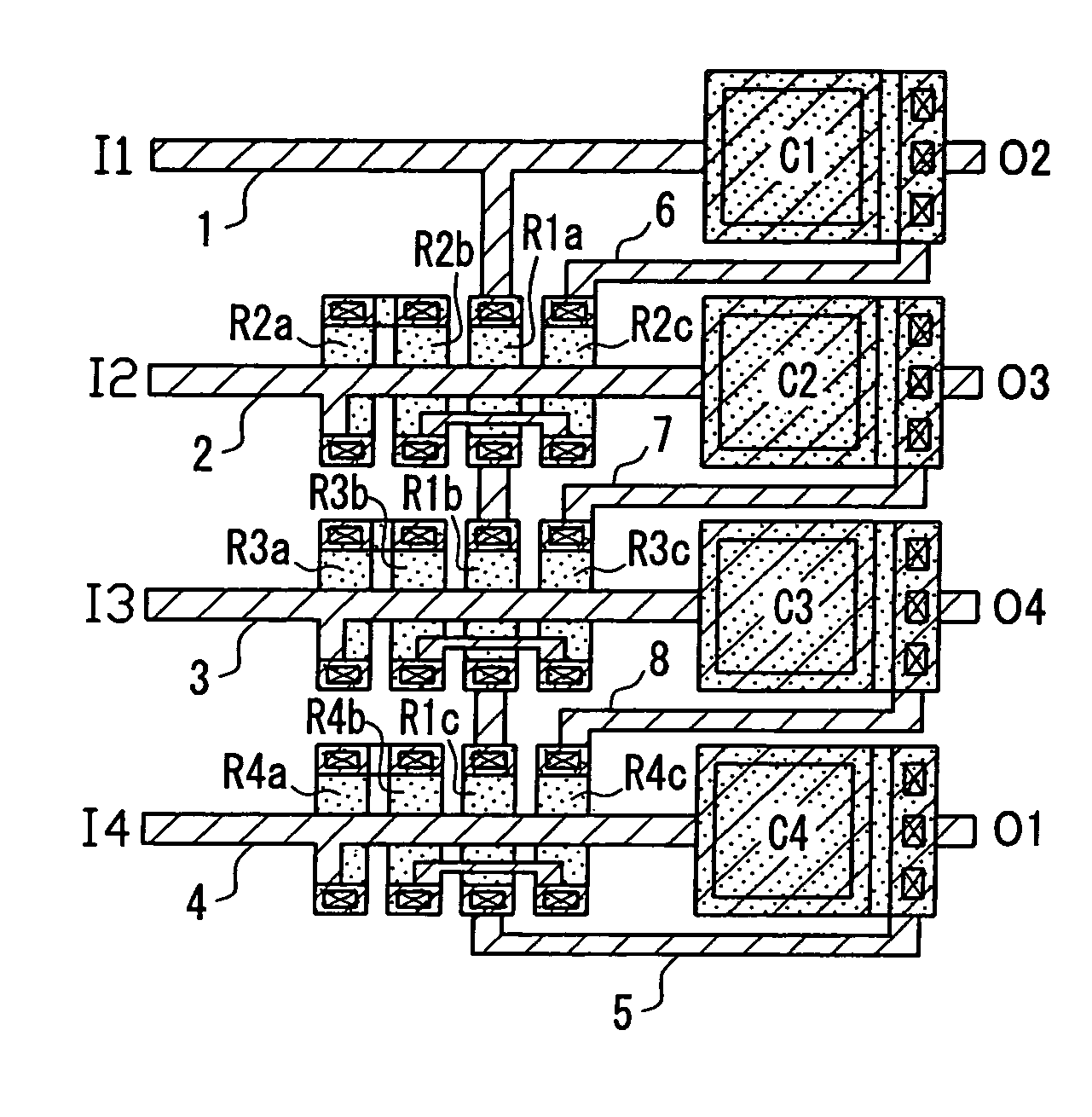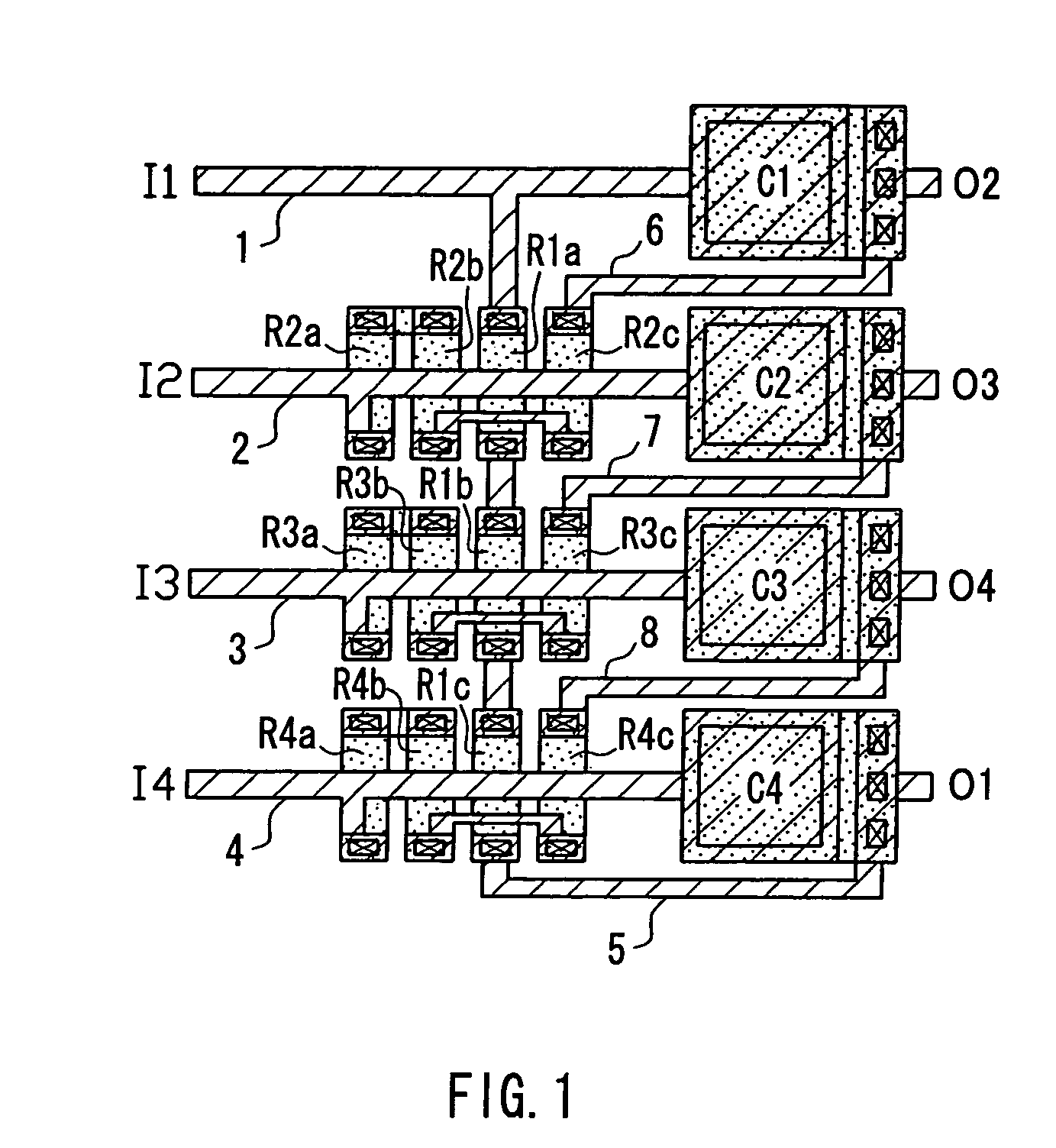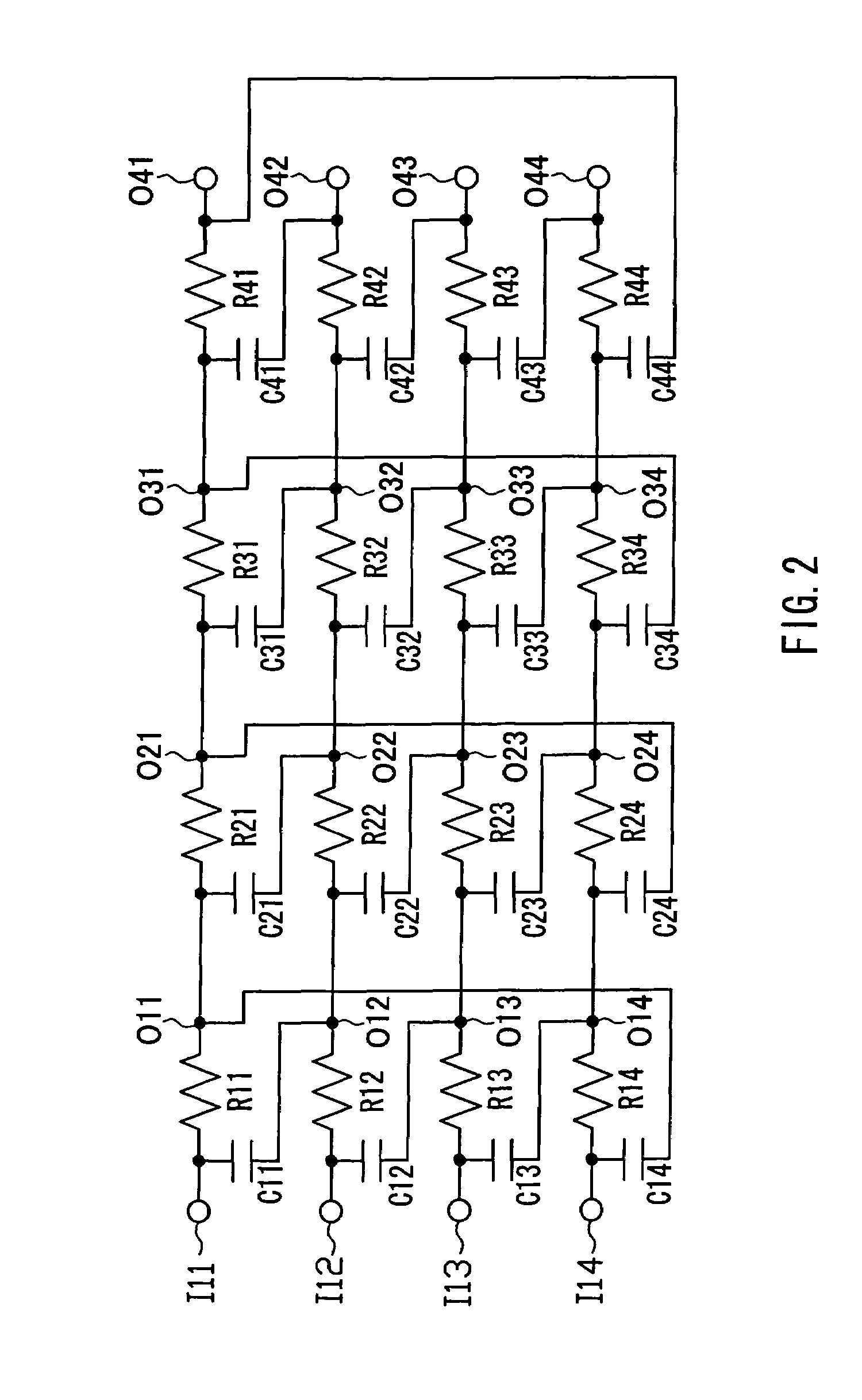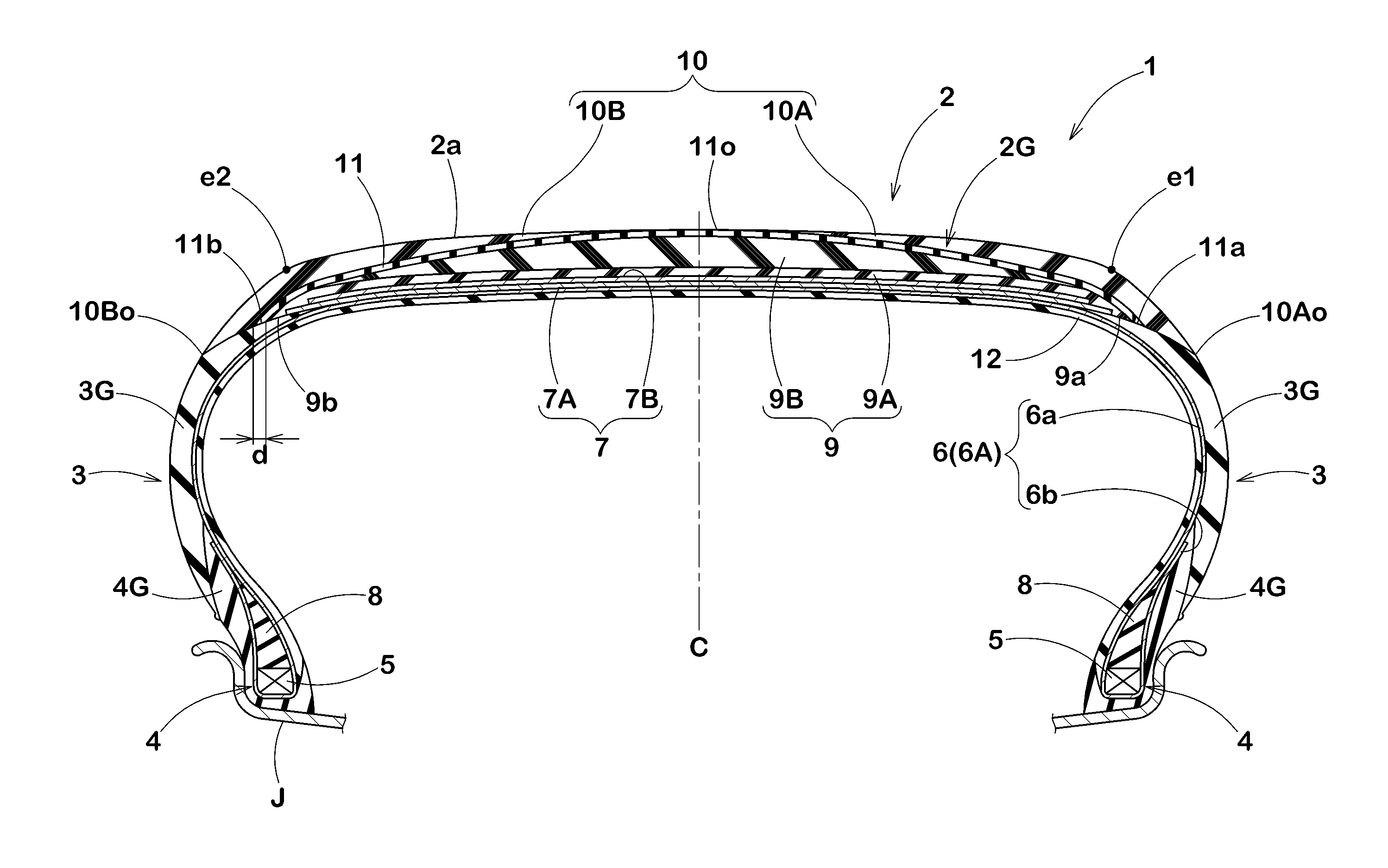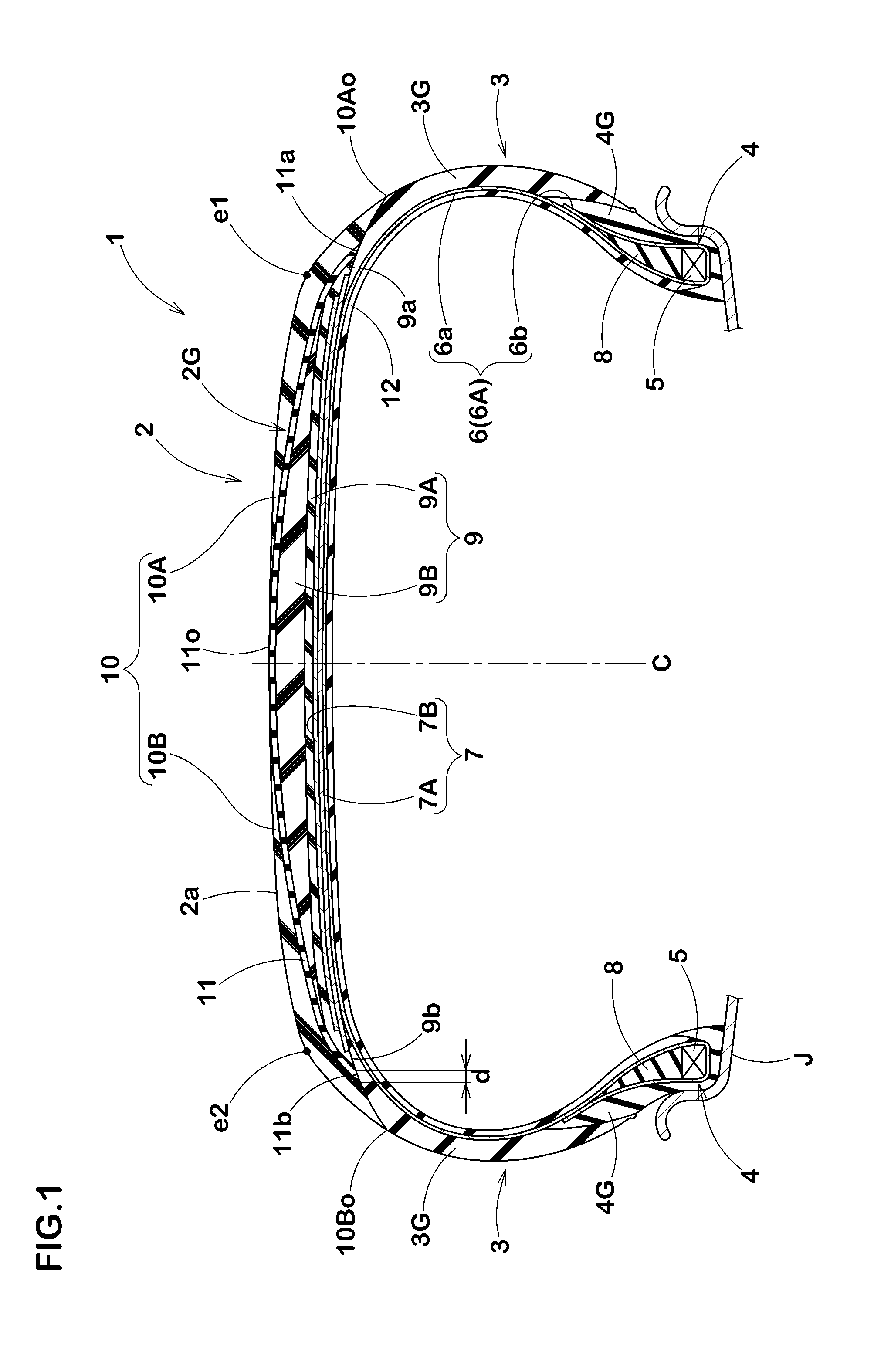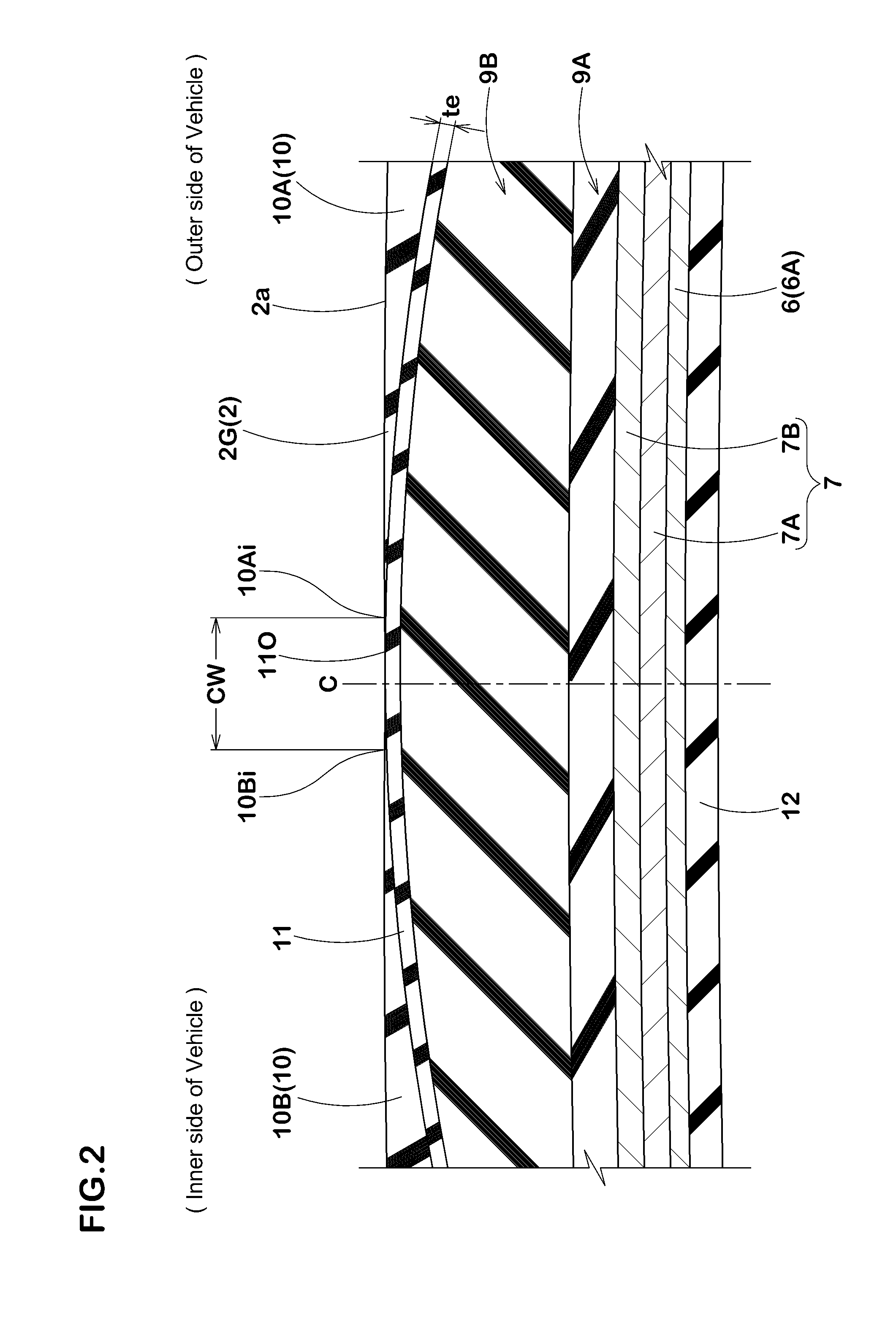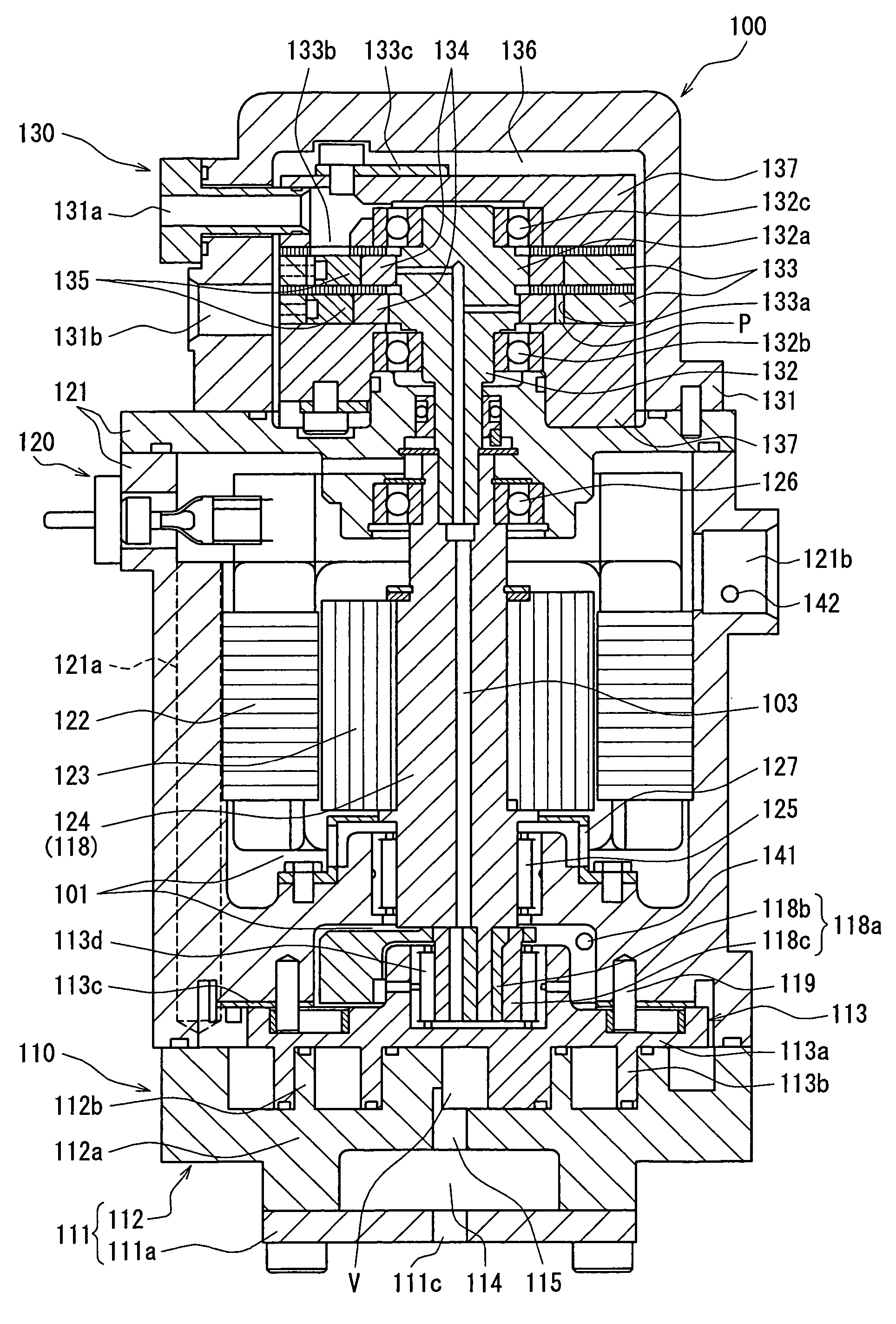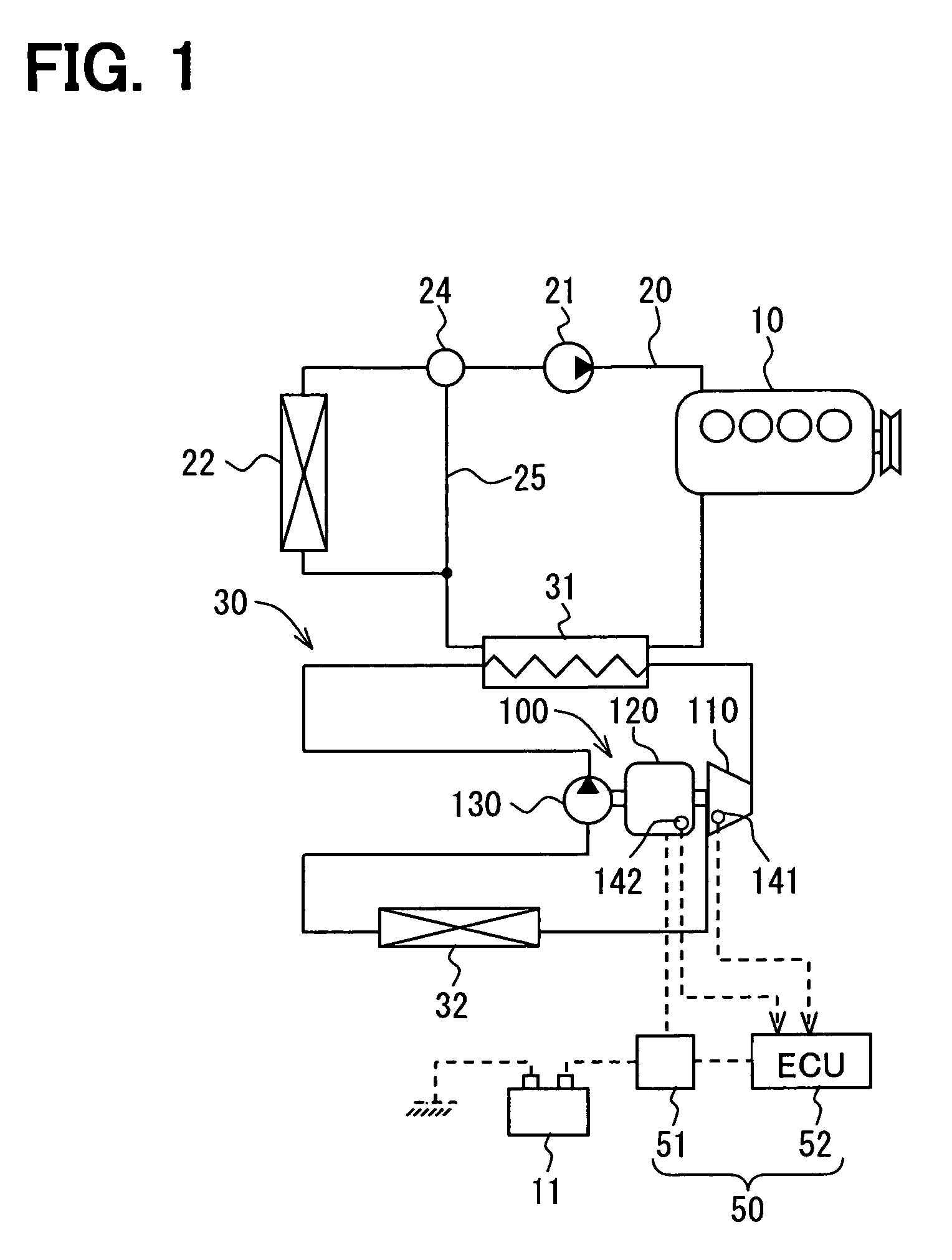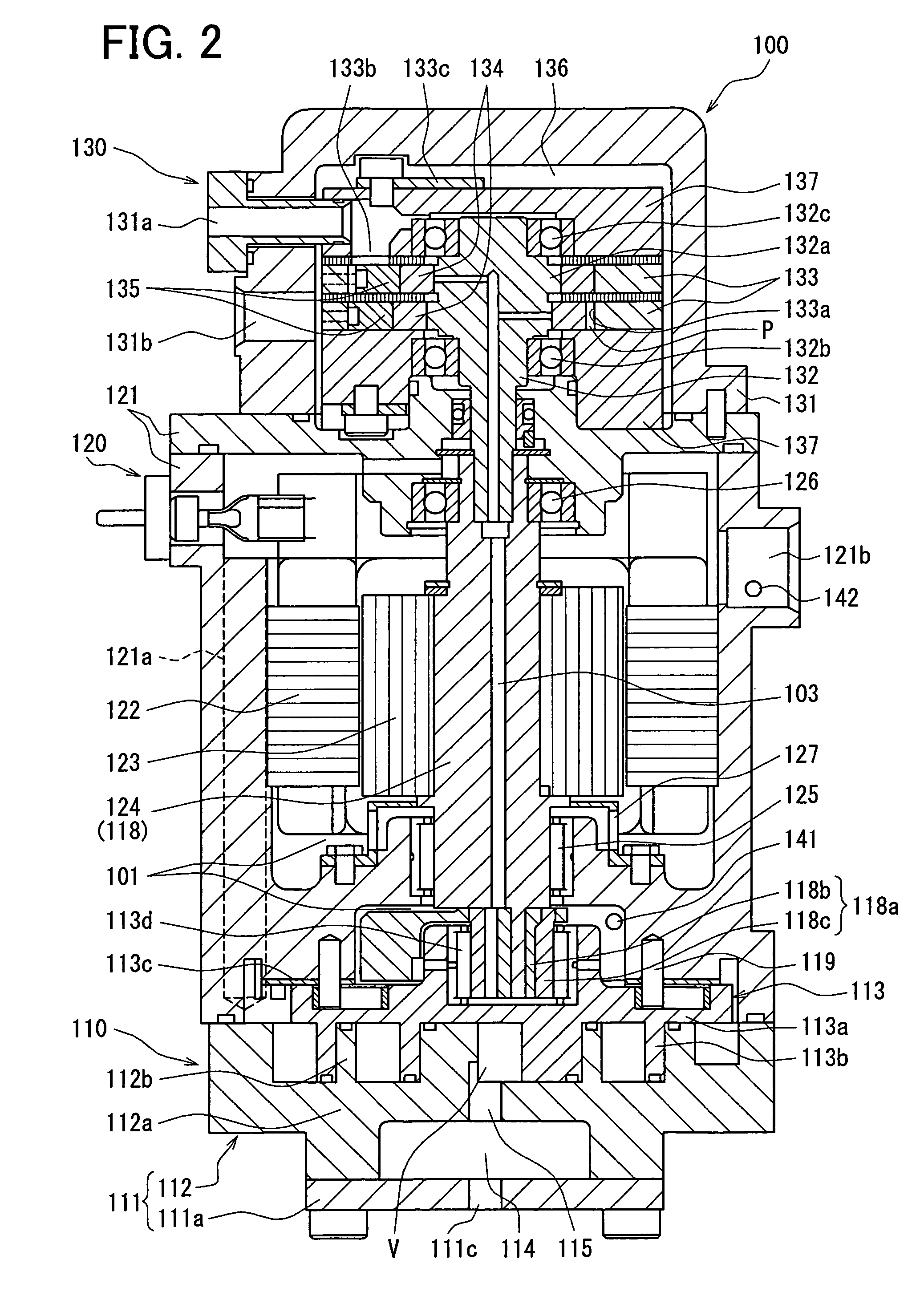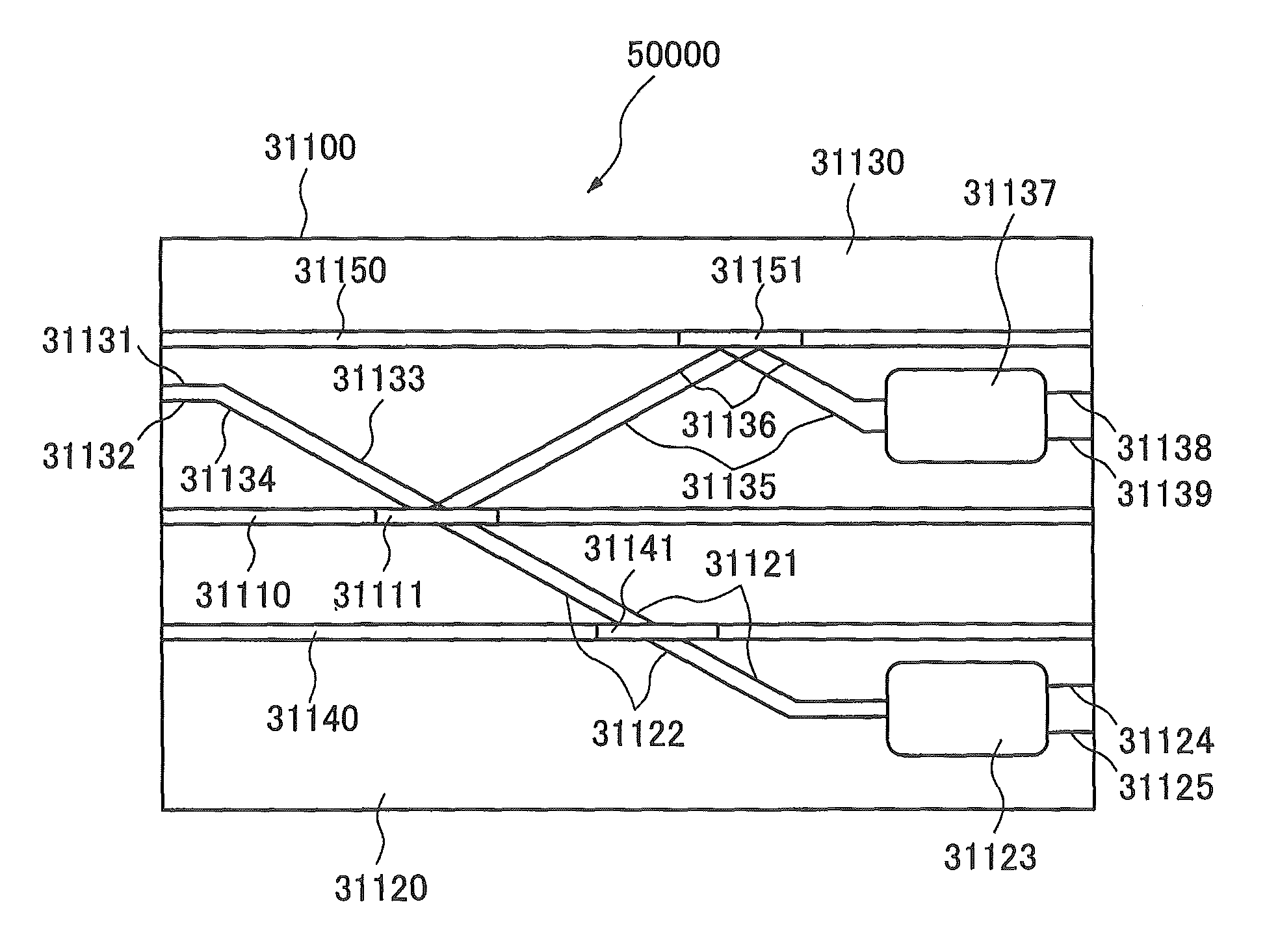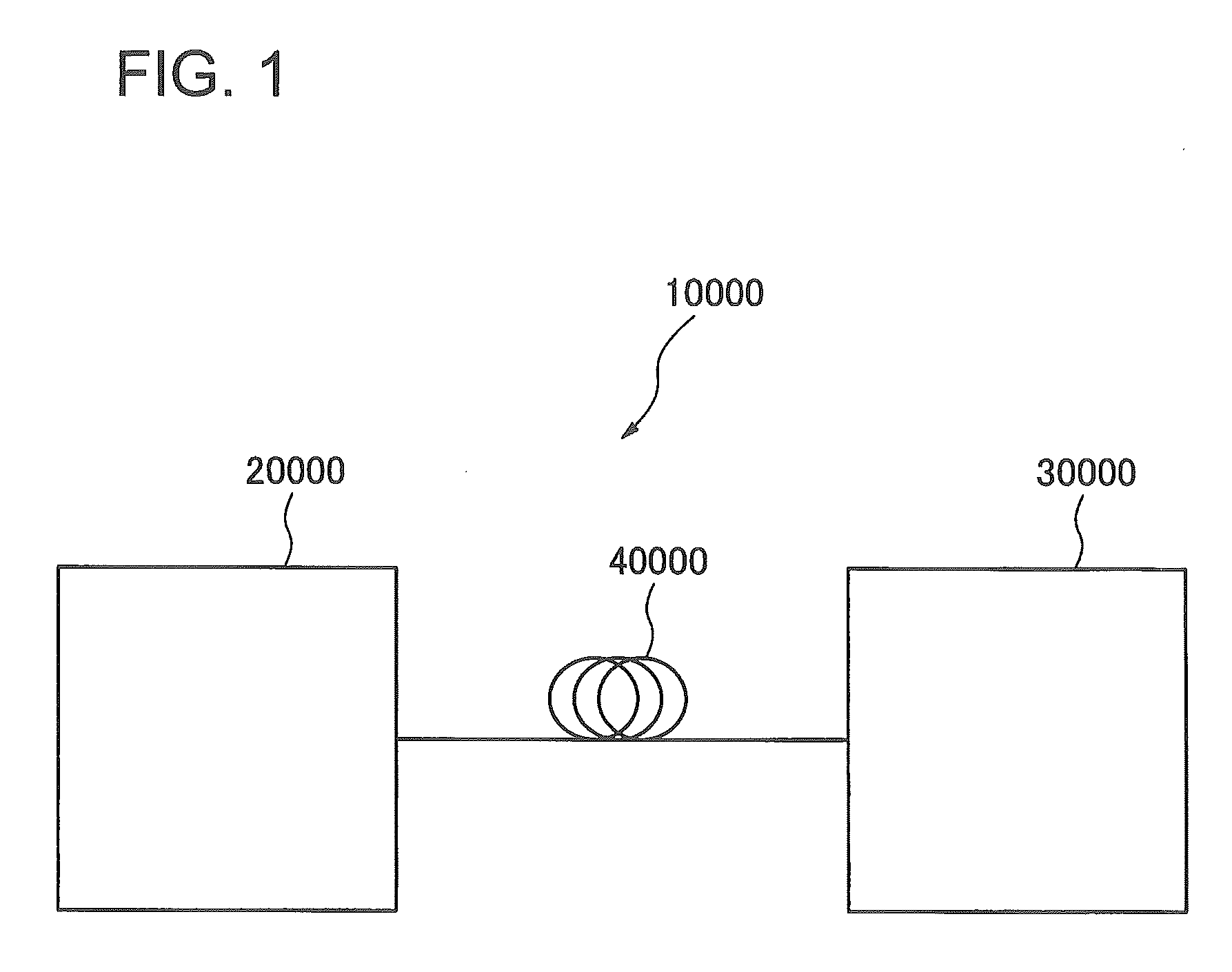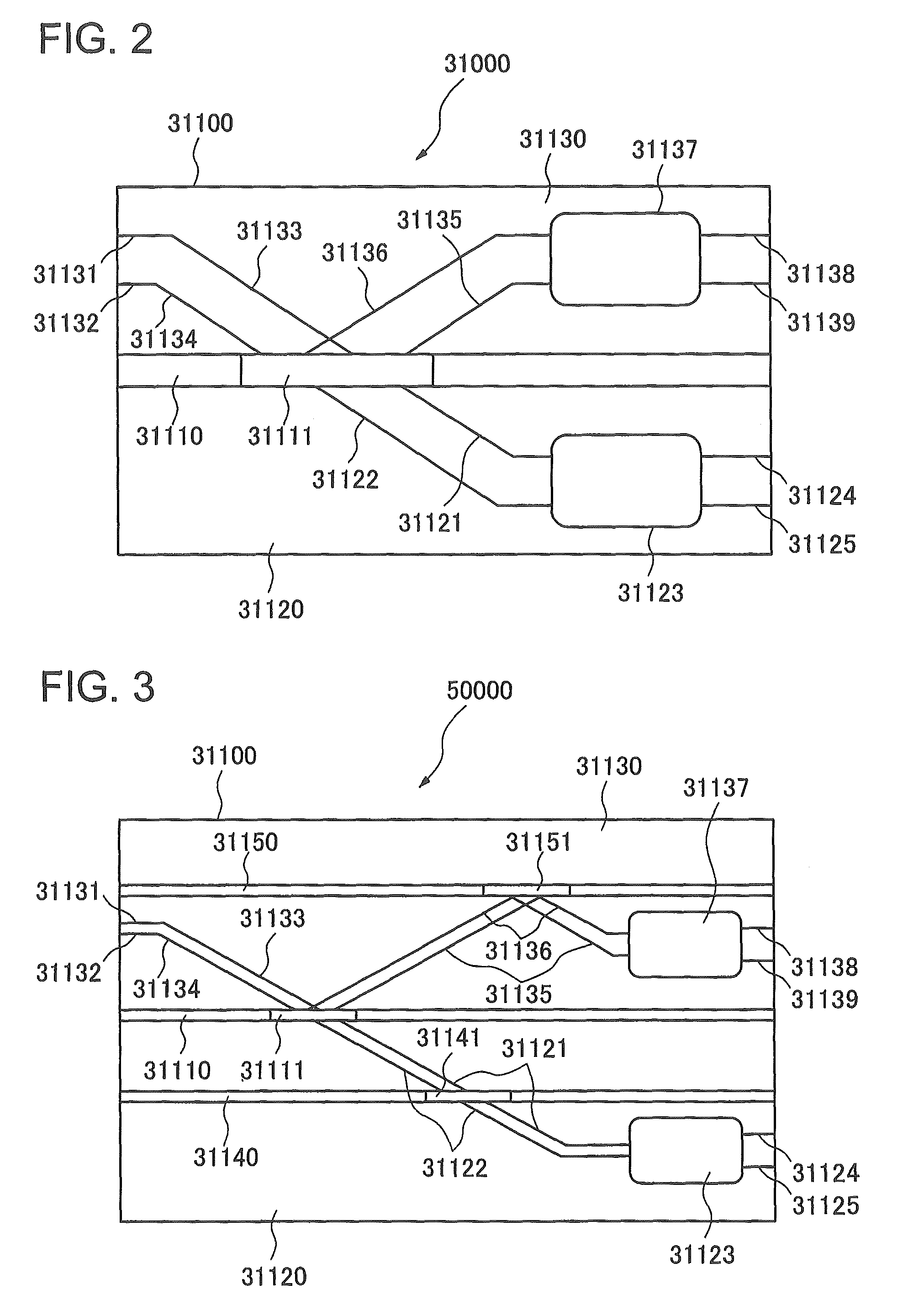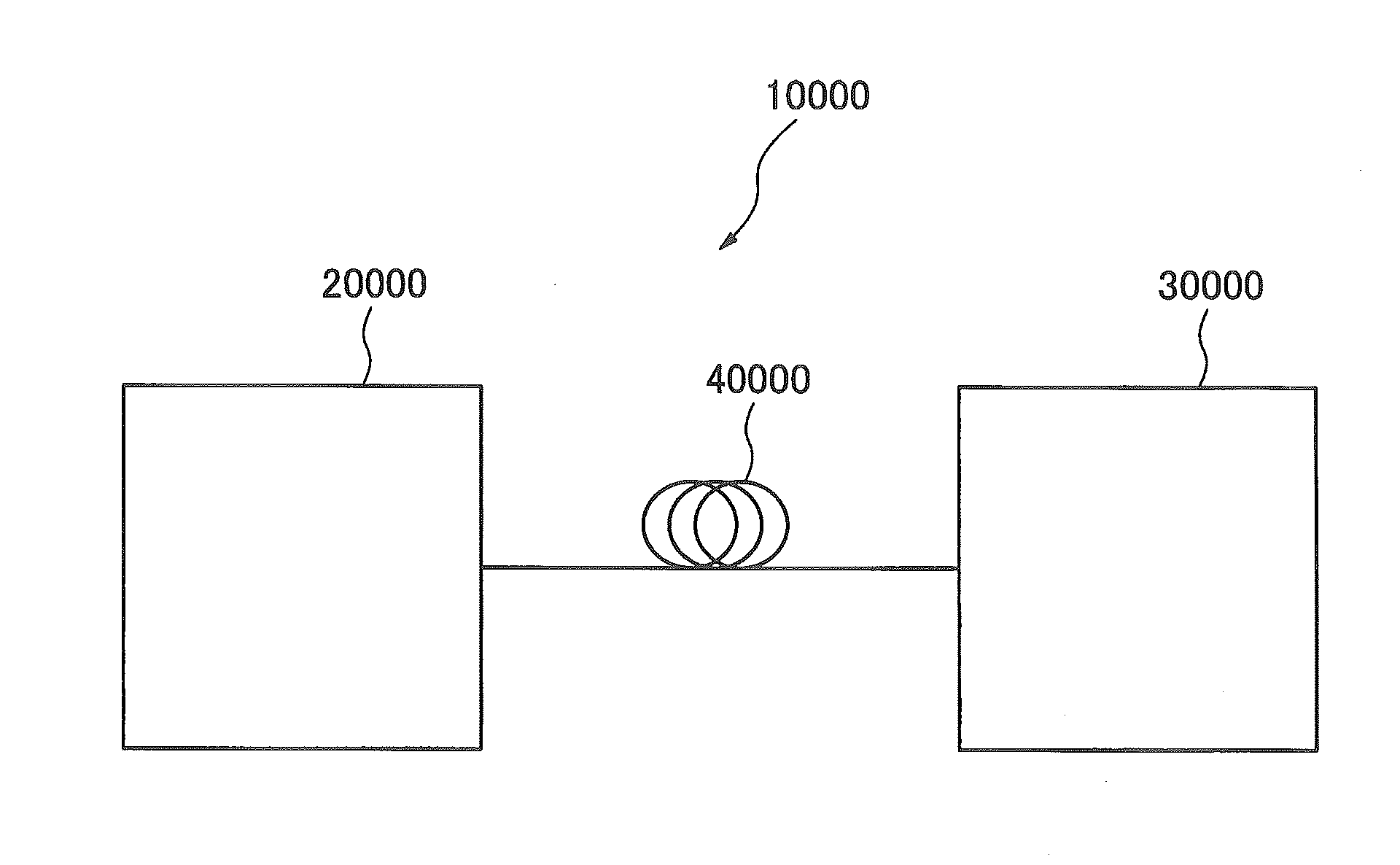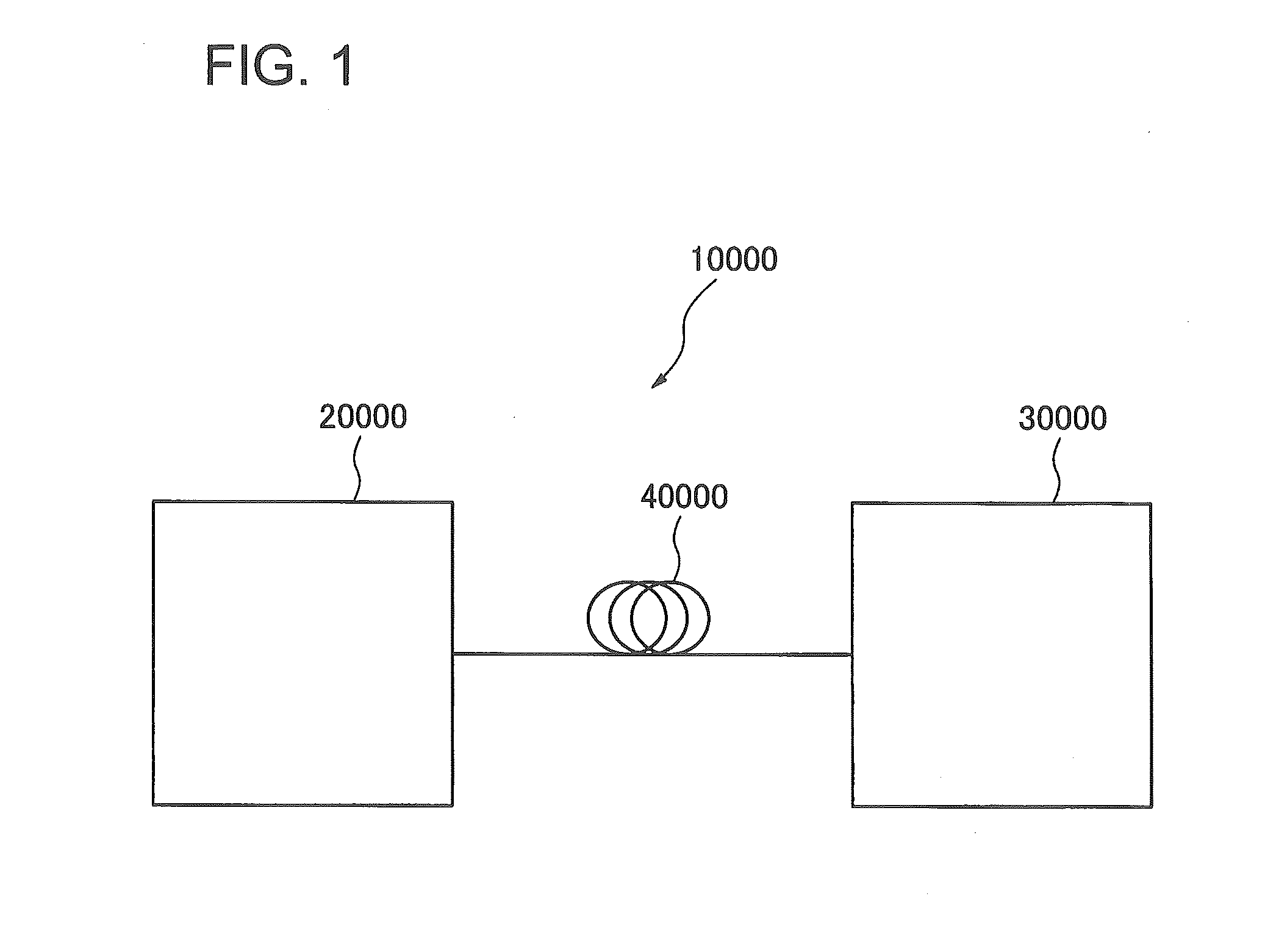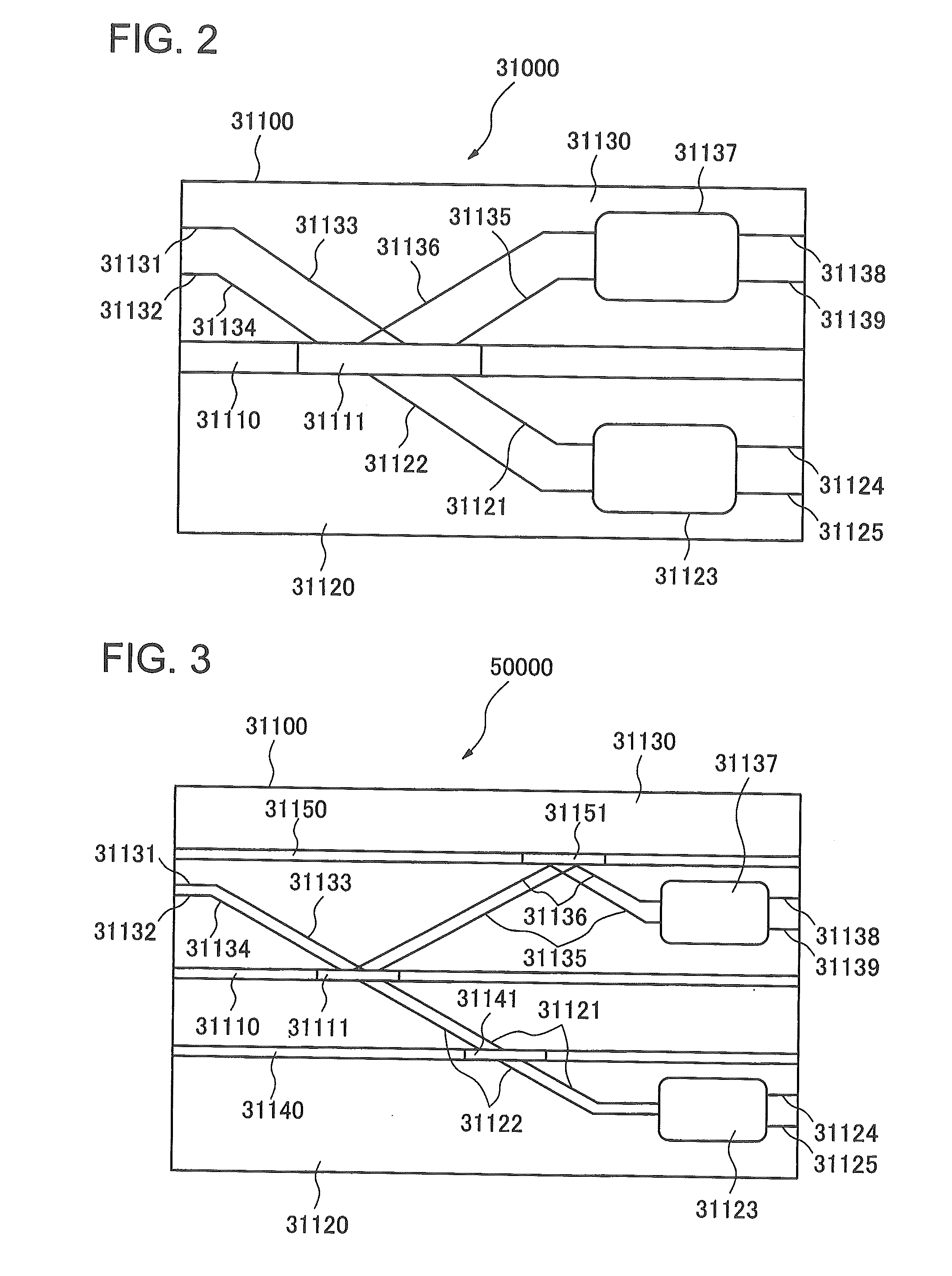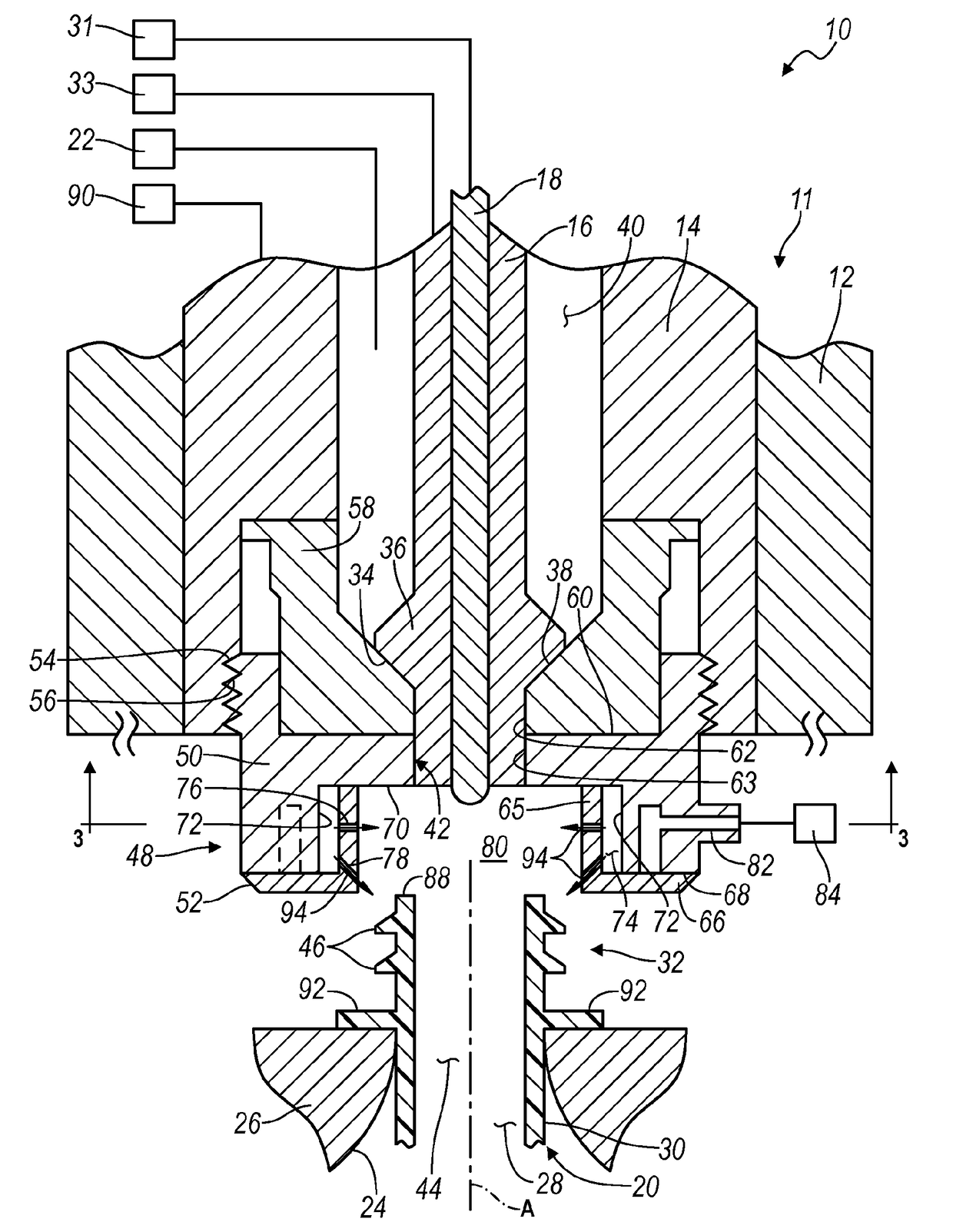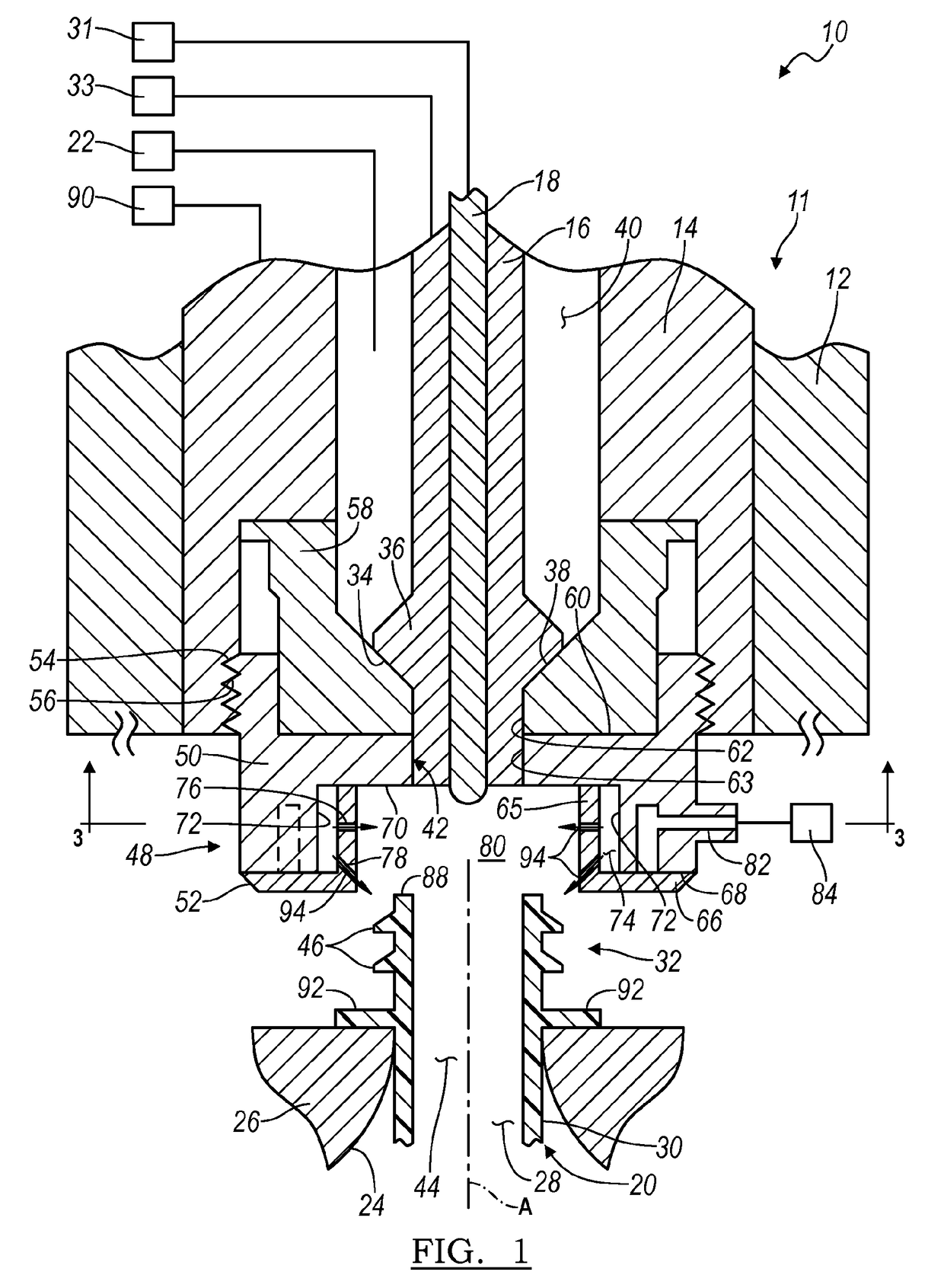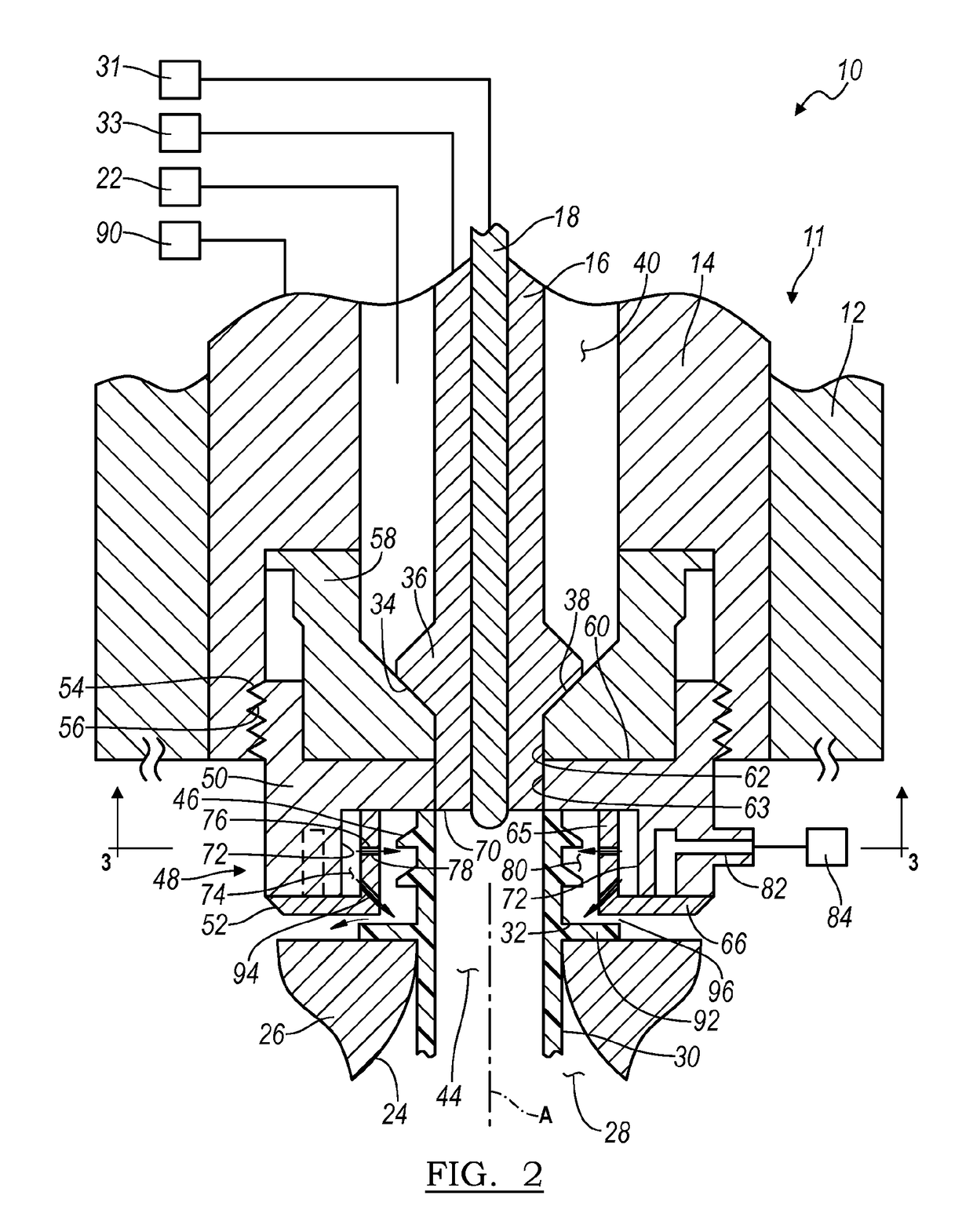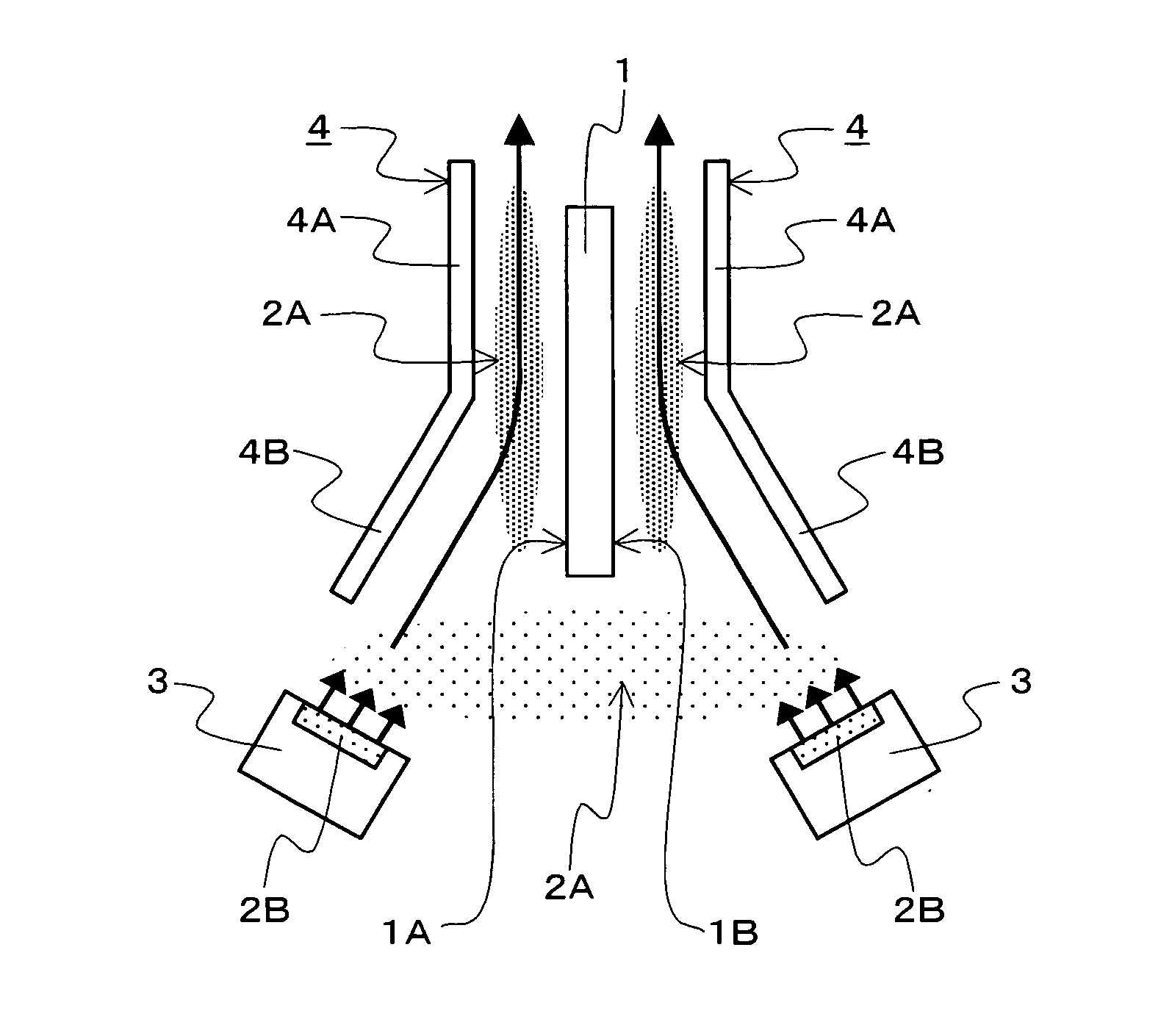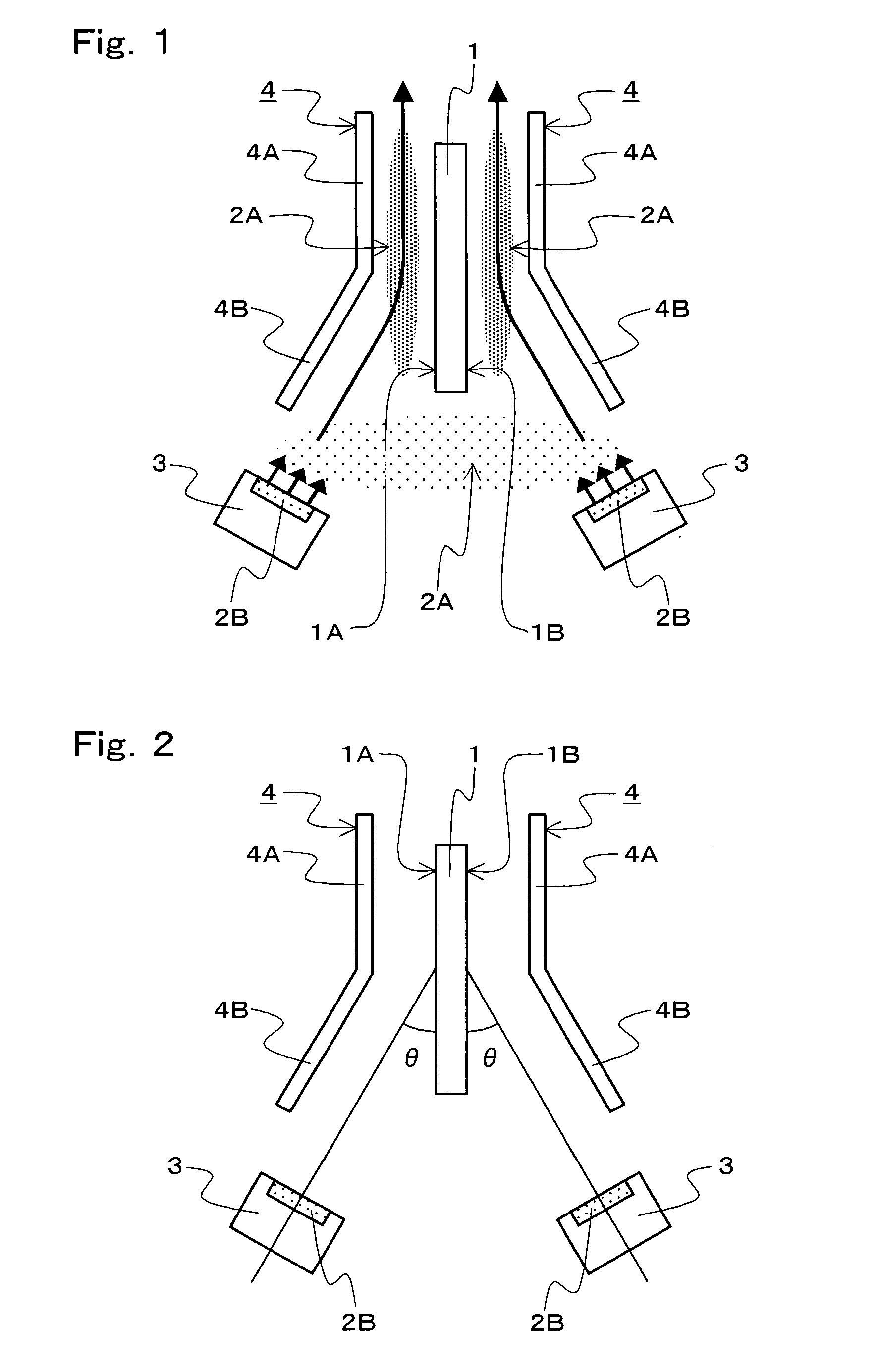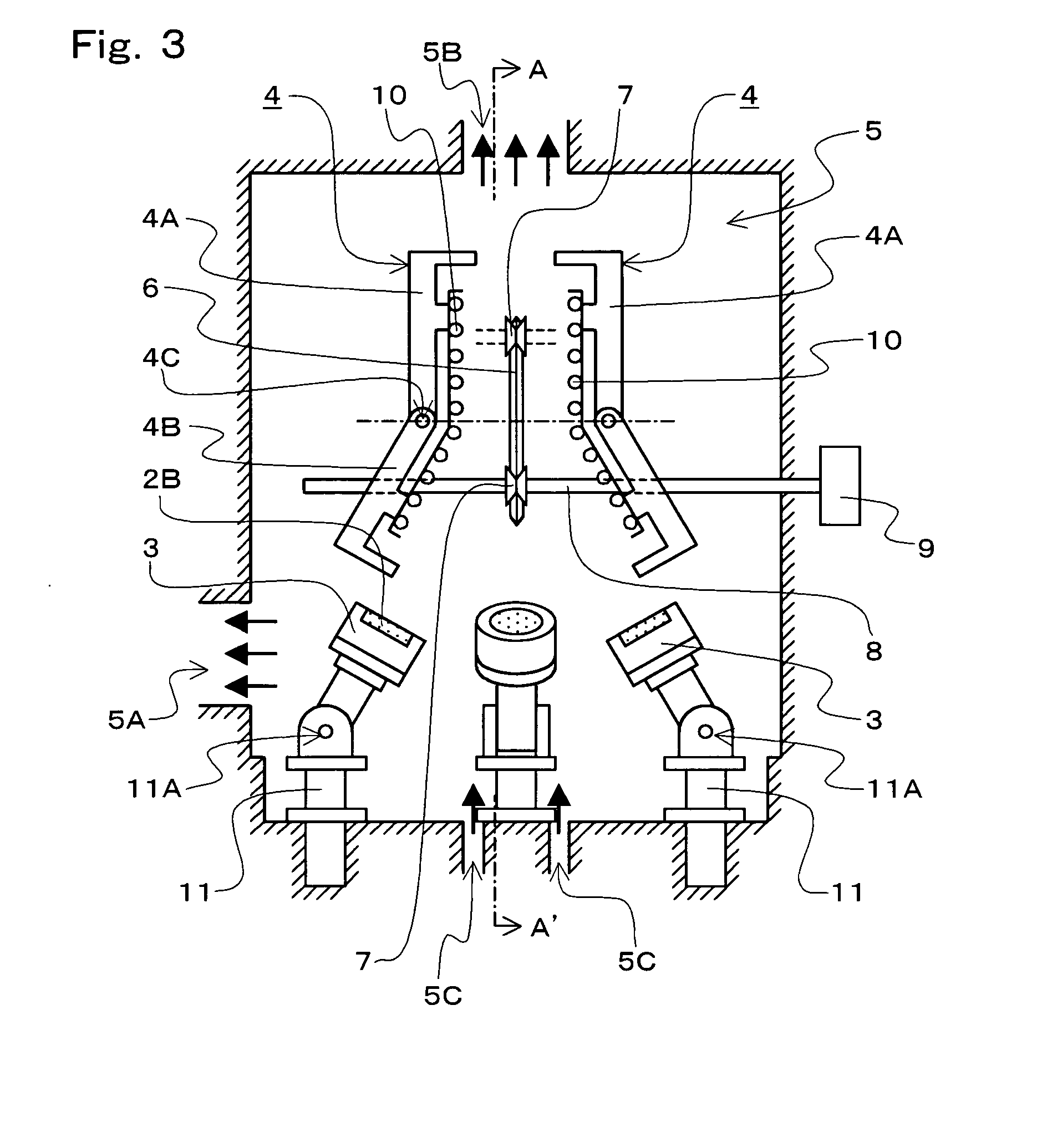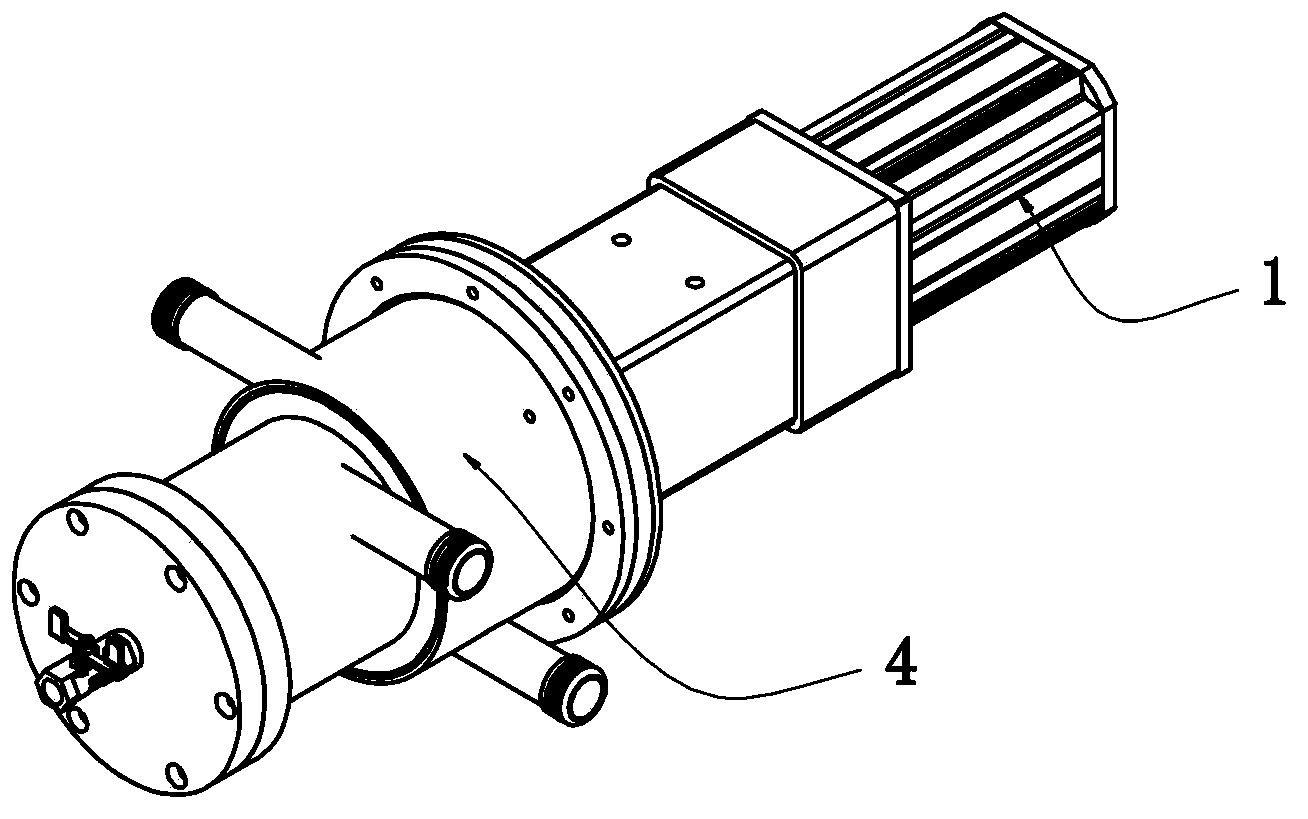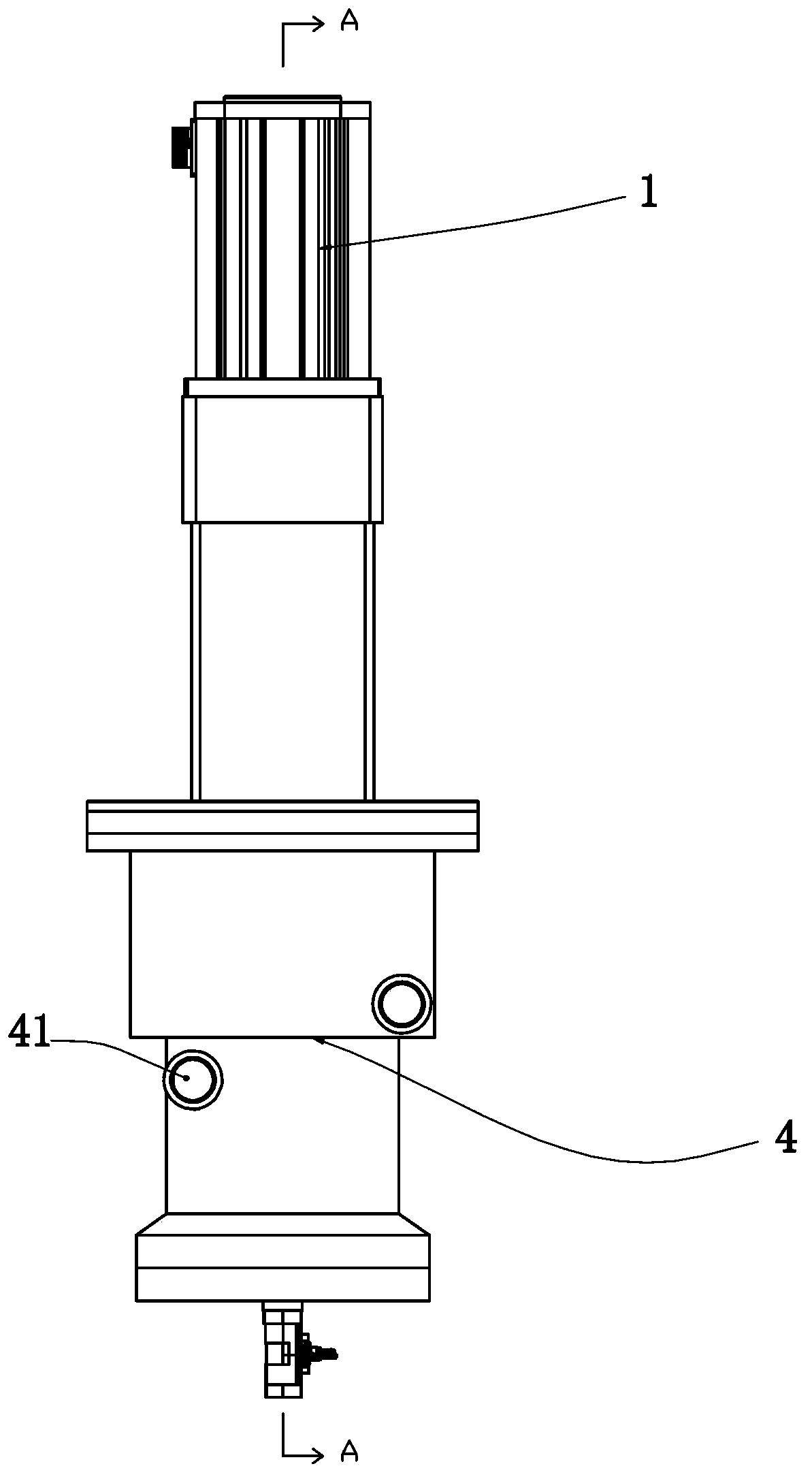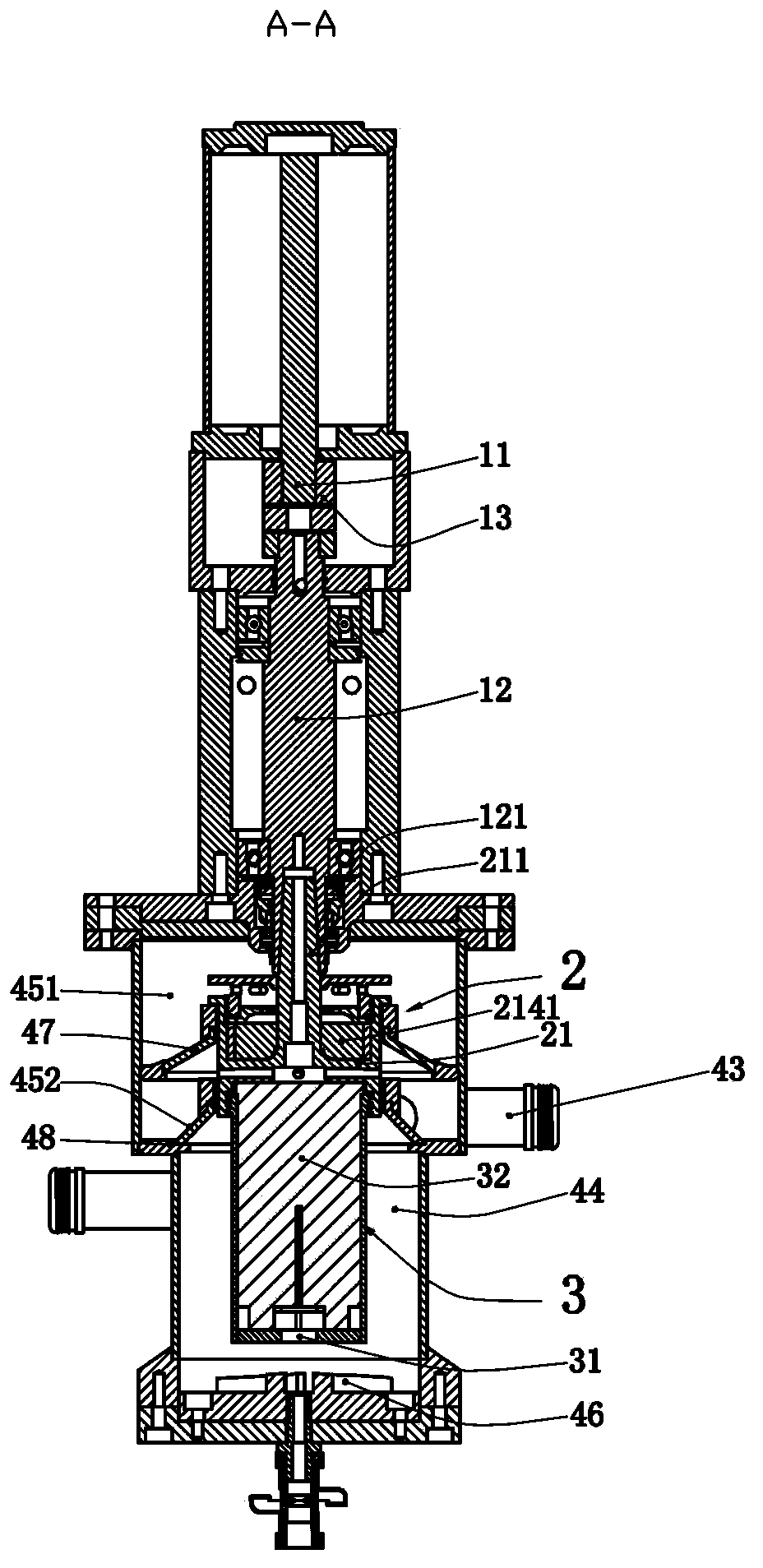Patents
Literature
44results about How to "Easy to balance" patented technology
Efficacy Topic
Property
Owner
Technical Advancement
Application Domain
Technology Topic
Technology Field Word
Patent Country/Region
Patent Type
Patent Status
Application Year
Inventor
Modular knee prosthesis
A modular prosthetic knee system used to replace the natural knee. The system includes a femoral knee prosthesis and a tibial knee prosthesis. Both prostheses are formed of modular components that are connectable in-vivo to form the prosthetic knee system. The femoral knee prosthesis includes two separate components, a lateral condyle and medial condyle; and the tibial knee prosthesis includes a multiple separate components, a medial baseplate, a lateral baseplate, a medial insert, and a lateral insert. The medial and lateral baseplate are connectable to form a complete baseplate with the medial and lateral inserts connectable to the complete baseplate.
Owner:ZIMMER TECH INC
Modular knee prosthesis
A modular prosthetic knee system used to replace the natural knee. The system includes a femoral knee prosthesis and a tibial knee prosthesis. Both prostheses are formed of modular components that are connectable in-vivo to form the prosthetic knee system. The femoral knee prosthesis includes two separate components, a lateral condyle and medial condyle; and the tibial knee prosthesis includes a multiple separate components, a medial baseplate, a lateral baseplate, a medial insert, and a lateral insert. The medial and lateral baseplate are connectable to form a complete baseplate with the medial and lateral inserts connectable to the complete baseplate.
Owner:ZIMMER TECH INC
Fluid machine for Rankine cycle
InactiveUS20070175212A1Easily equalizedSafely and surely stopLiquid degasificationEngine of arcuate-engagement typeWorking fluidGas phase
It is an object to provide a fluid machine, which is simple in structure and in which lubricating oil containing smaller amount of the working fluid is supplied to sliding portions of an expansion device. The fluid machine has the expansion device for generating a driving force by expansion of the working fluid, which contains the lubricating oil and is heated to a gas phase condition. The fluid machine further has an electric power generating device driven by the driving force of the expansion device and generating electric power. An oil pooling portion is formed in a fluid passage, through which the working fluid discharged from the expansion device flows, such that the lubricating oil contained in the working fluid is brought into contact with at least one of sliding portions of the expansion device and the electric power generating device. And a heating unit is provided to heat the working fluid in the oil pooling portion.
Owner:DENSO CORP +1
Surface light source element and image display including the same
InactiveUS20110255304A1Increase front brightnessRemarkable effectOptical light guidesReflectorsLight guideRefractive index
The present invention is objected to improve brightness in a front direction in a surface light source element including a light-guiding plate having a primary light source at least one side surface, a reflector and a prism sheet. In the surface light source element using the light-guiding plate (1) including a concave stripe (9) on a bottom surface (7) side, in order to emit light in the front direction after passing through the prism sheet of an optical sheet above the light-guiding plate (1), an average angularity R of an inclined surface of the concave stripe (9) to the bottom surface of the light-guiding plate is within the range described by the following condition,R≦[π / 2−sin−1(0.422 / nLGP)] / 2R≧sin−1(1 / nLGP)−sin−1(0.643 / nLGP)R: the average angularity (radian) to the bottom surface of the light-guiding plate (1),nLGP: a refractive index of a base material of the light guiding plate (1).
Owner:KURARAY CO LTD
Semiconductor integrated circuit having a structure for equalizing interconnection lengths and memory module provided with the semiconductor integrated circuit
InactiveUS6594167B1Easy to balanceEfficient data transferSolid-state devicesDigital storageMemory chipComputer module
A memory chip includes a plurality of pins. The plurality of pins are divided into two rows for arrangement on the opposite sides of the memory chip. All data I / O pins are arranged on one side surface (in the same row) of a package. In the case of forming a memory module, each chip is arranged such that the data I / O pins may be nearest to a center line of a module substrate parallel to a connect pin group. Thereby, interconnections between the respective memory chips and the connect pins have substantially equal lengths.
Owner:RENESAS ELECTRONICS CORP
Nonlinear precoding method for a digital broadcast channel
ActiveUS20060198459A1Improve power efficiencyEasy to balanceMultiplex communicationCode conversionPrecodingBroadcast channels
Several subscriber signals are transmitted simultaneously and at the same frequency by a central transmitter to several decentralized receivers which do not cooperate with each other, by digital message transmission in a broadcast channel. A common transmission signal, which enables an error-free individual reception, should be generated with knowledge of all subscriber signals and of the current transmission conditions, by signal preprocessing methods on the transmission side. Known nonlinear precoding methods totally suppress the interference signals, so that the channel diversity cannot be used. In the claimed precoding method, the occurring interference signals are, on the contrary, taken into account. On the basis of a modulo arithmetic calculation, the transmission channel is not totally equalized, but virtually divided, so that the transmission of the subscriber signals is continued periodically; the signals are selected according to the minimal transmission power and pre-equalized, in a linear manner, and the residual interferences, still remaining between the subscriber signals, may assume special values from a preset set of values. The set of values is selected, so that the interference signals of the other subscribers are also merely reflected in the otherwise already existing periodic continuation and can be suppressed or used as required by a modulo decision, on the reception side.
Owner:SIEMENS AG
Power supply unit
InactiveUS20090224732A1Low costImprove power efficiencyDc-dc conversionPower supply linesInductorEngineering
To provide a power supply unit capable of realizing a multiphase power supply at low cost. For example, each of a plurality of semiconductor devices DEV[1]-DEV[n] comprises a trigger input terminal TRG_IN, a trigger output terminal TRG_OUT, and a timer circuit TM that delays a pulse signal input from TRG_IN and outputs it to TRG_OUT. DEV[1]-DEV[n] are mutually coupled in a ring shape by its own TRG_IN being coupled to TRG_OUT of one semiconductor device other than itself. Each of DEV[1]-DEV[n] performs switching operation by using the pulse signal from TRG_IN as a starting point, and feeds a current into an inductor L corresponding to itself. Moreover, DEV[1] generates the above-described pulse signal only once during startup by a start trigger terminal ST being set to a ground voltage GND, for example.
Owner:RENESAS ELECTRONICS CORP
Semiconductor device
InactiveUS20080237848A1Easily equalizedReduce the impactSemiconductor/solid-state device detailsSolid-state devicesCapacitanceMemory chip
There is provided a semiconductor device which makes equalization of wirings between address system chips easy and reduce the influence of crosstalk noise and capacitive coupling noise among data system wirings for connecting the chips. There are mounted, on a module board, a plurality of stacked memory chips which a data processor chip simultaneously accesses. Address system bonding pads to which a plurality of memory chips correspond are commonly coupled by a wire to a bonding lead at one end of the module board wiring whose other end is coupled by a wire to an address system bonding pads of the data processor. Data system bonding pads of the data processor chip are individually coupled to data system bonding pads of the memory chip. With respect to an arrangement of the plurality of data system bonding pads of the data processor chip, an arrangement of the data system bonding pads to which the memory chip, coupled by the data system wiring, corresponds is made such that memory chips are disposed in an alternating sequence.
Owner:RENESAS ELECTRONICS CORP
Channel estimating method for high-speed moving orthogonal frequency division multiplying system
InactiveCN1710894AEqualization process is simpleReduce computational complexityBaseband system detailsSubcarrierMoving speed
The method includes steps: at sending end, pilot carrier data is inserted into time and frequency domains at same time; pilot carrier and data to be transmitted constitute data frame; at receiving end, pilot carrier and data in a frame are separated; pilot carrier data are sent to channel estimation part to calculate out each channel amplitude and phase at relevant position of carrier wave; thus, channel coefficients of center frequency point at sub carrier waves corresponding to each inserted position of pilot carrier are picked out; linear interpolation in frequency domain is carried out for channel coefficients; meanwhile linear interpolation in time domain is also carried out coefficients estimated so as to obtain whole matrix of channel coefficient. Equilibrium of receiving system in frequency domain is realize from received effective data divided by value of channel coefficient. Advantages are: low complexity, suitable to high moving speed and large multi paths time delay.
Owner:SHANGHAI JIAO TONG UNIV
Baby walker/walking safety belt apparatus
Disclosed is a portable device to help adults hold and support their infants without bending their backs. This safety device is a semi-circular belt-shaped fabric product that is preferably well-padded with soft durable materials. It is primarily used for training and assisting infants to walk during the early development stages and beyond. It also functions to minimize back strain on the child caregiver by eliminating back bending when holding a child who is a significantly different height. The revolutionary technical design allows this device to be simple to make and simple to use, with the advantages of long-term usage and multiple functions, such as securing an infant onto a chair. All of these features are lacking in similar products in the prior art.
Owner:WU TIANYUN
Dual Mode Earphone With Acoustic Equalization
InactiveUS20100008528A1Improve audio qualitySimple acoustic equalizationFrequency/directions obtaining arrangementsLoudspeaker spatial/constructional arrangementsDual modeEngineering
In one embodiment, a dual-mode earphone is provided, comprising a first earbud including a speaker with a diaphragm and at least one acoustic port in front of the diaphragm, and a cap in front of the speaker. The speaker or the cap is configured to move relative to the other for opening and closing the acoustic port in one embodiment and a movable seal is provided in another embodiment. The earphone further includes a second earbud housing operably coupled to the first earbud opposite the speaker. A method for providing acoustic equalization in a dual-mode earphone is also disclosed.
Owner:PLANTRONICS
Dual mode earphone with acoustic equalization
InactiveUS8111853B2Improve audio qualityEasy to balanceFrequency/directions obtaining arrangementsLoudspeaker spatial/constructional arrangementsDual modeEngineering
In one embodiment, a dual-mode earphone is provided, comprising a first earbud including a speaker with a diaphragm and at least one acoustic port in front of the diaphragm, and a cap in front of the speaker. The speaker or the cap is configured to move relative to the other for opening and closing the acoustic port in one embodiment and a movable seal is provided in another embodiment. The earphone further includes a second earbud housing operably coupled to the first earbud opposite the speaker. A method for providing acoustic equalization in a dual-mode earphone is also disclosed.
Owner:PLANTRONICS
Apparatus for channel equalization using multi antenna and method thereof
InactiveUS20060034362A1Easily equalizedIncreased signal noiseMultiple-port networksSpatial transmit diversitySignal-to-noise ratio (imaging)Equalization
The present invention provides an apparatus for channel equalization and method thereof, by which a digital signal received via a plurality of antennas is equalized. The present invention includes receiving digital transmission signals using a plurality of antennas, respectively, initializing equalizer coefficients and equalizing the received signals respectively, adding the equalized signals together, predicting a noise amplified in the equalizing step, and generating a final output signal by removing the predicted noise from a value resulting from adding the equalized signals together. Therefore, the present invention performs equalization using a plurality of antennas, thereby enhancing the signal to noise ratio of the final output and facilitating the equalization of the severely distorted channel.
Owner:LG ELECTRONICS INC
Gas distribution device
ActiveUS6983622B2Easy to balanceOvercome disadvantagesCompressorRotary/oscillating piston combinations for elastic fluidsRefrigeration compressorProduct gas
Device for distributing suction gas for a parallel compressor installation, said installation having at least two refrigeration compressors, at least one oil level equalization tube providing a communication between the oil pans provided in the bodies of the compressors, at least one suction gas distribution device comprising an essentially straight distribution tube, and branch tubes. The branch tubes have at least one portion forming an angle of between 55° and 65° with the axis of the distribution tube. The present invention uses a special geometry for equalizing the pressures in the oil pans of each compressor and thus using simple equalization channels.
Owner:DANFOSS COMML COMPRESSORS +1
Gas distribution device
ActiveUS20050229627A1Simple equalizationEasy to balanceCompressorRotary/oscillating piston combinations for elastic fluidsEngineeringSpecial geometry
Device for distributing suction gas for a parallel compressor installation, said installation having at least two refrigeration compressors, at least one oil level equalization tube providing a communication between the oil pans provided in the bodies of the compressors, at least one suction gas distribution device comprising an essentially straight distribution tube, and branch tubes. The branch tubes have at least one portion forming an angle of between 55° and 65° with the axis of the distribution tube. The present invention uses a special geometry for equalizing the pressures in the oil pans of each compressor and thus using simple equalization channels.
Owner:DANFOSS COMML COMPRESSORS +1
Nonlinear precoding method for a digital broadcast channel
ActiveUS8130854B2Improve power efficiencyImprove transmission qualityMultiplex communicationCode conversionPrecodingBroadcast channels
Owner:SIEMENS AG
Power supply unit
InactiveUS7777462B2Improve power efficiencyReduce ripple voltageDc-dc conversionPower supply linesInductorTimer
Owner:RENESAS ELECTRONICS CORP
Apparatus for channel equalization using multi antenna and method thereof
InactiveUS7466750B2Easy to balanceEnhanced signalMultiple-port networksDelay line applicationsSignal-to-noise ratio (imaging)Equalization
The present invention provides an apparatus for channel equalization and method thereof, by which a digital signal received via a plurality of antennas is equalized. The present invention includes receiving digital transmission signals using a plurality of antennas, respectively, initializing equalizer coefficients and equalizing the received signals respectively, adding the equalized signals together, predicting a noise amplified in the equalizing step, and generating a final output signal by removing the predicted noise from a value resulting from adding the equalized signals together. Therefore, the present invention performs equalization using a plurality of antennas, thereby enhancing the signal to noise ratio of the final output and facilitating the equalization of the severely distorted channel.
Owner:LG ELECTRONICS INC
Passive polyphase filter
InactiveUS20060244551A1Reduce impactSimple componentsMultiple-port networksTransmissionEngineeringCapacitor
Four input nodes I1-I4 for inputting 4-phase signals, four resistors R1-R4, four capacitors C1-C4, and four output nodes O1-O4 for outputting 4-phase signals are provided. The resistors and the capacitors are connected alternately in a loop, and the input nodes and output nodes are connected alternately to the respective nodes between the resistors and the capacitors sequentially. Each of the four resistors is composed of a group of three or more partial resistors, and three groups of the partial resistors R2a-R2c, R3a-R3c and R4a-R4c are collected respectively and arranged in the same attitude, while the partial resistors R1a-R1c of the remaining group are distributed into the other groups and arranged in the same line the same attitude as the partial resistors of each of the other groups. The regions of the thus collected groups are arranged in one direction. By simplifying the layout of the components and the shape of the wirings, influences on the characteristics by the parasitic elements are reduced, and complication in the layout and wirings can be suppressed even when using plural stages.
Owner:COLLABO INNOVATIONS INC
Power servo-loop, an RF signal amplifier circuit, and an RF signal transmitter fitted with such a circuit
InactiveUS20030155971A1Low costEasy to integrateNegative-feedback-circuit arrangementsGain controlCouplingSignal amplifier
The present invention relates to a power servo-loop in particular for controlling a power amplifier, the loop comprising a detection circuit (100) having coupling means (1) for taking off RF signals, and a detection unit (400) for delivering a detection signal (Vdet) partially representative of a first RF signal taken off by the coupling means. The detection circuit of the invention comprises, between the coupling means and the detection unit, detection control means (21, 22, 4) for substantially eliminating an "interfering" second RF signal also taken off by the coupling means, such that the detection signal is entirely representative of the first RF signal.
Owner:DRNC HLDG INC
Semiconductor device
InactiveUS7750464B2Reduce noiseReduce impactSemiconductor/solid-state device detailsSolid-state devicesCapacitanceMemory chip
There is provided a semiconductor device which makes equalization of wirings between address system chips easy and reduce the influence of crosstalk noise and capacitive coupling noise among data system wirings for connecting the chips. There are mounted, on a module board, a plurality of stacked memory chips which a data processor chip simultaneously accesses. Address system bonding pads to which a plurality of memory chips correspond are commonly coupled by a wire to a bonding lead at one end of the module board wiring whose other end is coupled by a wire to an address system bonding pads of the data processor. Data system bonding pads of the data processor chip are individually coupled to data system bonding pads of the memory chip. With respect to an arrangement of the plurality of data system bonding pads of the data processor chip, an arrangement of the data system bonding pads to which the memory chip, coupled by the data system wiring, corresponds is made such that memory chips are disposed in an alternating sequence.
Owner:RENESAS ELECTRONICS CORP
Disc-shaped heater and heater-cooling-plate assembly
ActiveUS20170345668A1Easy to balanceReduce in quantityHeater elementsSemiconductor/solid-state device manufacturingEngineeringHeating element
An electrostatic chuck heater 10 includes a disc-shaped ceramic base 30 and a plurality of heating elements 20 embedded in the ceramic base 30. A top surface 12 of the electrostatic chuck heater 10, which serves as a wafer Mounting surface, is divided into multiple zones. The heating elements 20, which each include terminals 22 and 24, are embedded in the ceramic base 30 in the respective zones. Terminal collection regions 16 are provided on a bottom surface 14 of the electrostatic chuck heater 10. The number of terminal collection regions 16 (eight in this example) is smaller than the total number of heating elements 20. The terminals 22 and 24 of each of the heating elements 20 are connected to one of the terminal collection regions 16 through the ceramic base 30.
Owner:NGK INSULATORS LTD
Passive polyphase filter
InactiveUS7405636B2Reduce impactSimple componentsMultiple-port networksSemiconductor/solid-state device manufacturingCapacitorResistor
Four input nodes I1-I4 for inputting 4-phase signals, four resistors R1-R4, four capacitors C1-C4, and four output nodes O1-O4 for outputting 4-phase signals are provided. The resistors and the capacitors are connected alternately in a loop, and the input nodes and output nodes are connected alternately to the respective nodes between the resistors and the capacitors sequentially. Each of the four resistors is composed of a group of three or more partial resistors, and three groups of the partial resistors R2a-R2c, R3a-R3c and R4a-R4c are collected respectively and arranged in the same attitude, while the partial resistors R1a-R1c of the remaining group are distributed into the other groups and arranged in the same line the same attitude as the partial resistors of each of the other groups. The regions of the thus collected groups are arranged in one direction. By simplifying the layout of the components and the shape of the wirings, influences on the characteristics by the parasitic elements are reduced, and complication in the layout and wirings can be suppressed even when using plural stages.
Owner:COLLABO INNOVATIONS INC
Pneumatic tire
InactiveUS20120048435A1Easily formed symmetricallyAvoid makingTyresTyre tread bands/patternsGround contactEngineering
A tread rubber 2G comprises a base portion 9 made of electrically non-conductive rubber compounding silica and having a width substantially equal to a width of the tread reinforcing-cord layer 7; a conducting portion 11 made of the electrically conductive rubber, covering a radially outer surface of the base portion 9 and extending in the axial direction of the tire, and protruding both end portions 11a and 11b outwardly from the base portion 9 so as to connect the both end portions with tire members Ty electrically conducted to a rim J at a state of mounting the tire on the rim; and a cap portion 10 made of electrically non-conductive rubber compounding silica and disposed outside the conducting portion 11 in the radial direction of the tire and forming a major part of a ground contact surface 2a.
Owner:SUMITOMO RUBBER IND LTD
Fluid machine for rankine cycle
InactiveUS7870733B2High viscositySimple structureLiquid degasificationPump componentsWorking fluidGas phase
Owner:DENSO CORP +1
Planar lightwave circuit and optical receiver
InactiveUS9281901B2High extinction ratioEasy to balancePolarisation multiplex systemsFibre transmissionSignal lightWaveguide
A planar lightwave circuit includes a substrate in which a groove being formed, the groove dividing the substrate into a first area and a second area; a first filter, a second filter, and a third filter intruded into the groove; as are formed in the first area, a first and a second waveguides formed to guide signal light and local oscillation light; a third and a fourth waveguides formed to guide signal light and local oscillation light; a first 90-degree optical hybrid; as are formed in the second area, a fifth and sixth waveguides formed to guide signal light and local oscillation light; and a second 90-degree optical hybrid.
Owner:NEC CORP
Planar lightwave circuit and optical receiver
InactiveUS20150078749A1Reduce pointsHigh extinction ratioPolarisation multiplex systemsFibre transmissionSignal lightWaveguide
A planar lightwave circuit includes a substrate in which a groove being formed, the groove dividing the substrate into a first area and a second area; a first filter, a second filter, and a third filter intruded into the groove; as are formed in the first area, a first and a second waveguides formed to guide signal light and local oscillation light; a third and a fourth waveguides formed to guide signal light and local oscillation light; a first 90-degree optical hybrid; as are formed in the second area, a fifth and sixth waveguides formed to guide signal light and local oscillation light; and a second 90-degree optical hybrid.
Owner:NEC CORP
Injection nozzle with finish cooling and counter pressure
An injection nozzle for cooling and providing counter pressure to a neck of a preform during a forming of a container from the preform. The injection nozzle includes a manifold that defines a receiving space into which the neck of the preform is received. A cavity is also defined in a part by an inner wall and an outer wall of the manifold and a plurality of ports are provided through the inner wall to communicate the cavity with the receiving space. When a cooling medium is received into the cavity, the cooling medium is directed through at least some of the ports toward the neck of the preform located within the receiving space.
Owner:DISCMA
Process for Forming Thin Film and System for Forming Thin Film
ActiveUS20080076269A1Reduce degradationEasy to balanceElectric discharge tubesVacuum evaporation coatingParticulatesFilm material
This is a thin film forming apparatus which is equipped with a target constructed of a thin film material, a cathode for generating a particulate thin film material from the target, a supporting member for supporting the substrate on which the particulate thin film material is to be deposited, a heater for heating the substrate, and a guide for introducing the particulate thin film material onto a surface of the substrate where the thin film material is deposited, wherein the supporting member supports the substrate so as to expose the first principal surface and its backside (second principal surface) of the substrate, the target is disposed in a position for producing the particulate thin film material in an extension of the first principal surface of the substrate, and the guide is disposed on the first principal surface and the second principal surface of the substrate.
Owner:TOHOKU SEIKI IND
Centrifugal extractor
ActiveCN103349851AReasonable structural designEasy to balanceLiquid solutions solvent extractionEngineeringDynamic balance
The invention discloses a centrifugal extractor which comprises a motor, a flow deflector assembly, a rotary drum and a housing, wherein the flow deflector assembly comprises a flow deflector that is a centrosymmetric structural body, a baffle is arranged in the flow deflector and divides the flow deflector into an inlet chamber and an outlet chamber, a plurality of light-phase flow deflection holes distributed in a central symmetry manner through taking a rotation axis of the flow deflector as the center are formed in the baffle, inlet ends of the light phase flow deflection holes are communicated with the neighborhood of the center of the inlet chamber, outlet ends of the light phase flow deflection holes penetrates from the flow deflector and are communicated with a light phase outlet, a plurality of first heavy phase flow deflection holes communicated with the inlet chamber and the outlet chamber are formed in the baffle, and the first heavy phase flow deflection holes are distributed in a central symmetry manner through taking the rotation axis of the flow deflector as the center. The centrifugal extractor has a reasonable structural design, is convenient to process accurately by means of overall dynamic balance, and is good in dynamic balance; the flow deflector is less in vibration during the high-speed operation process, the two-phase separation interface is stably controlled, the extraction and separation effect is good, and meanwhile, the centrifugal extractor is also applicable to high-speed extraction and separation of materials difficult to separate.
Owner:玄浩
Features
- R&D
- Intellectual Property
- Life Sciences
- Materials
- Tech Scout
Why Patsnap Eureka
- Unparalleled Data Quality
- Higher Quality Content
- 60% Fewer Hallucinations
Social media
Patsnap Eureka Blog
Learn More Browse by: Latest US Patents, China's latest patents, Technical Efficacy Thesaurus, Application Domain, Technology Topic, Popular Technical Reports.
© 2025 PatSnap. All rights reserved.Legal|Privacy policy|Modern Slavery Act Transparency Statement|Sitemap|About US| Contact US: help@patsnap.com
